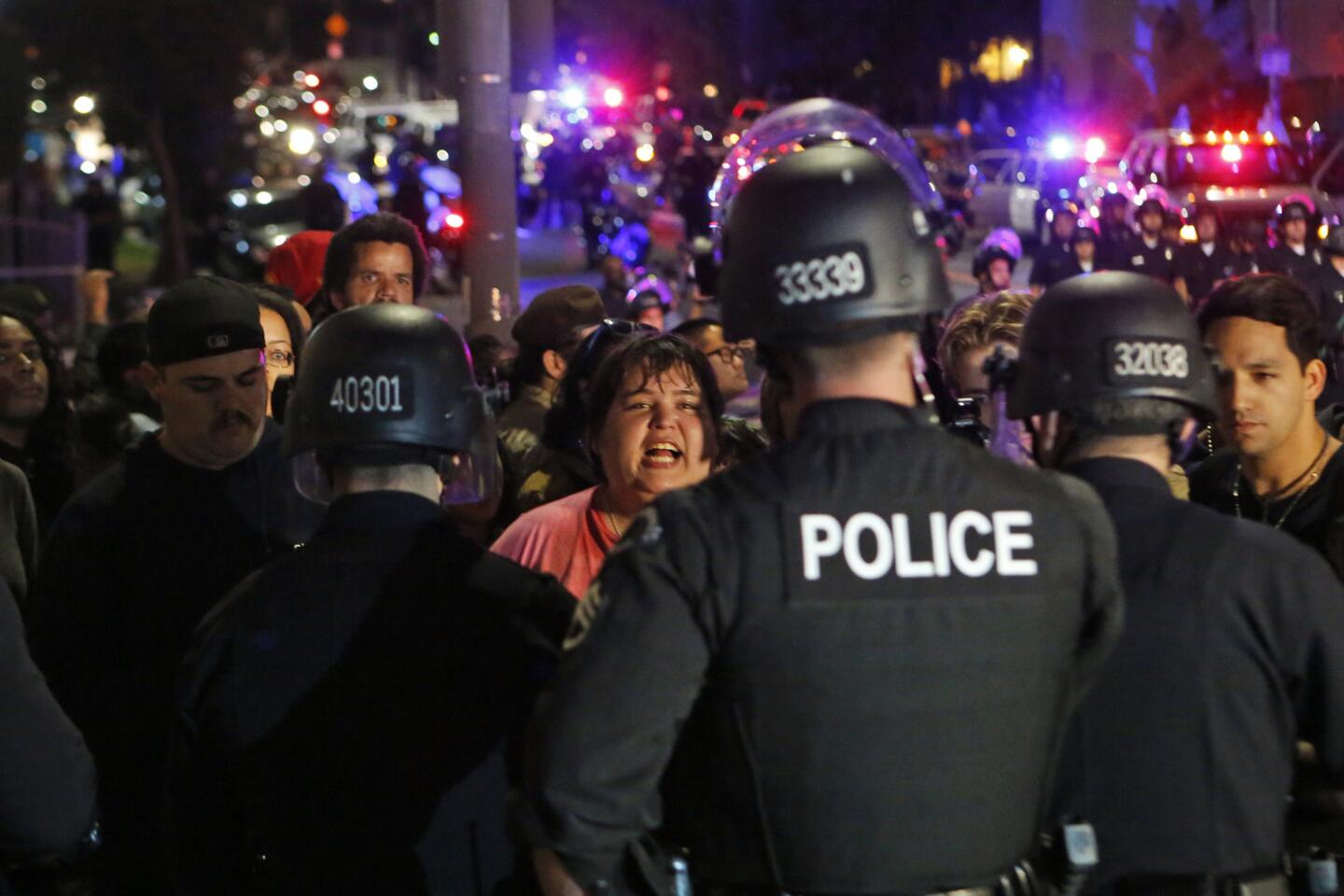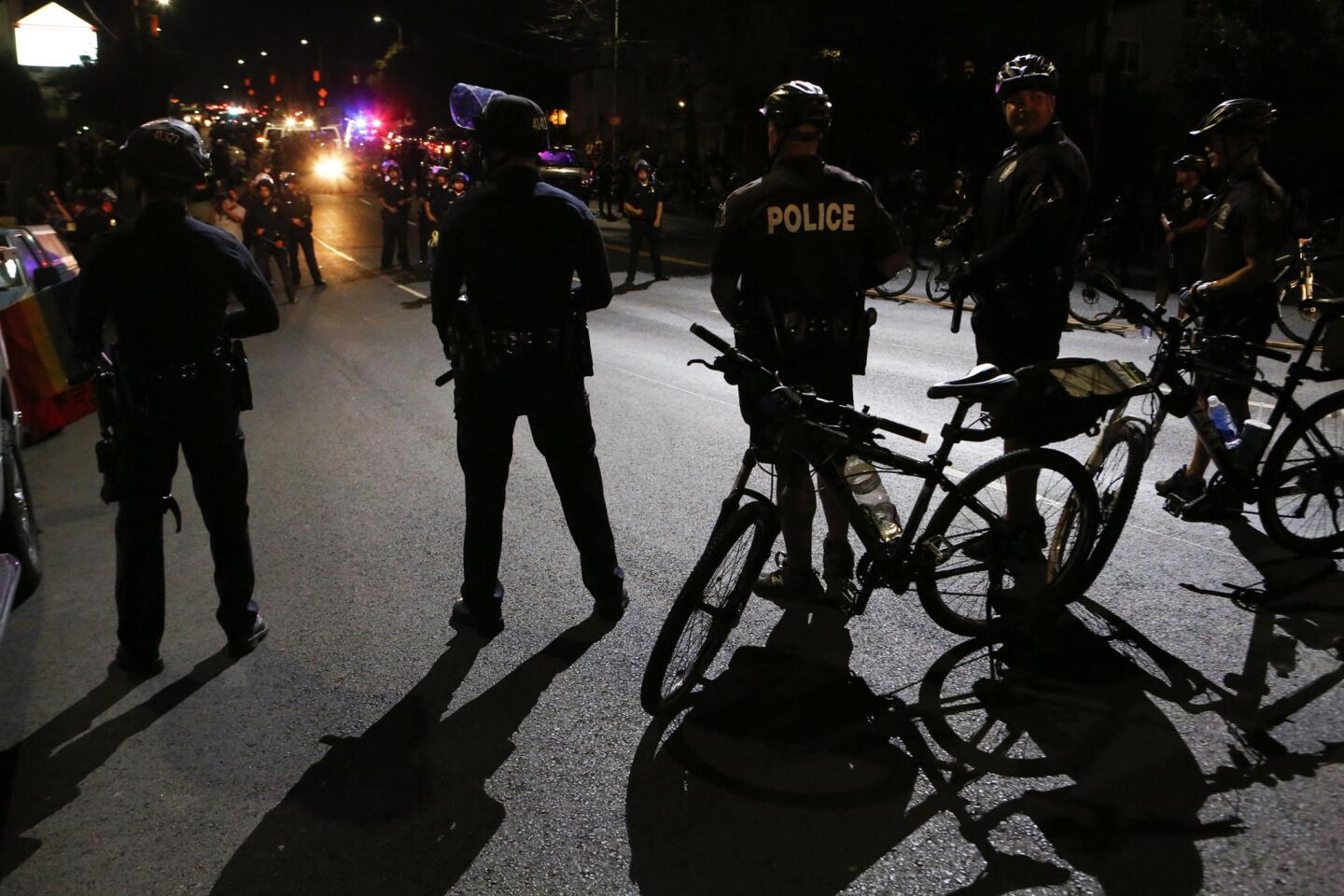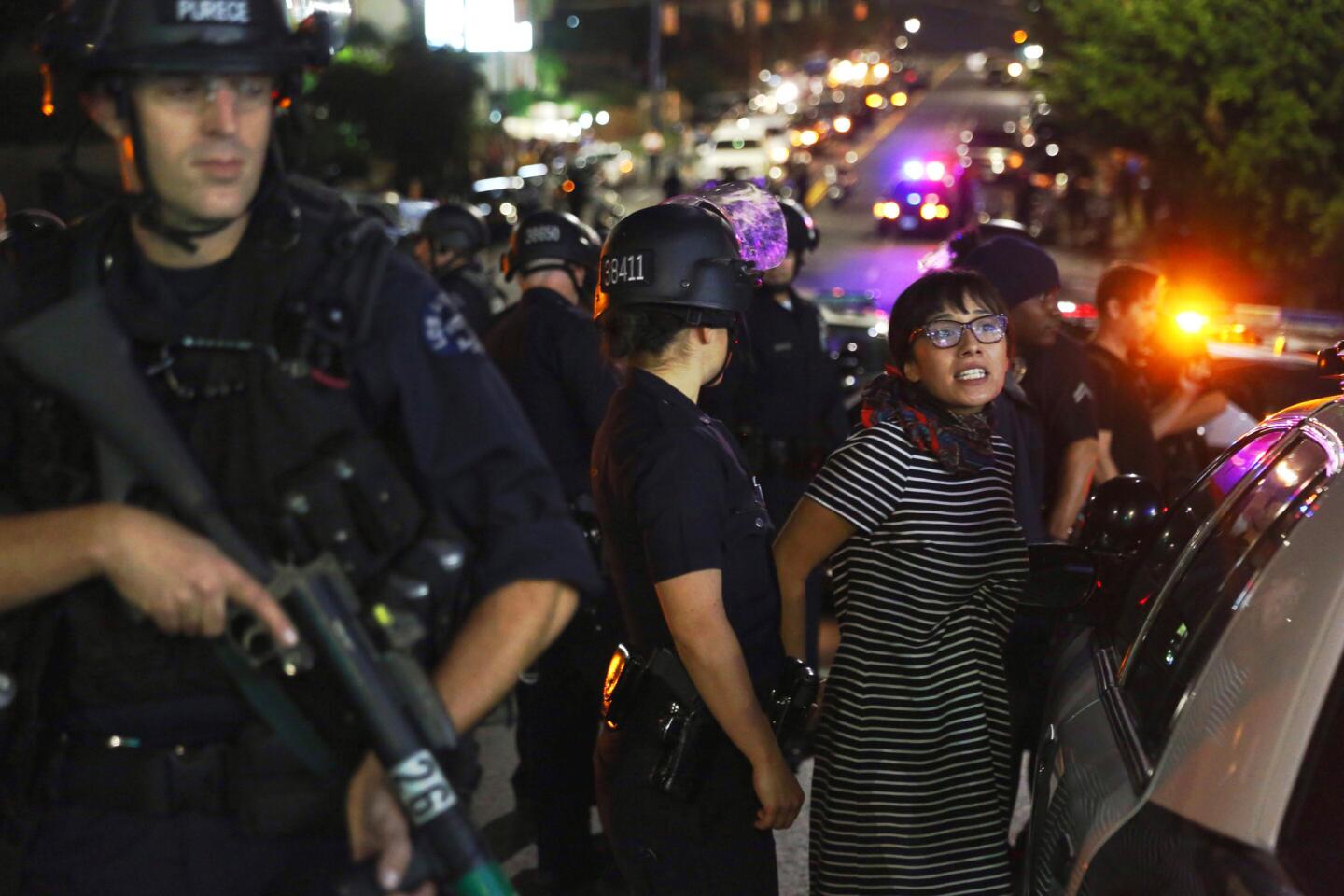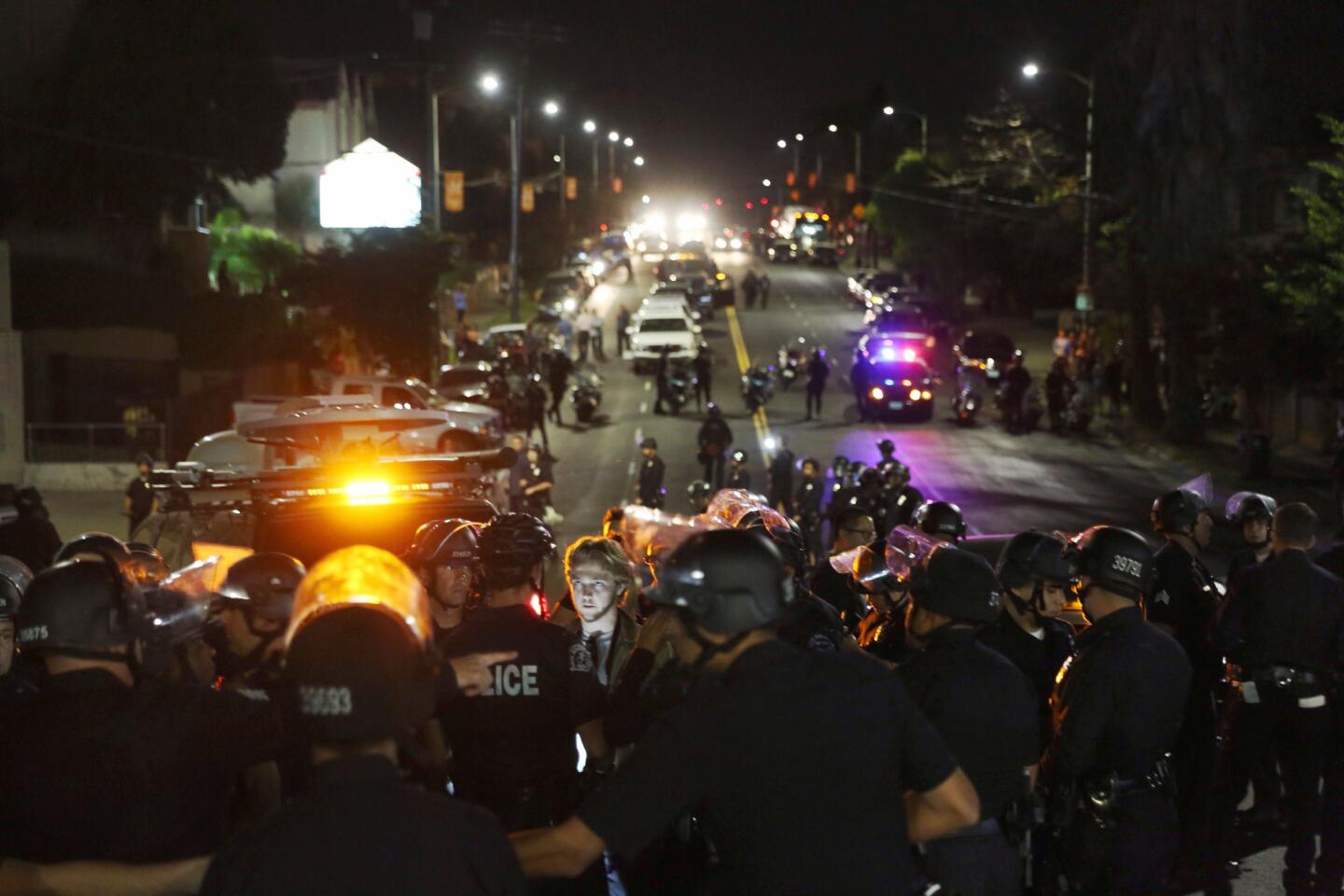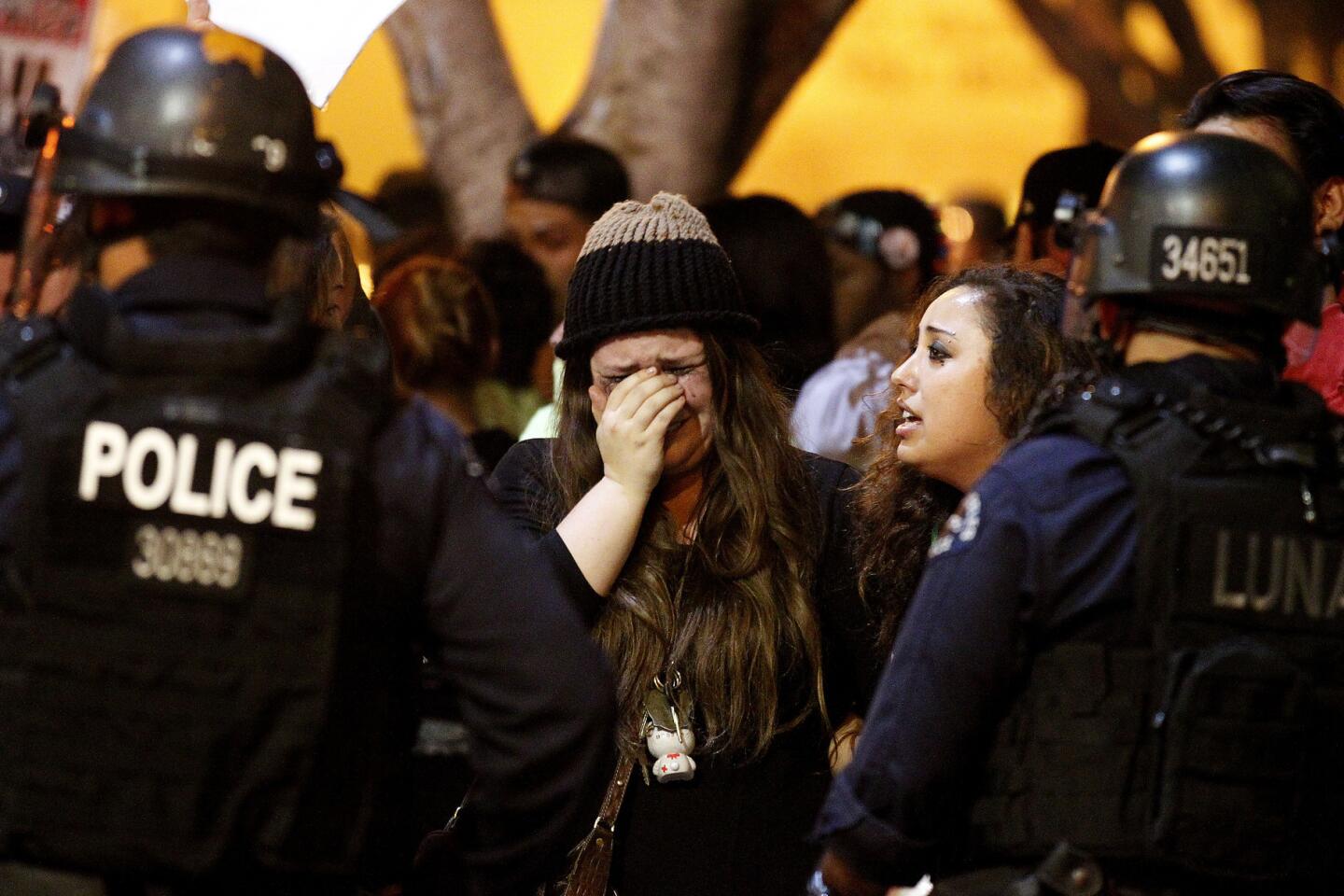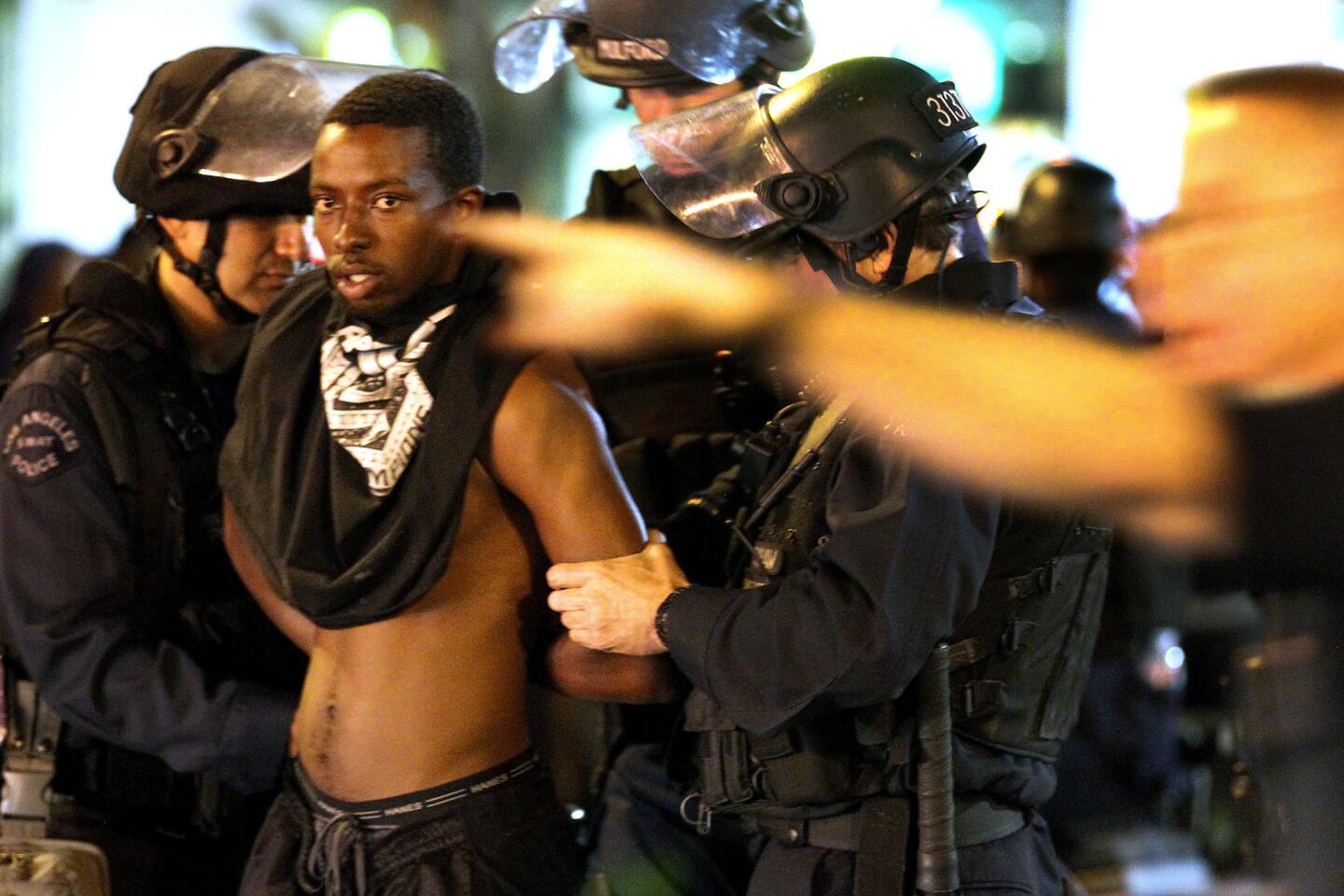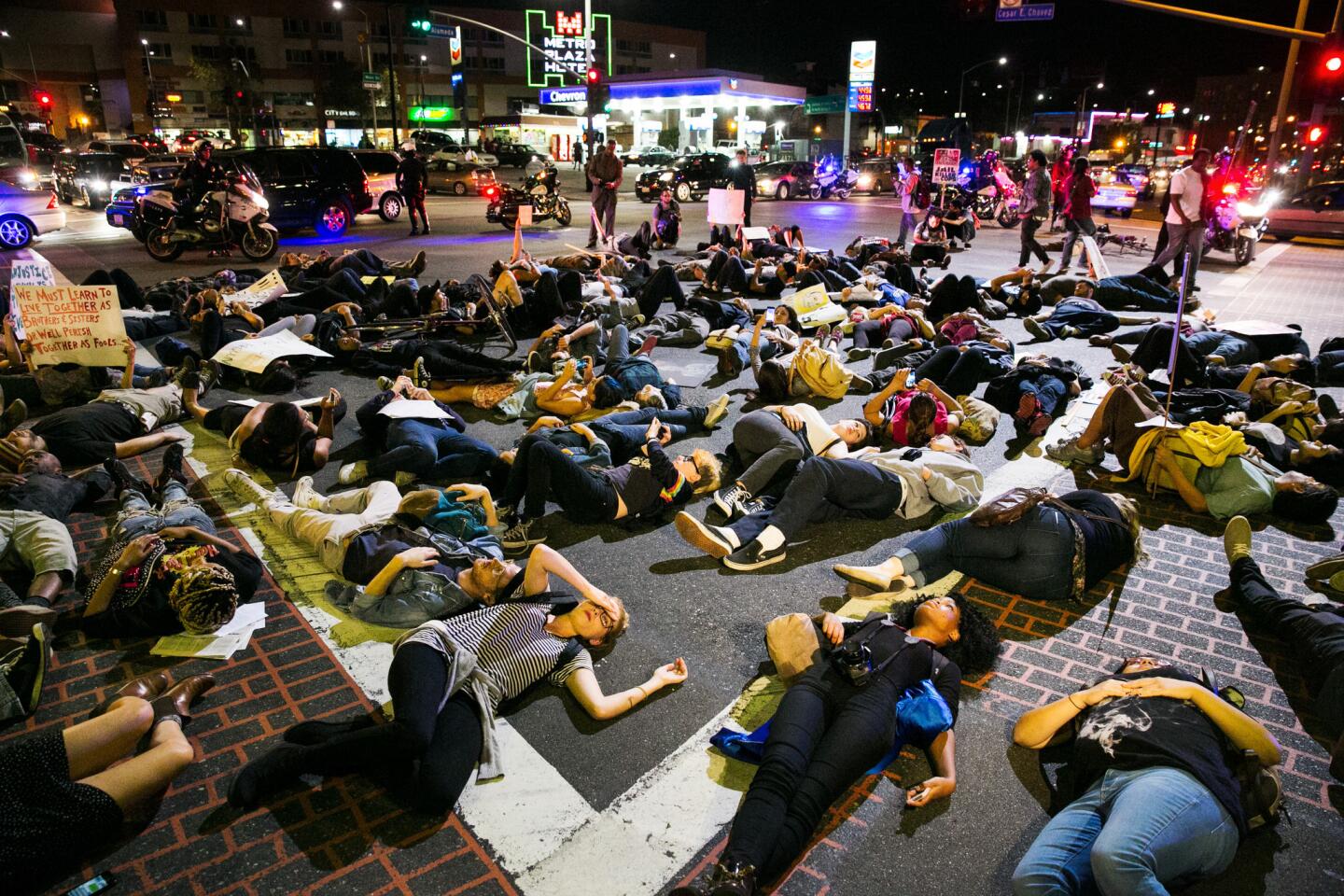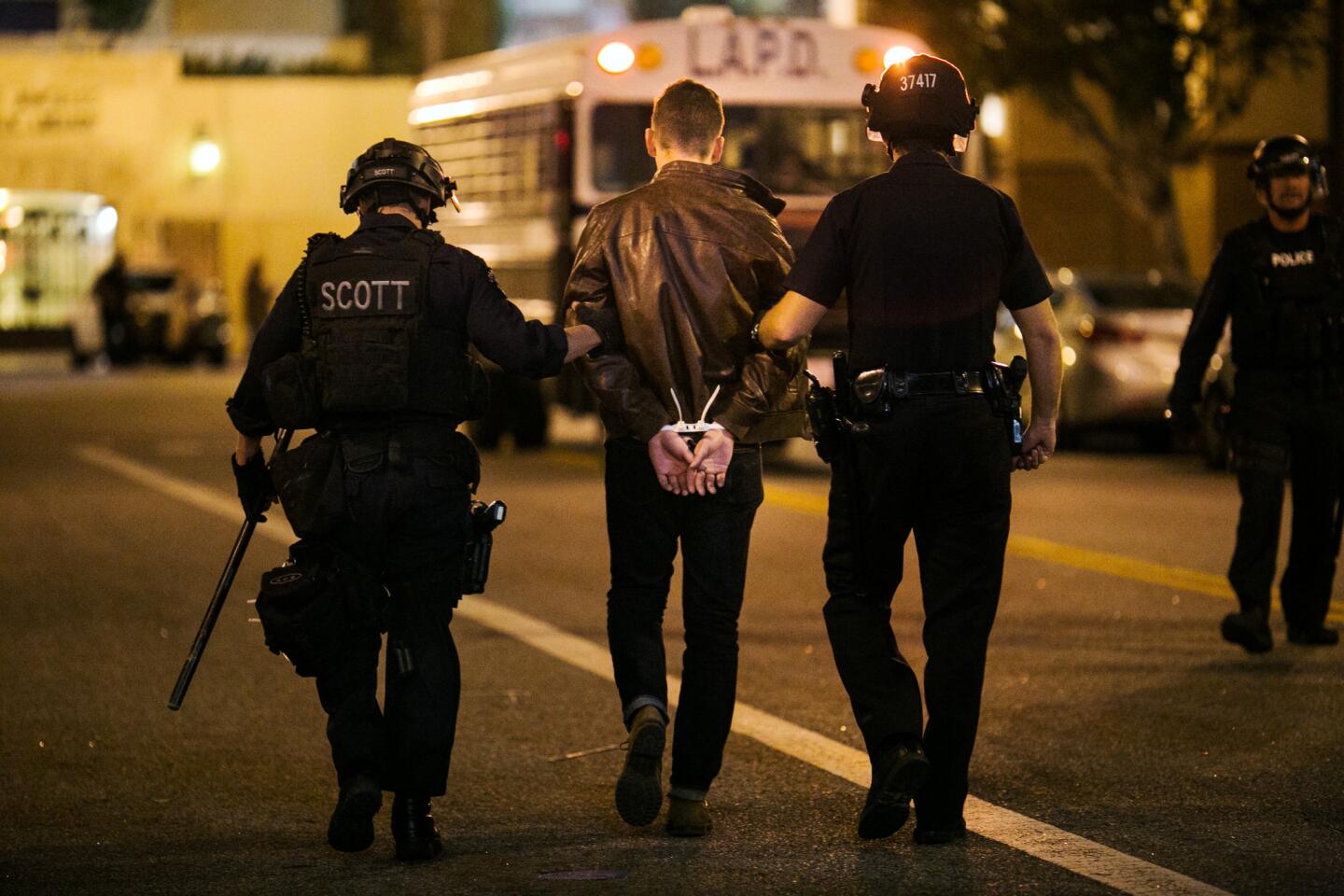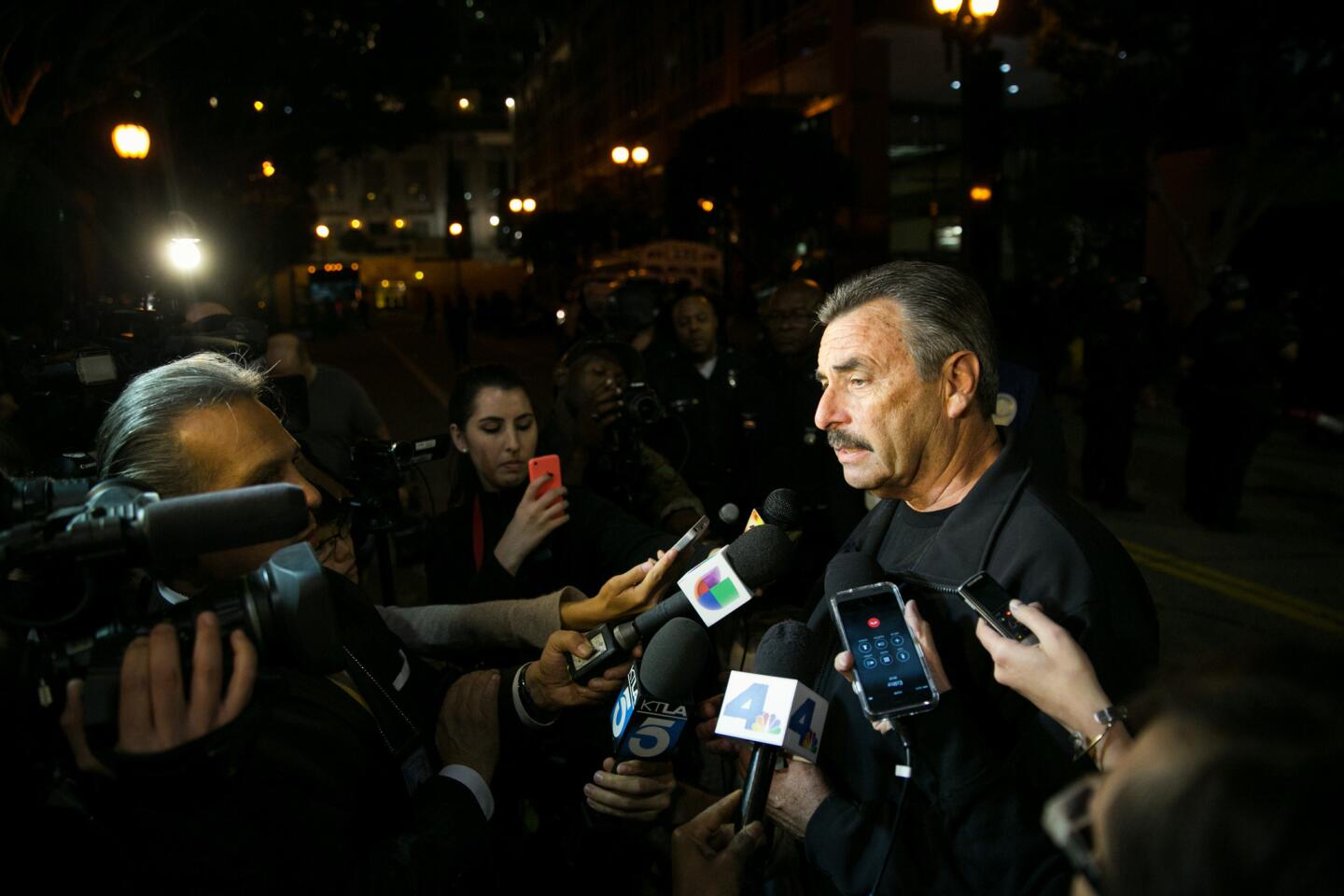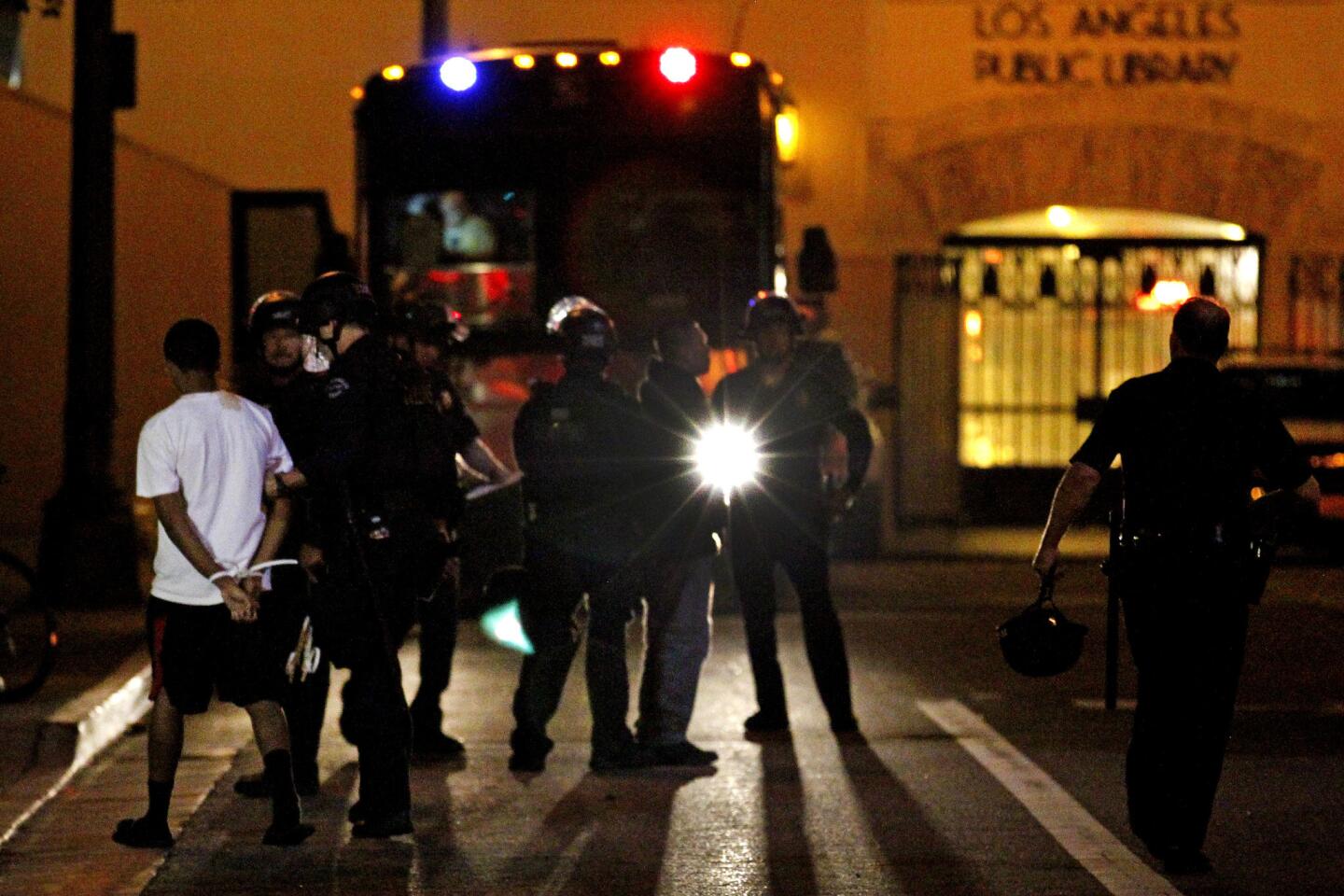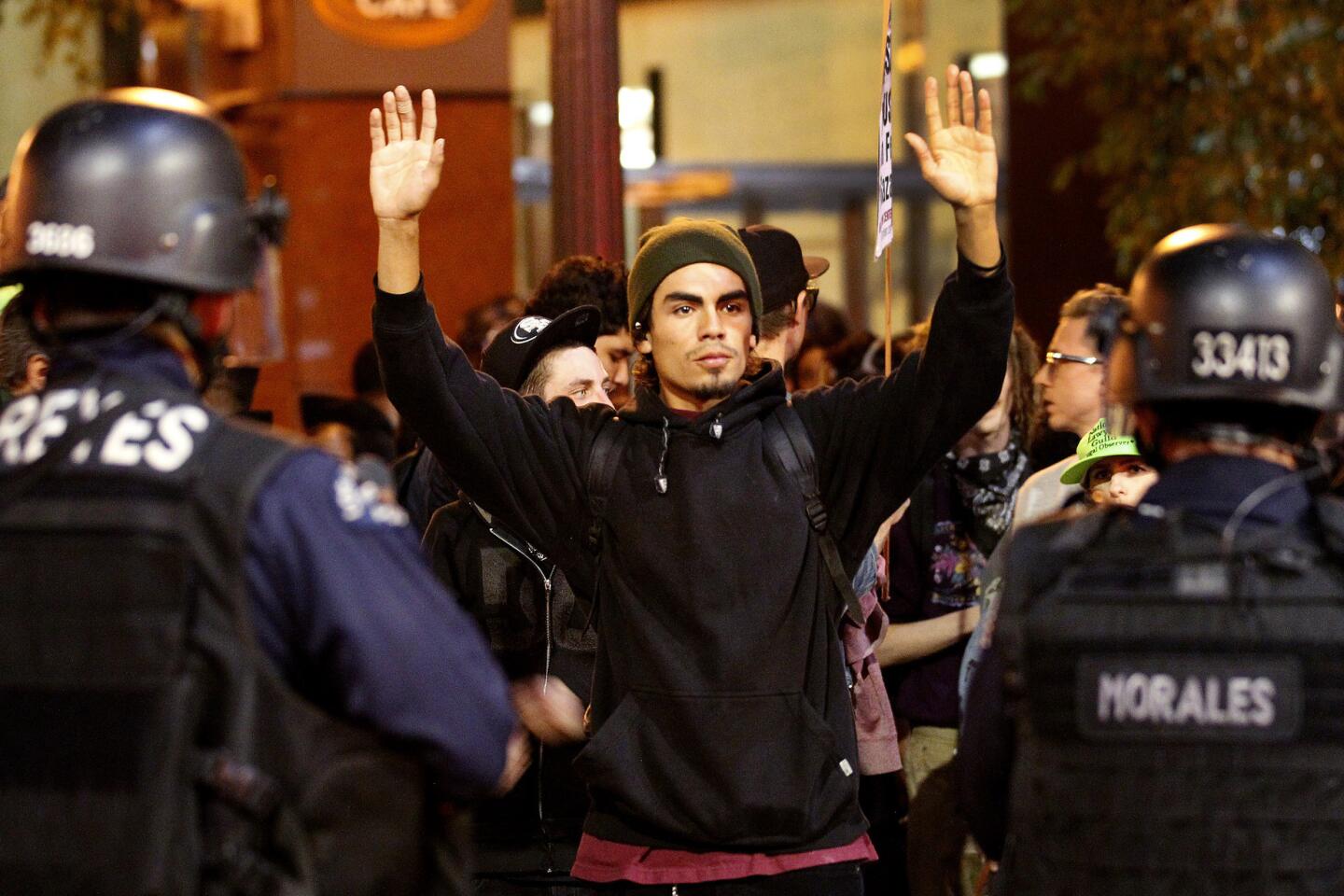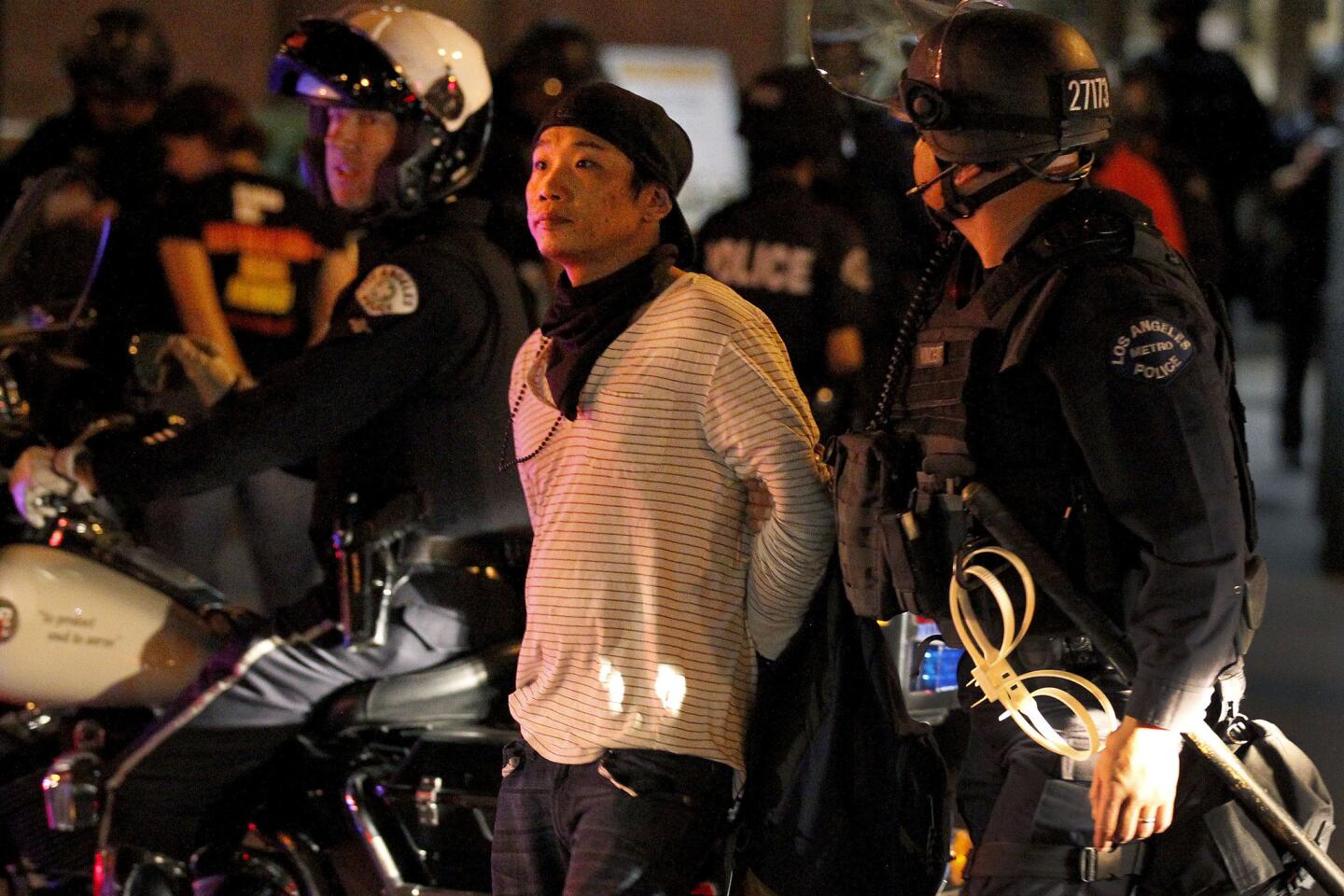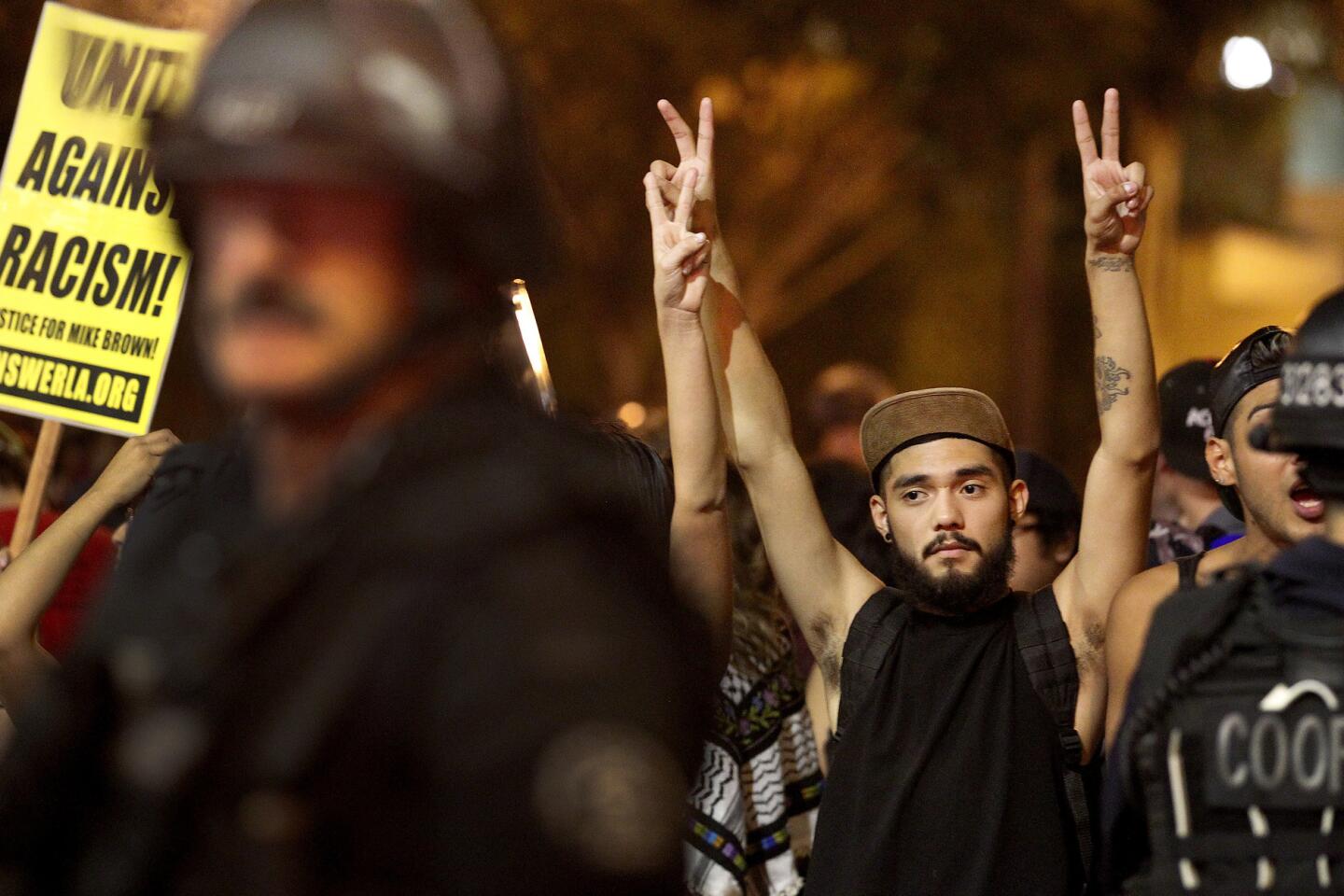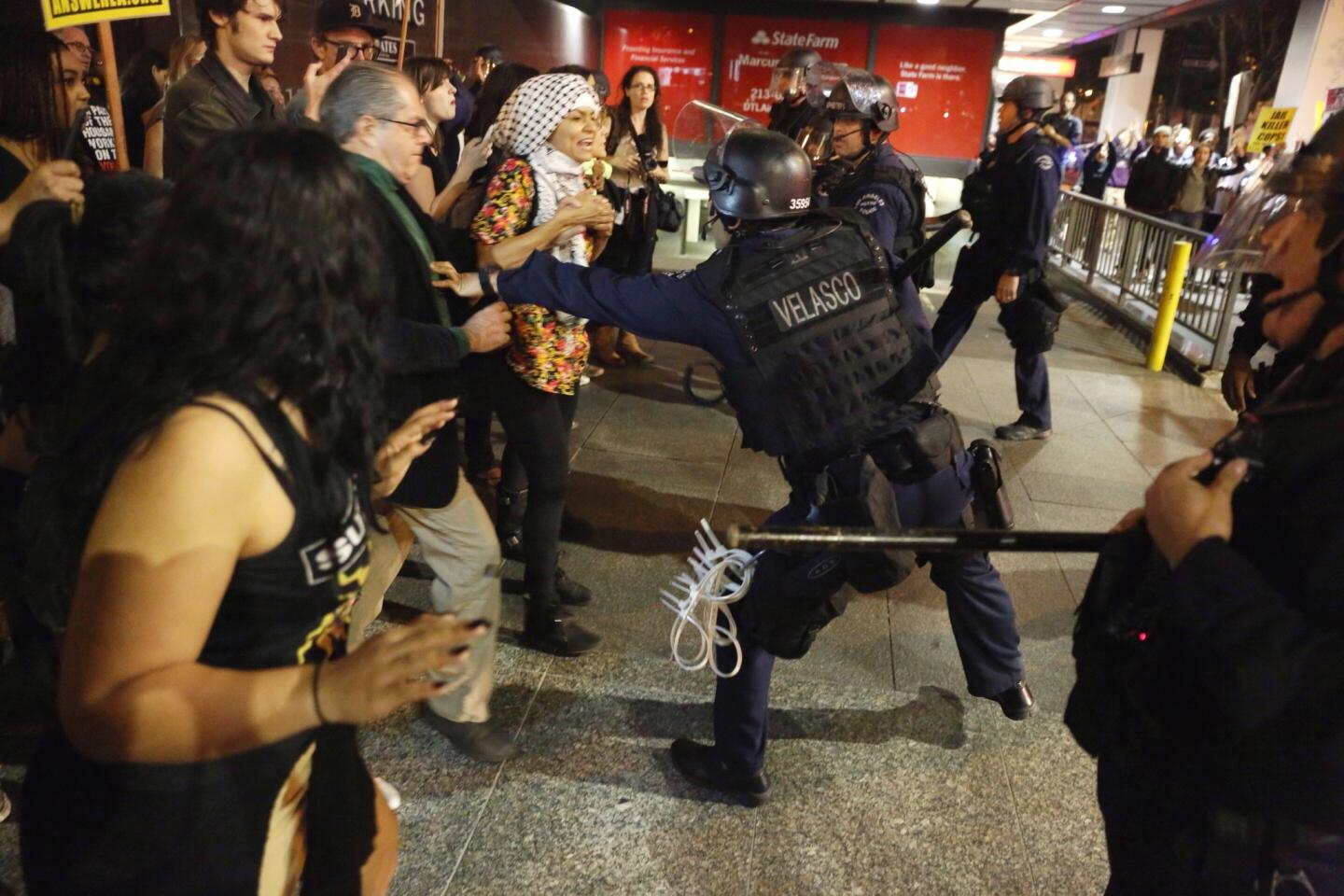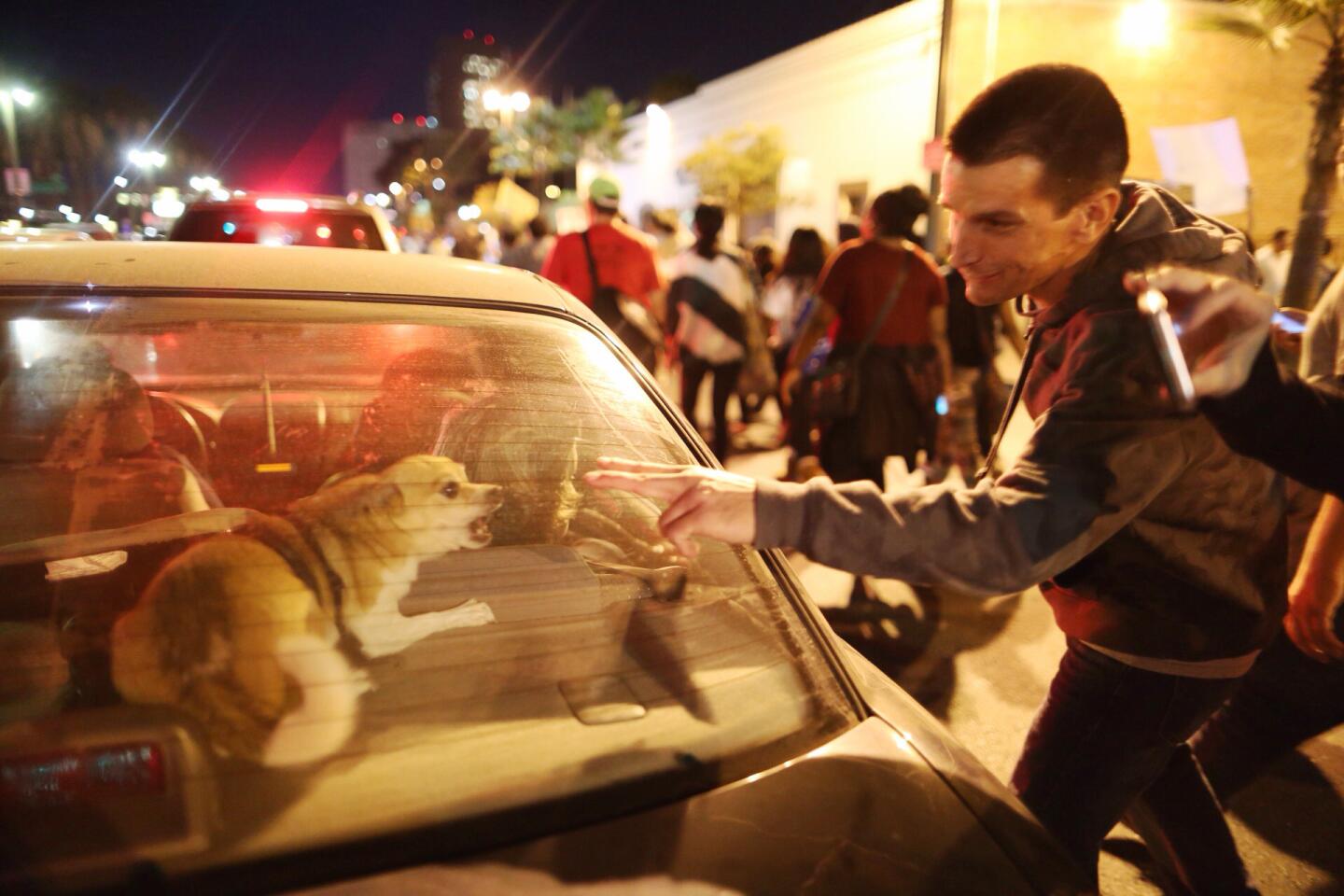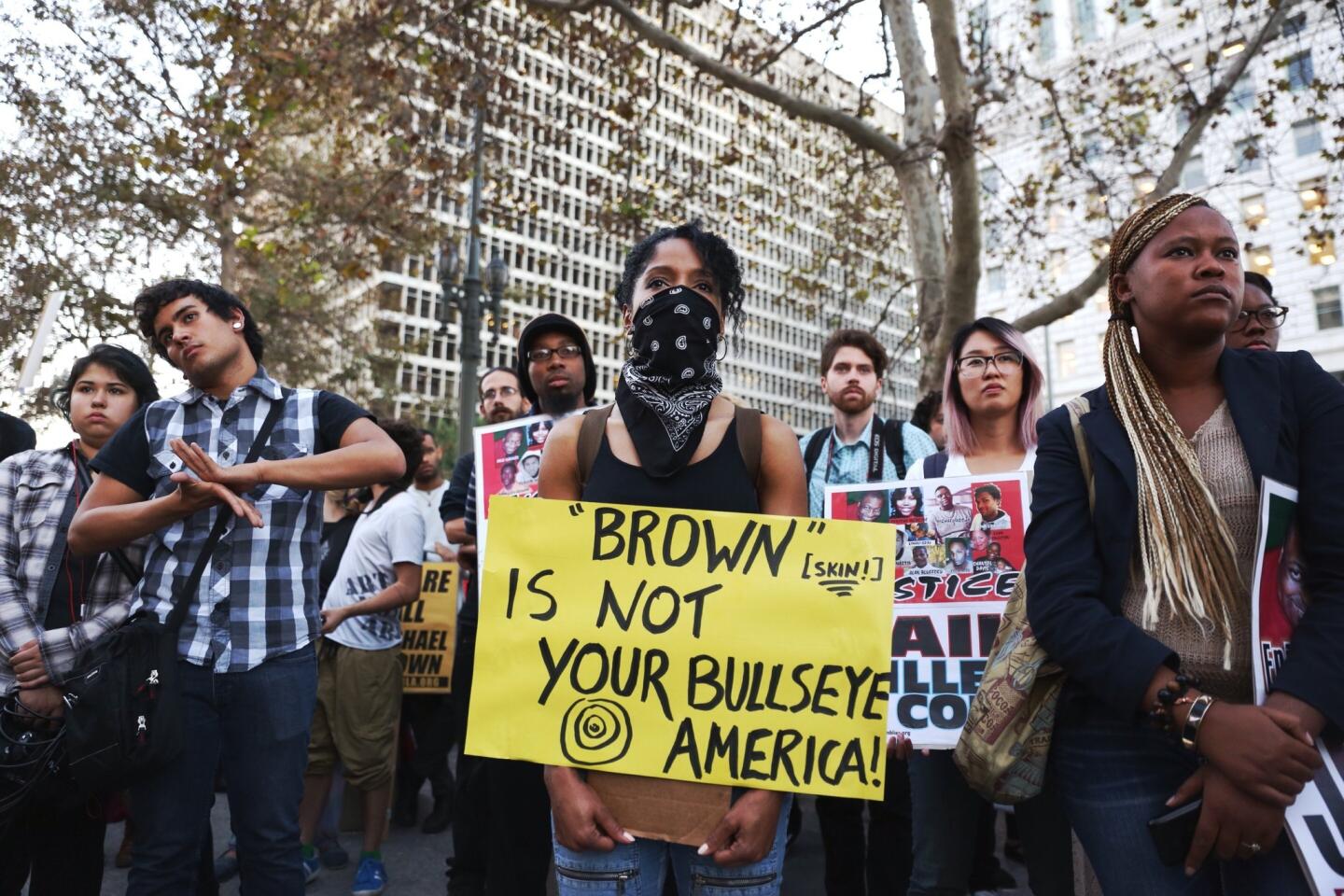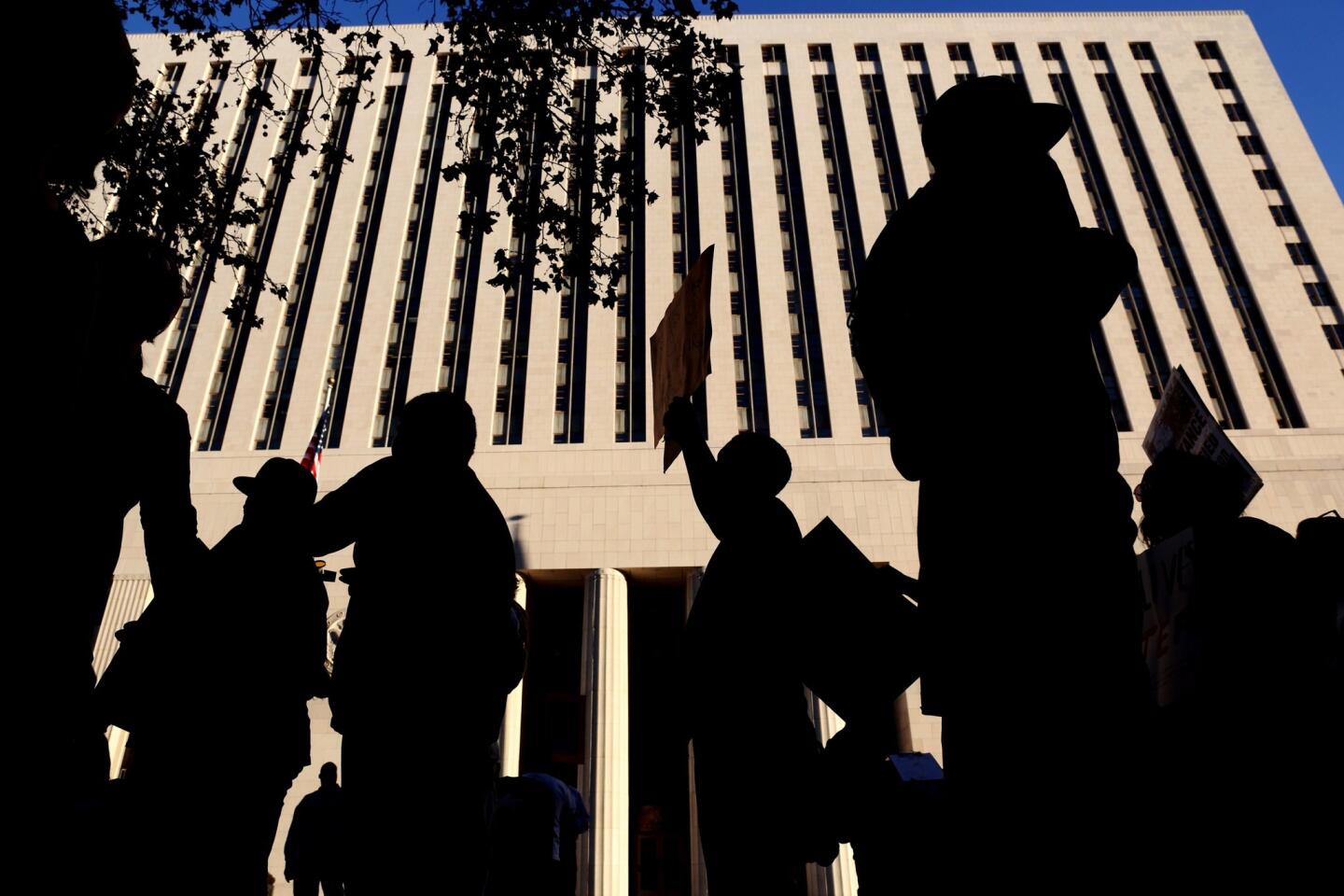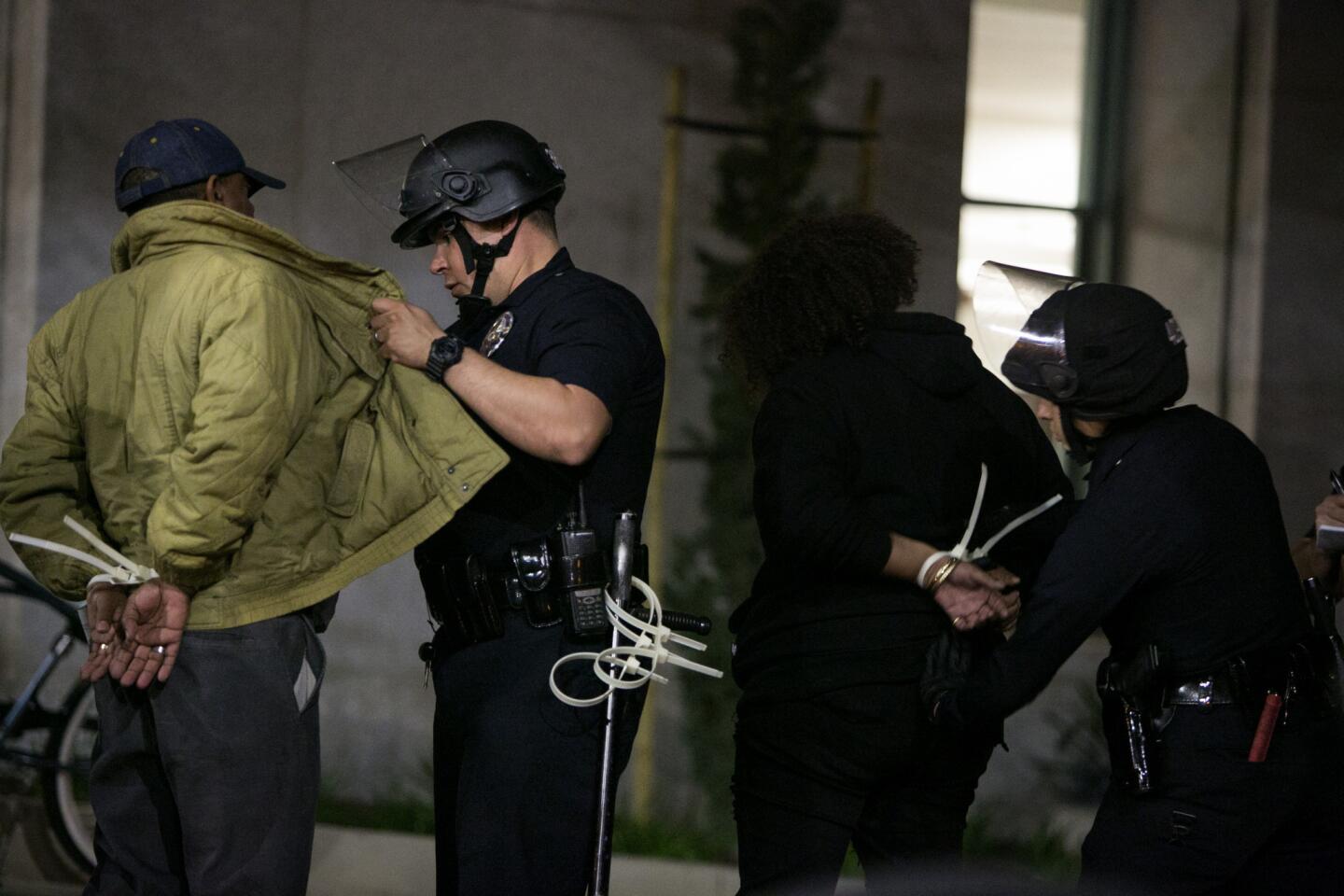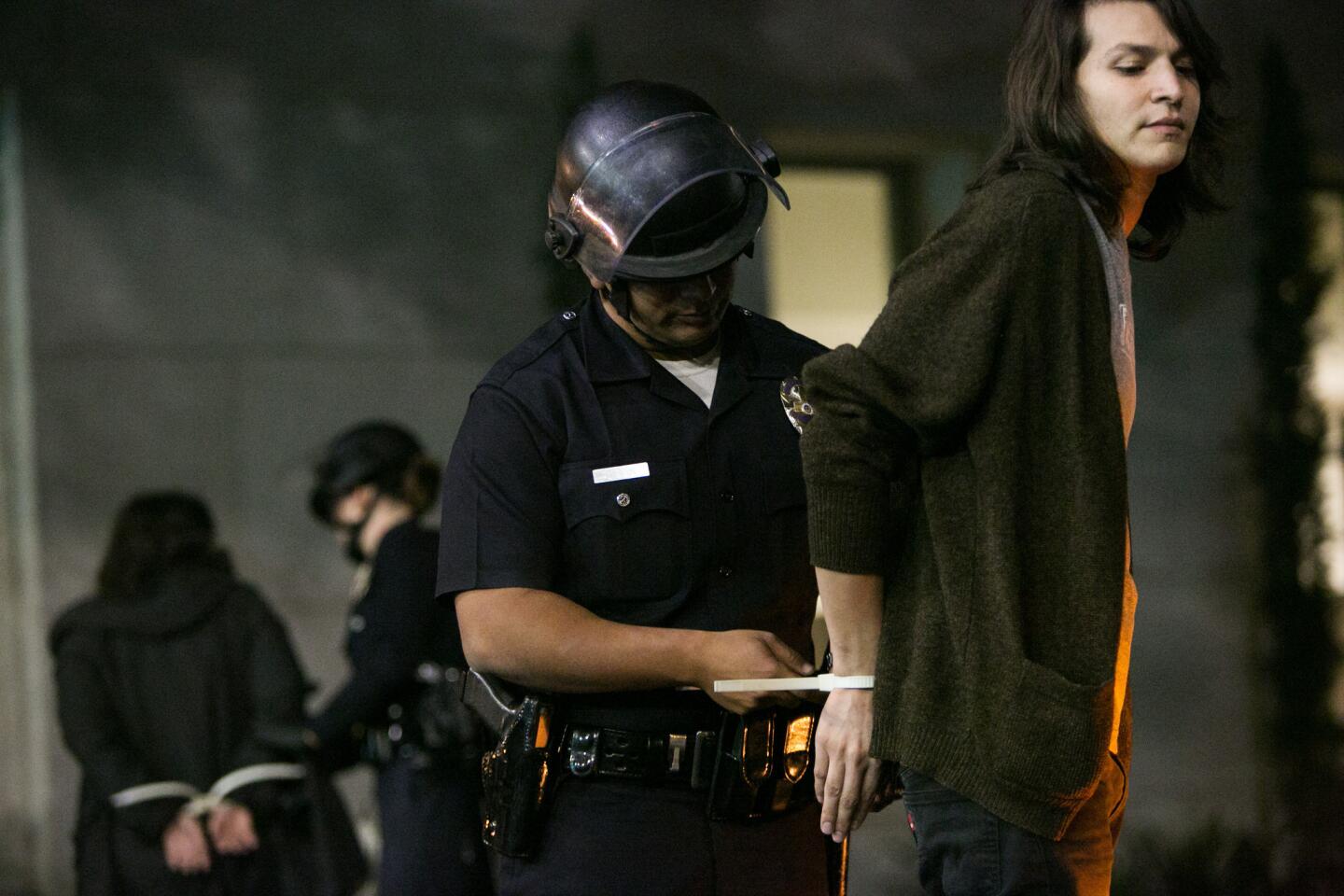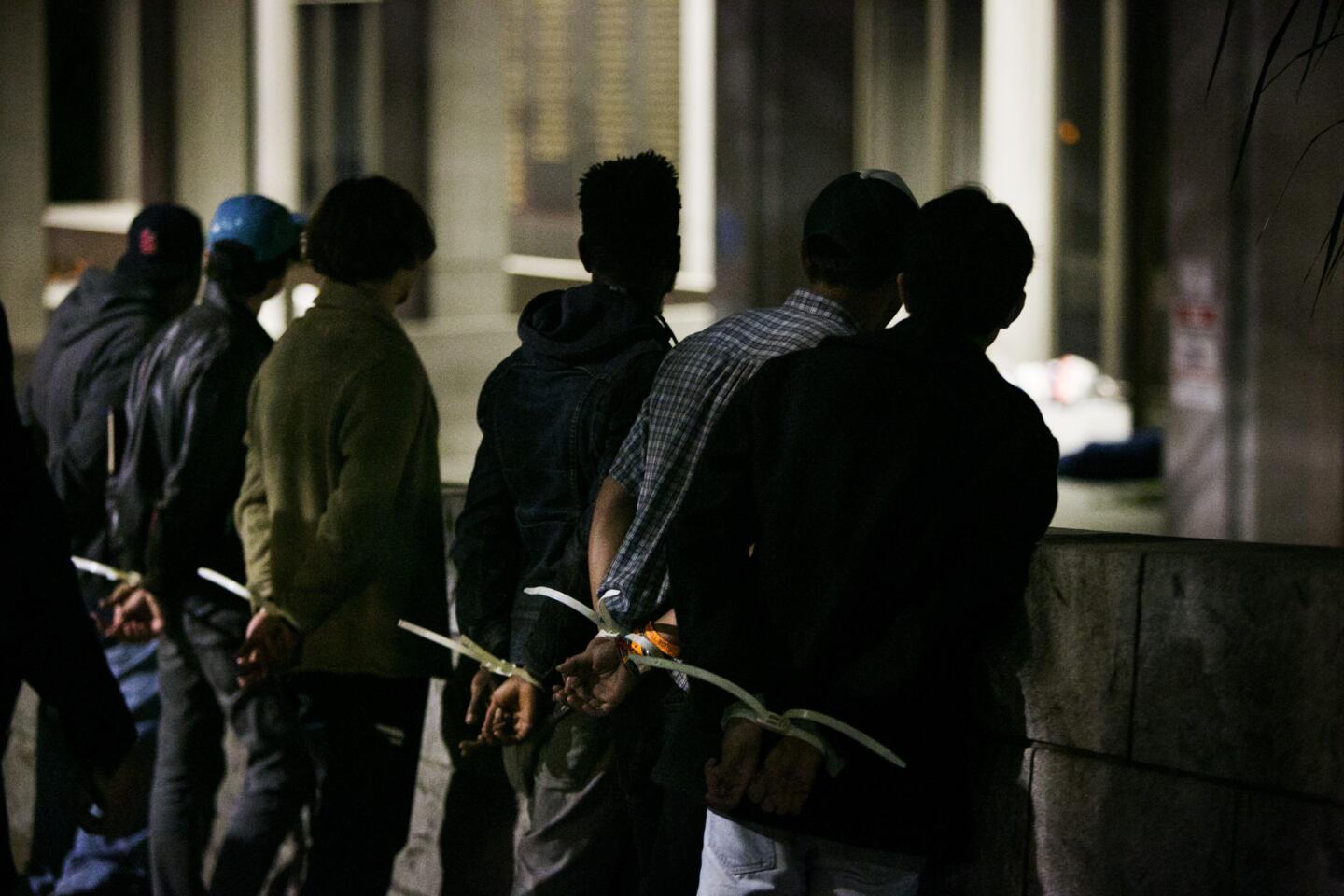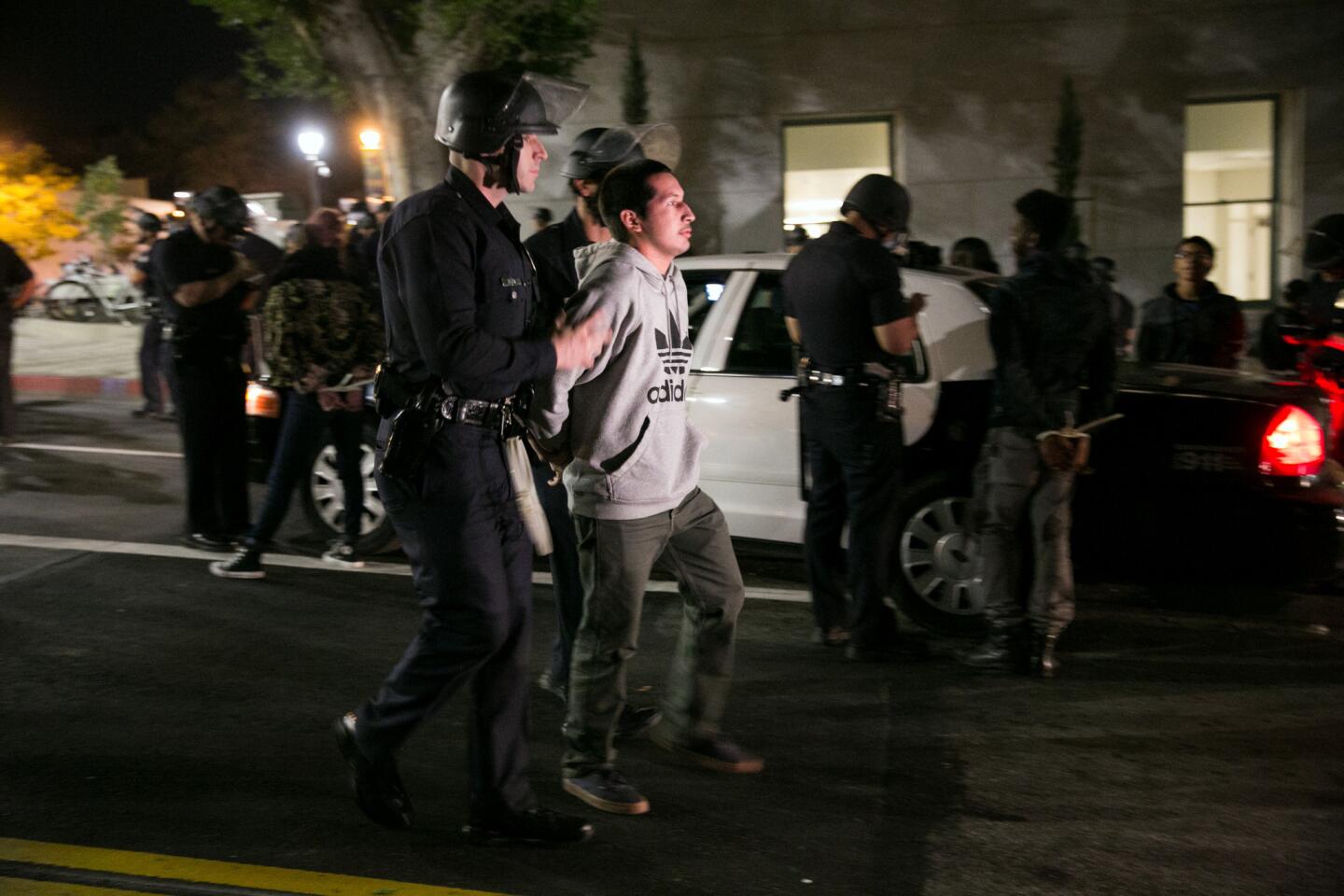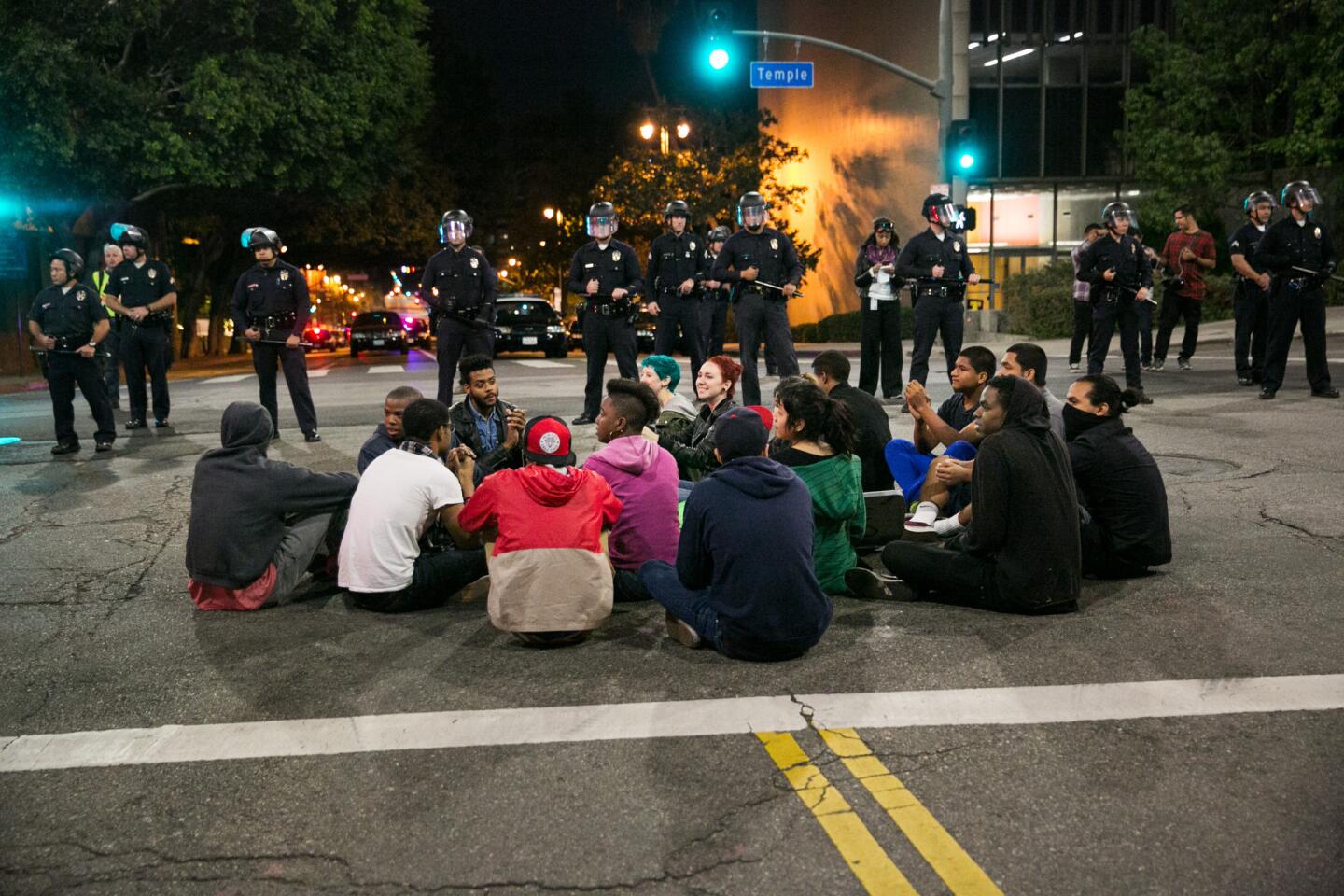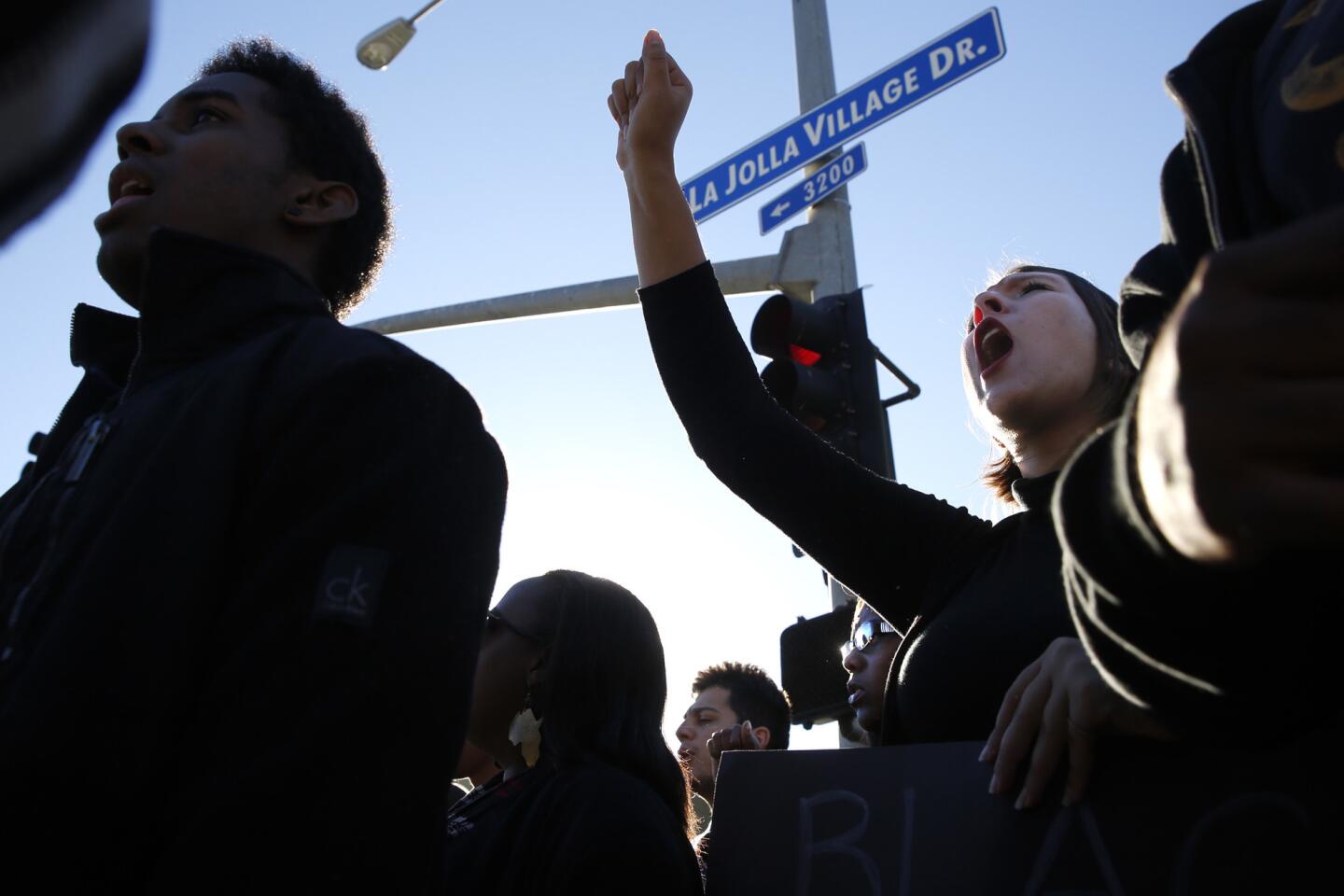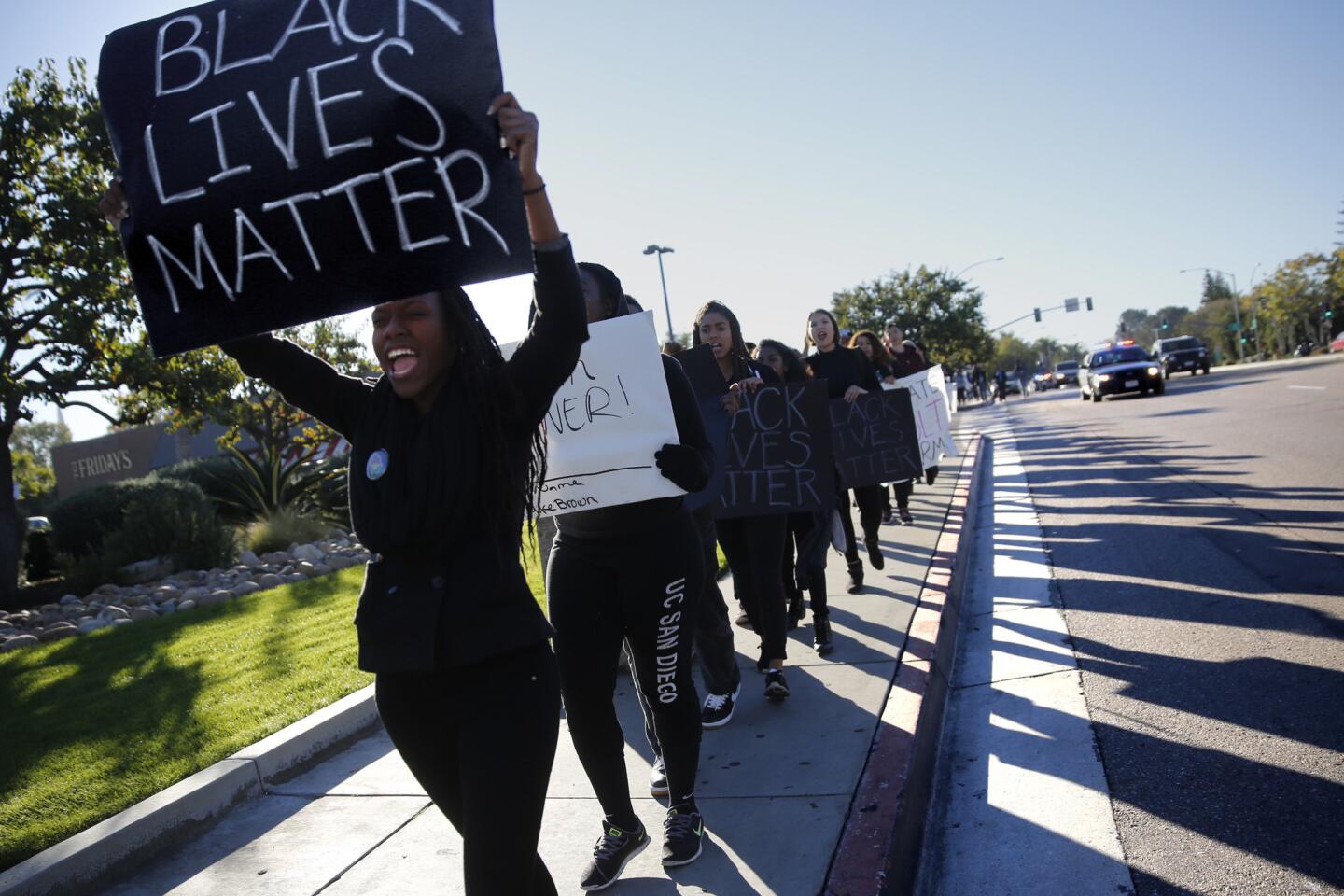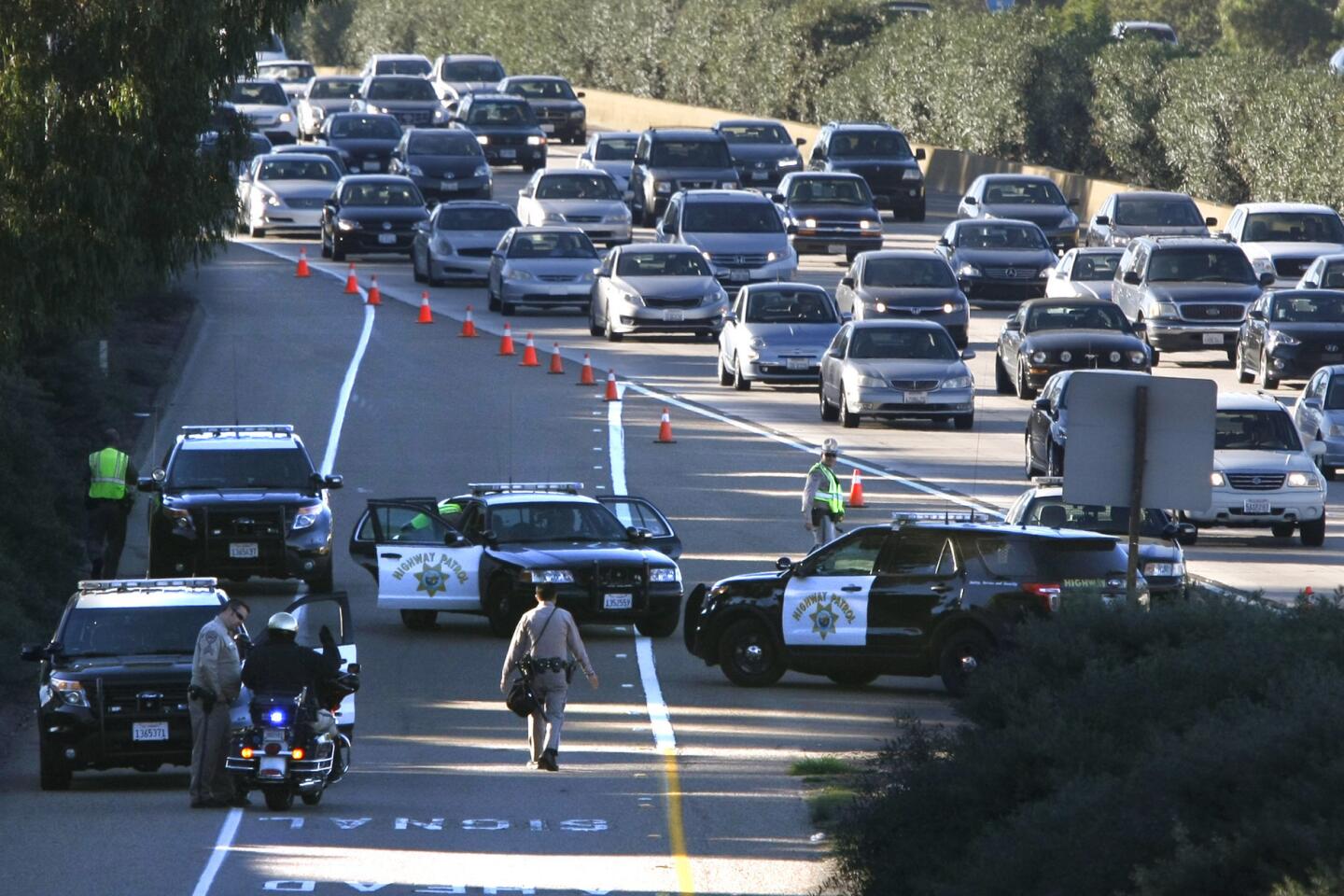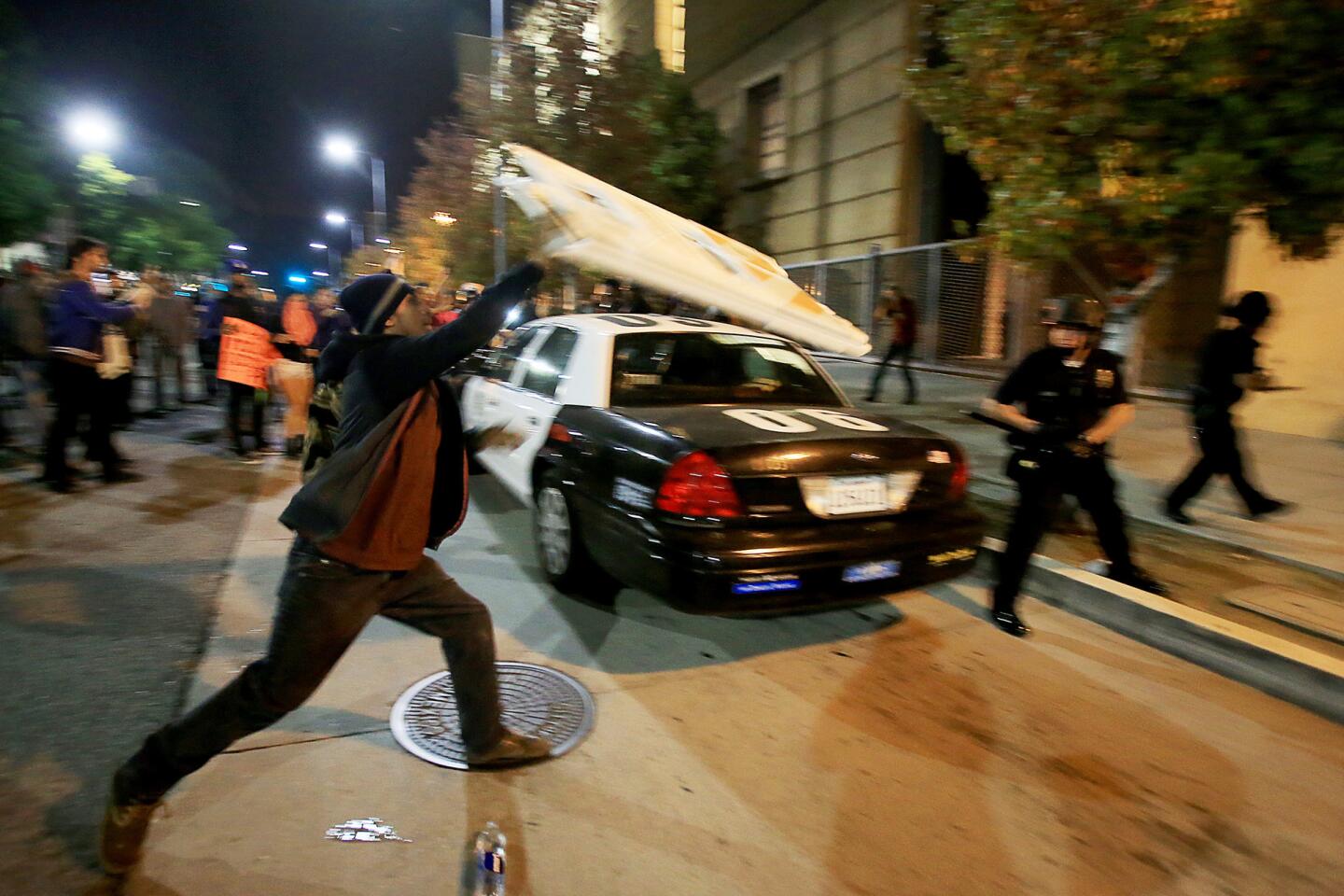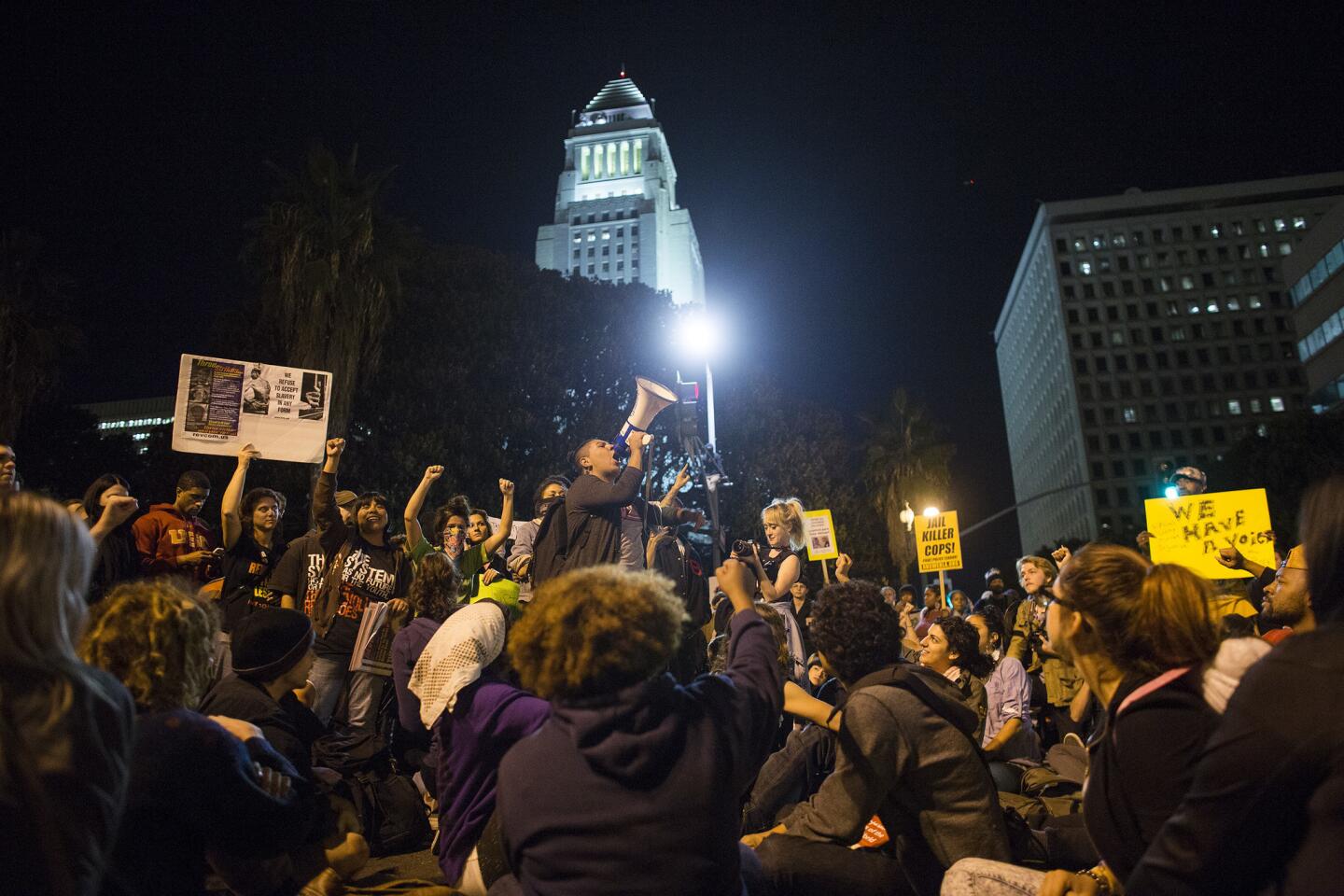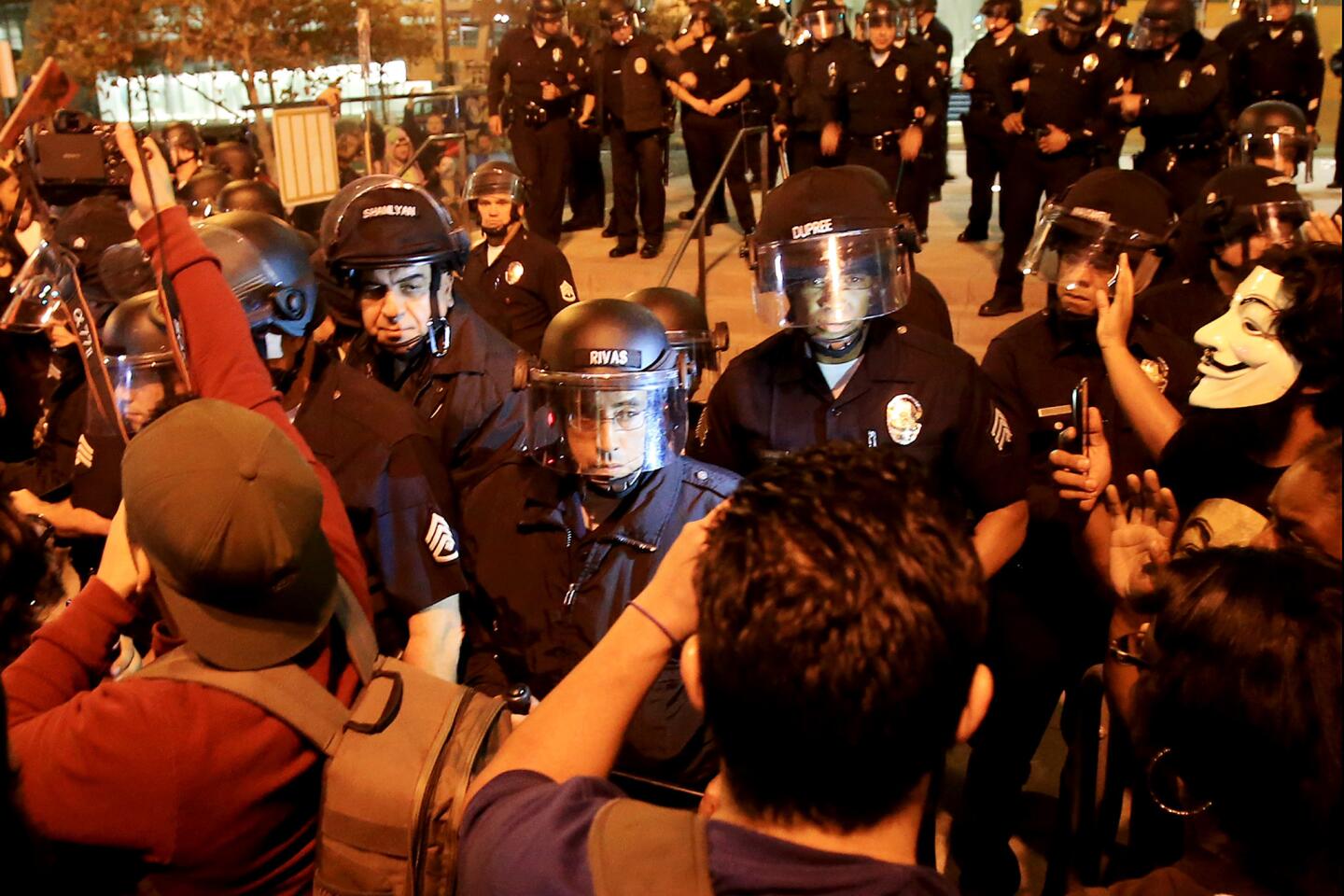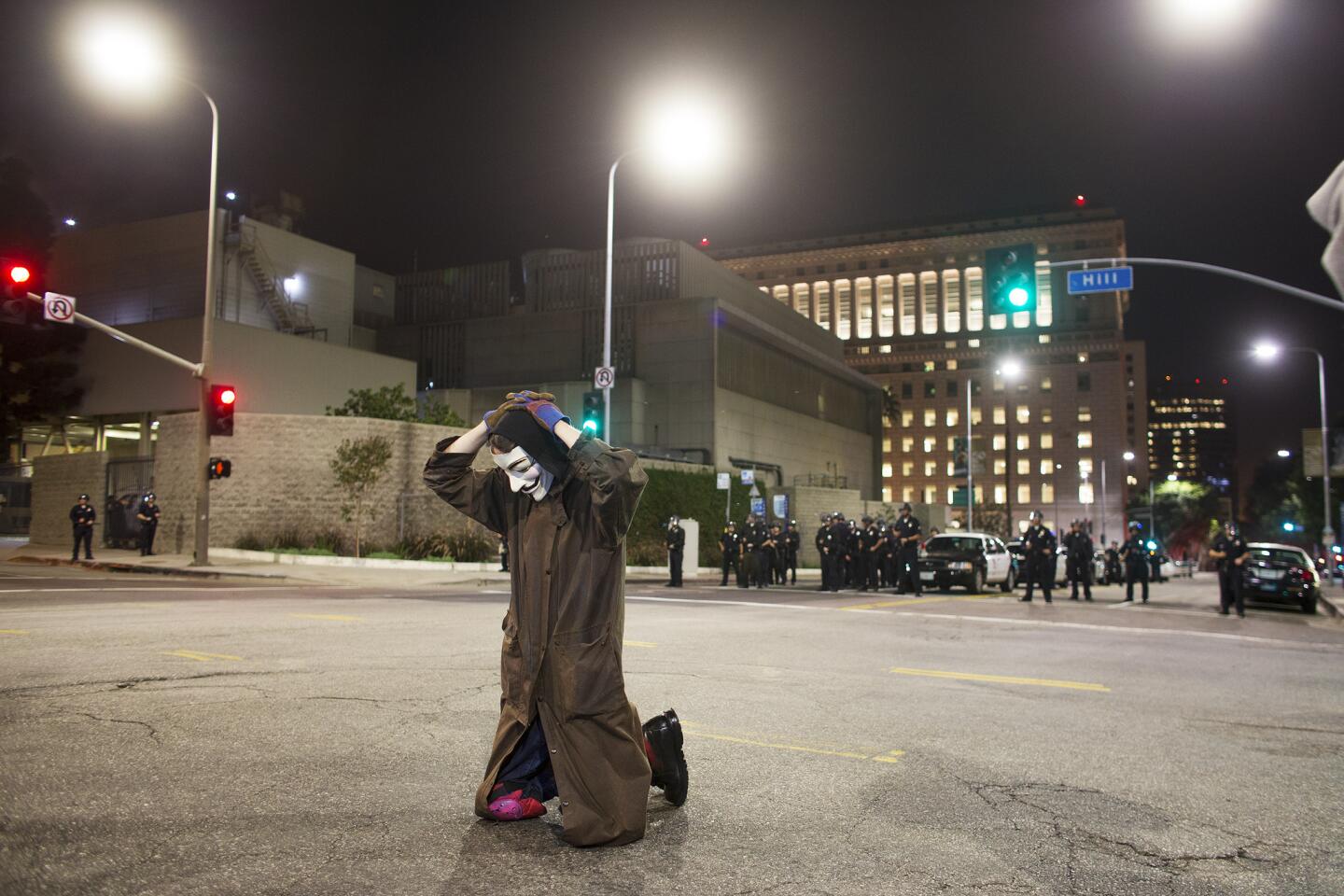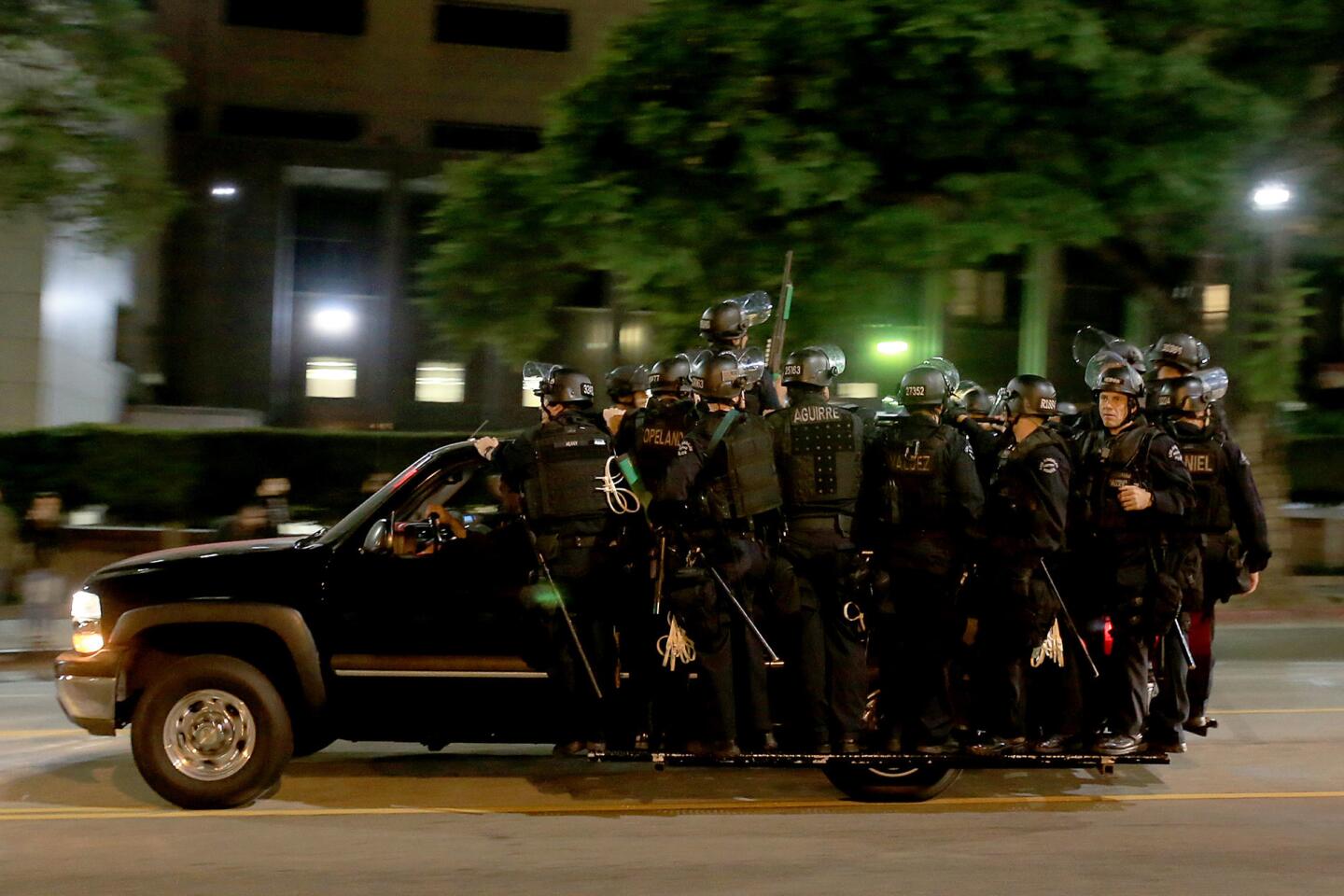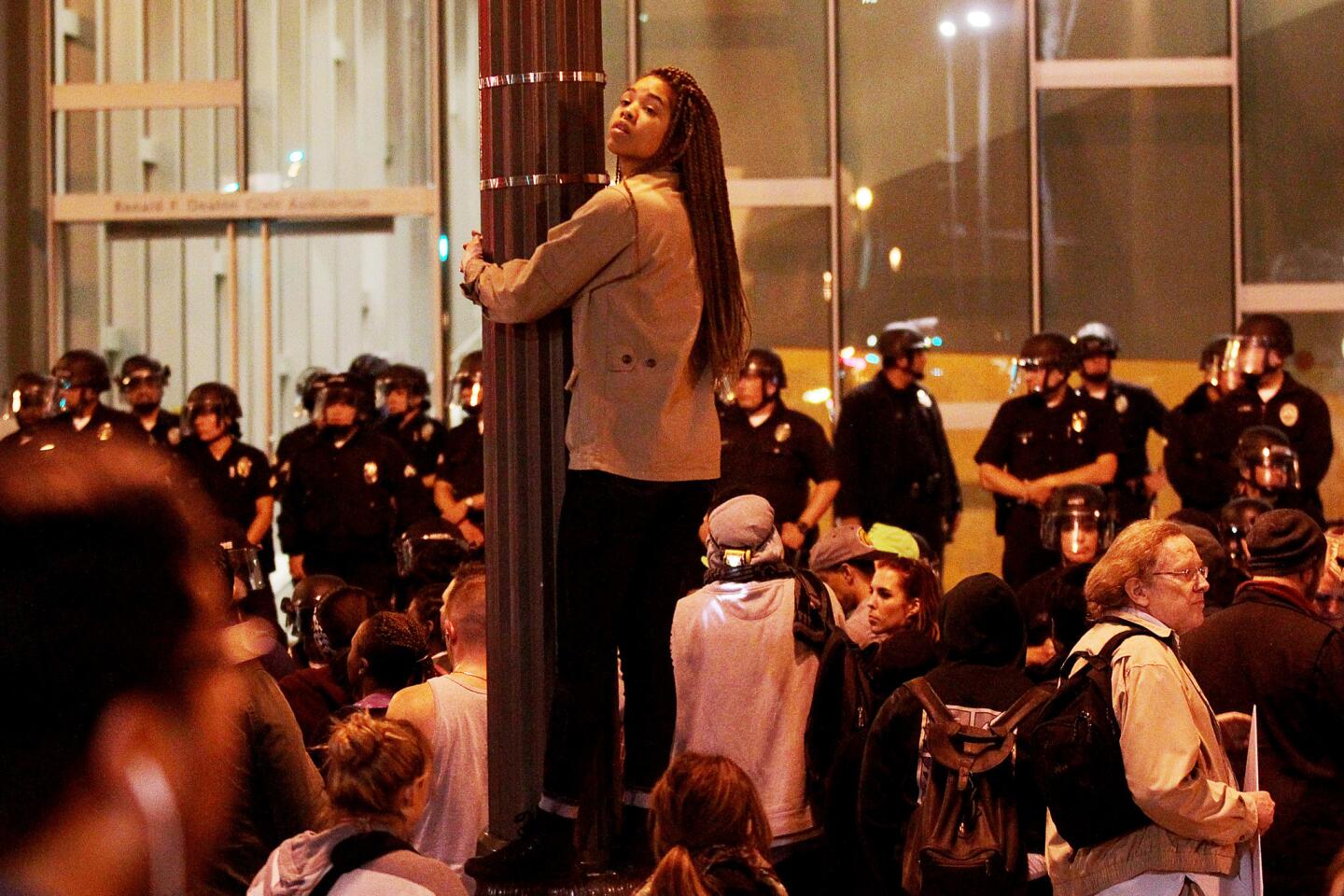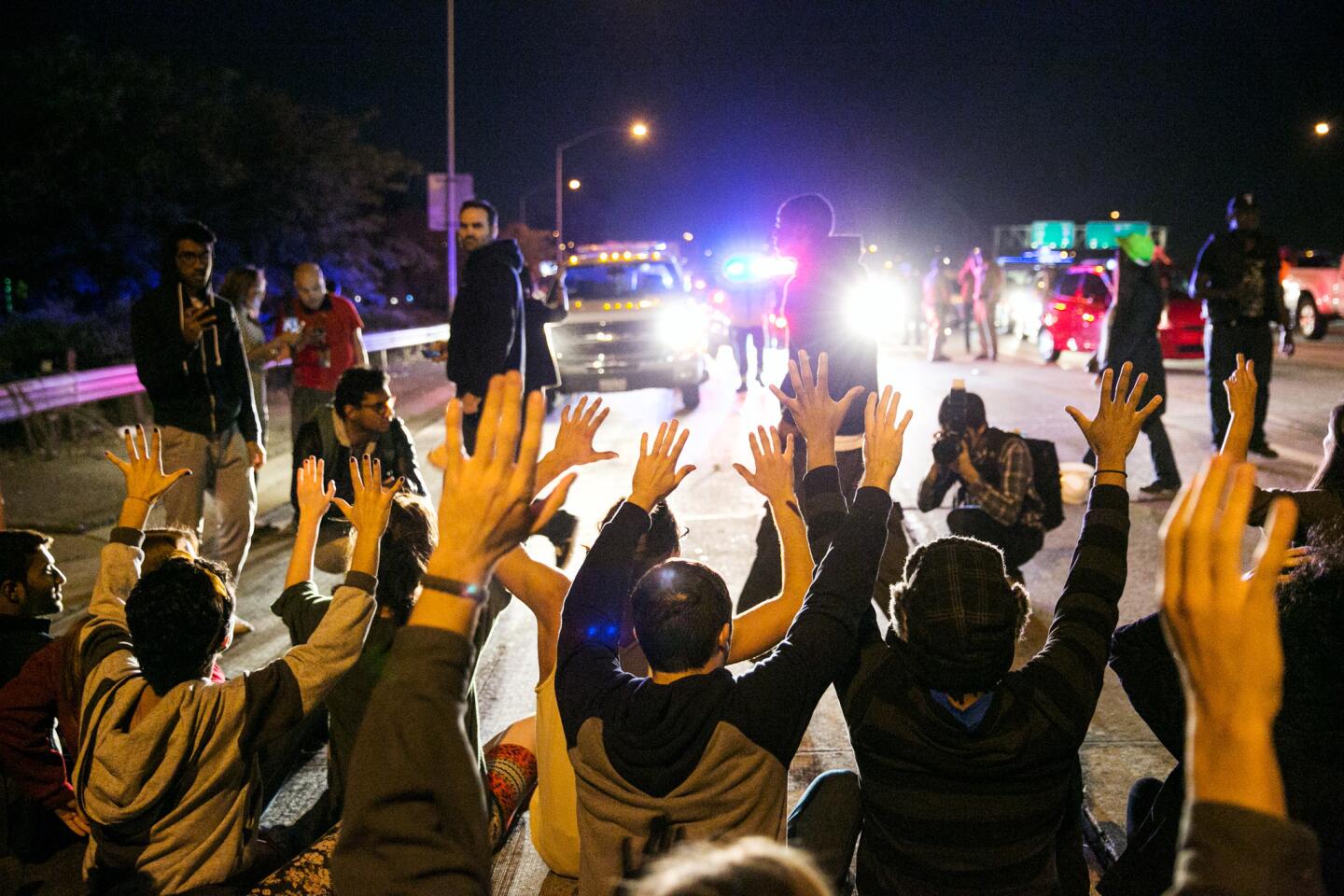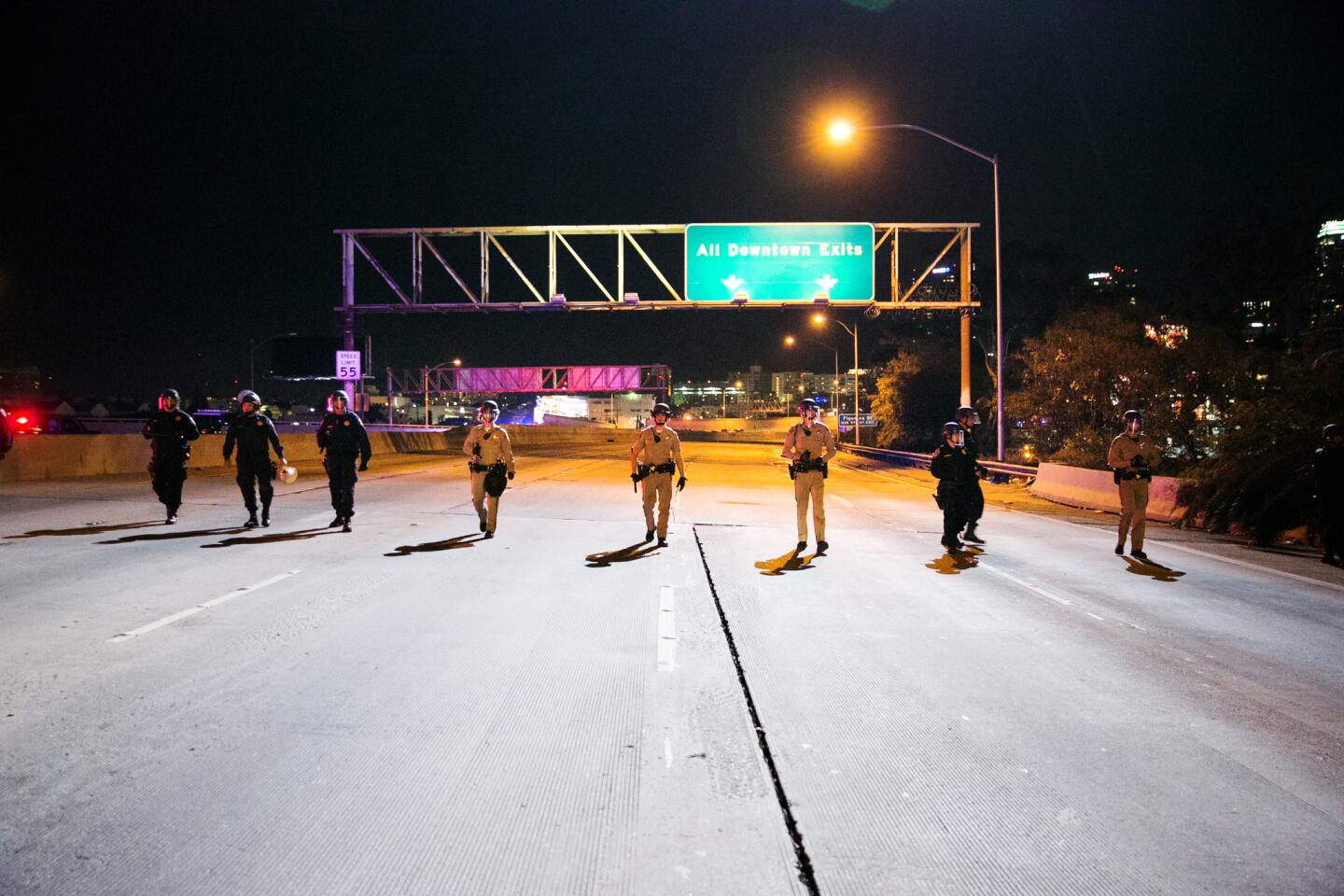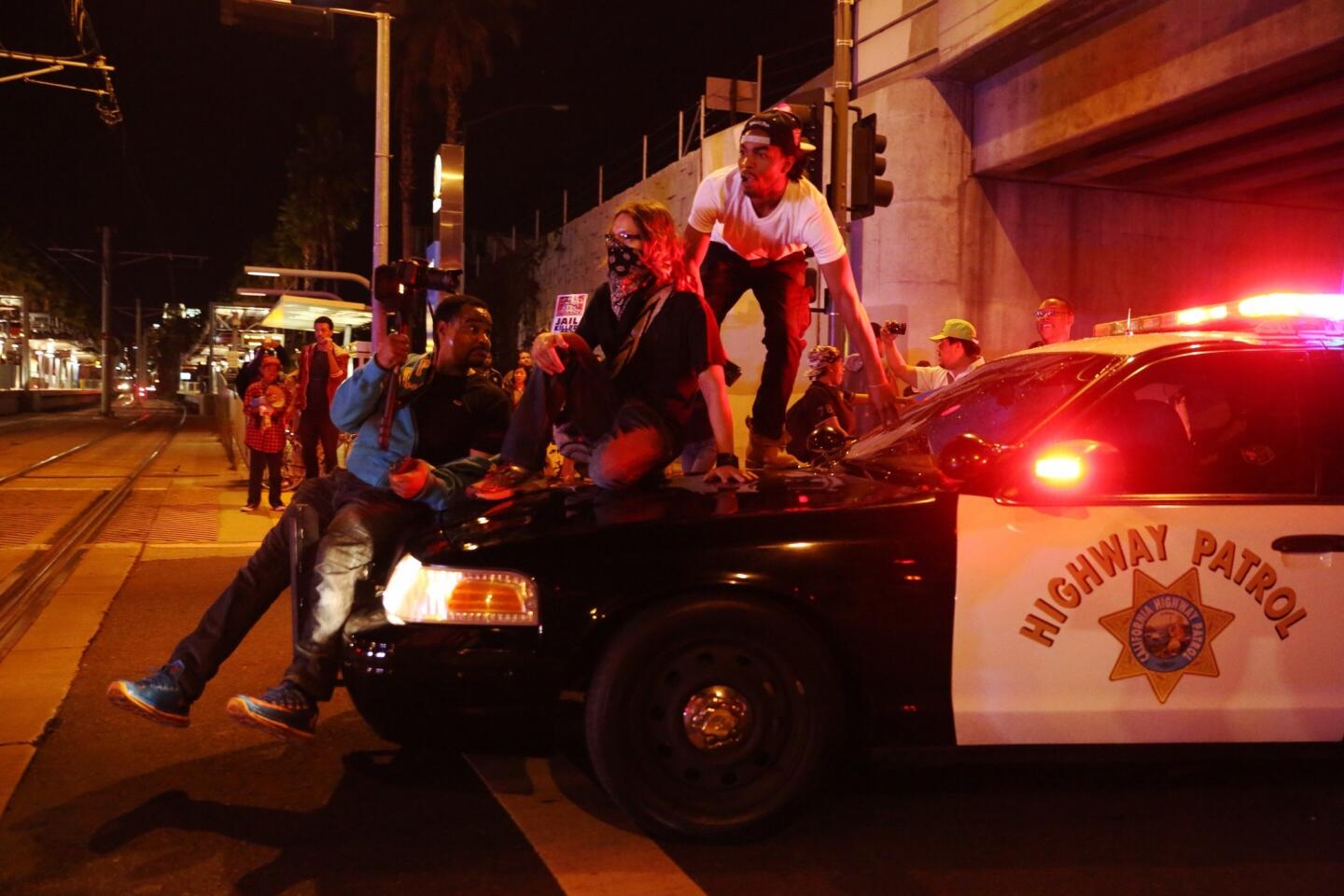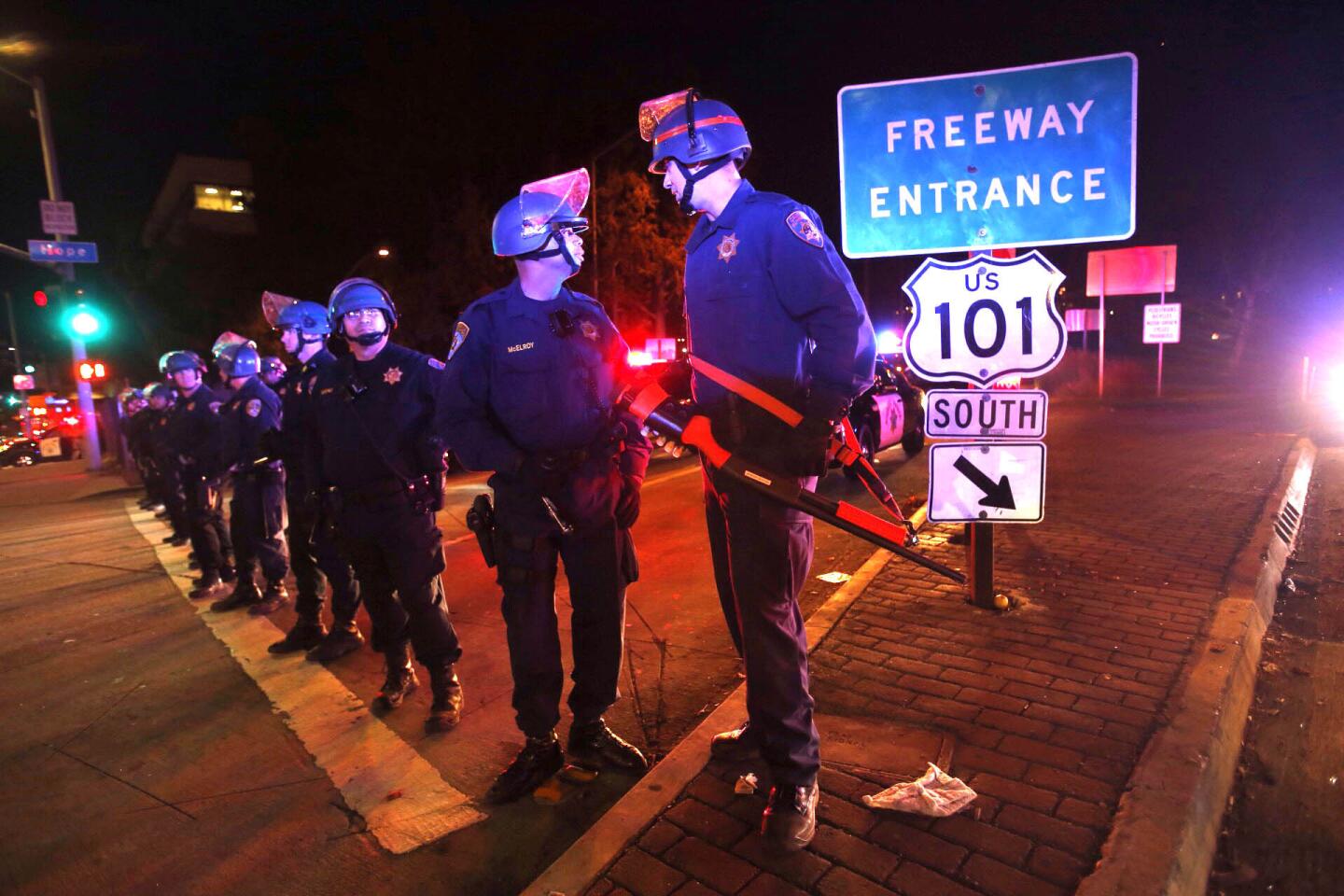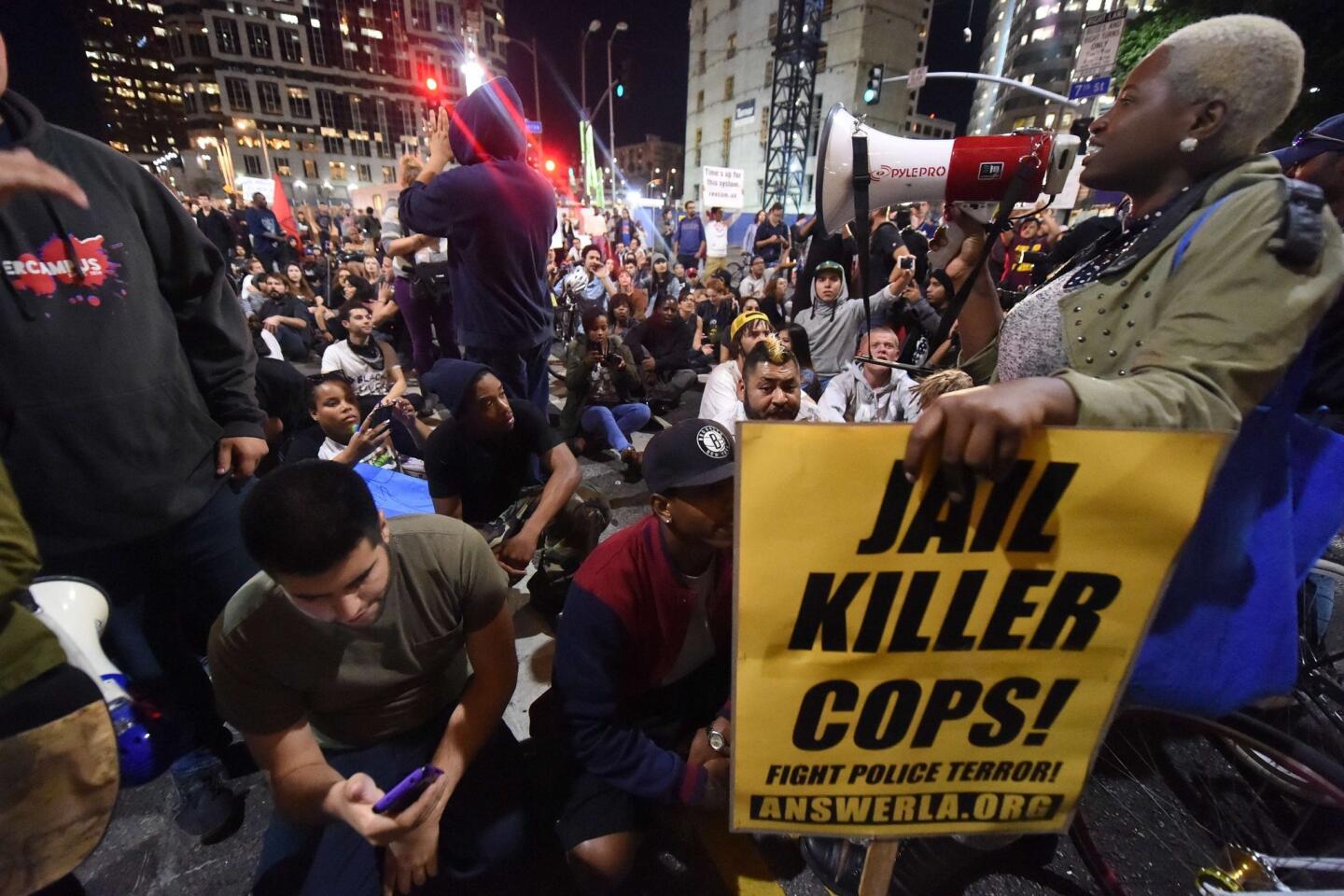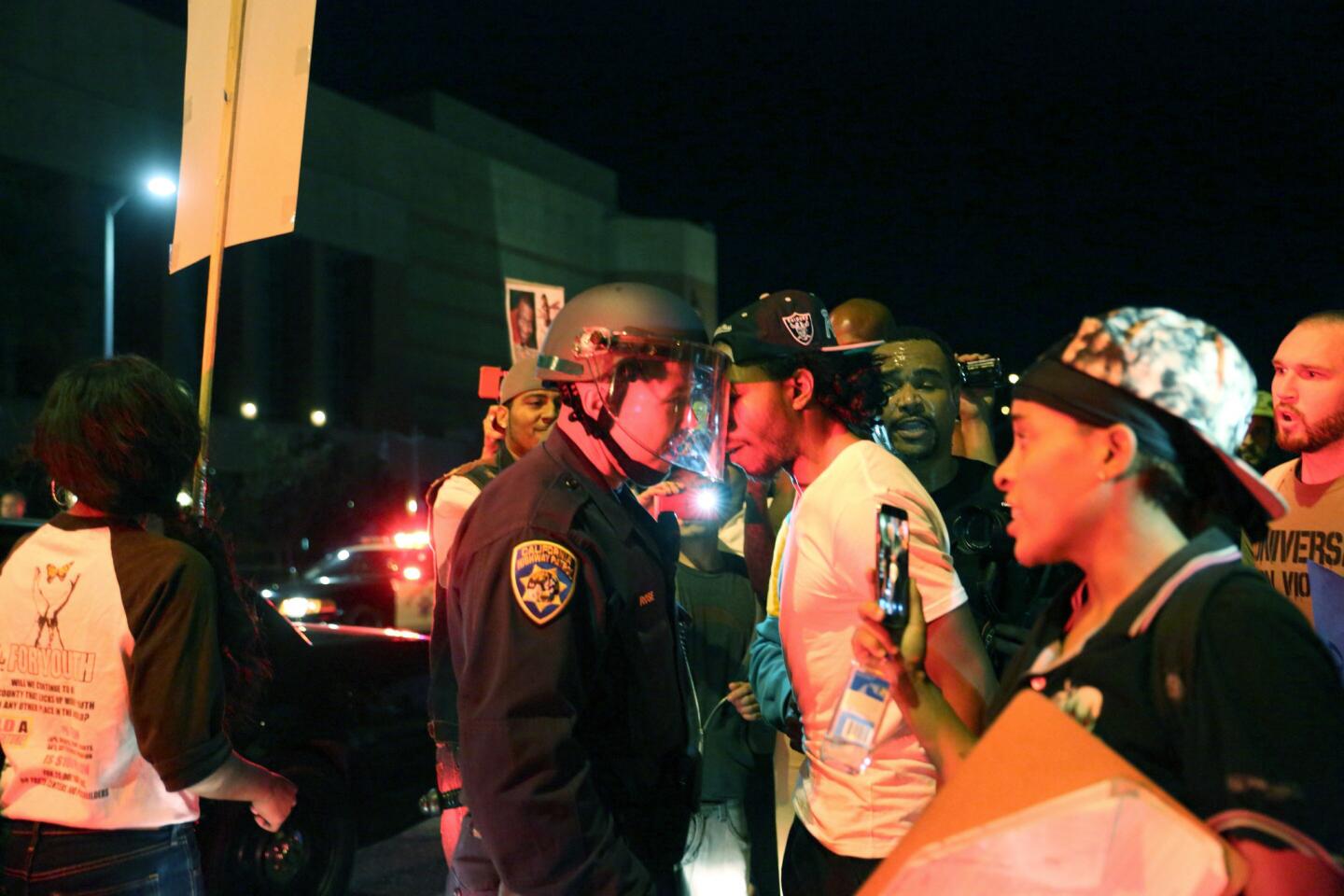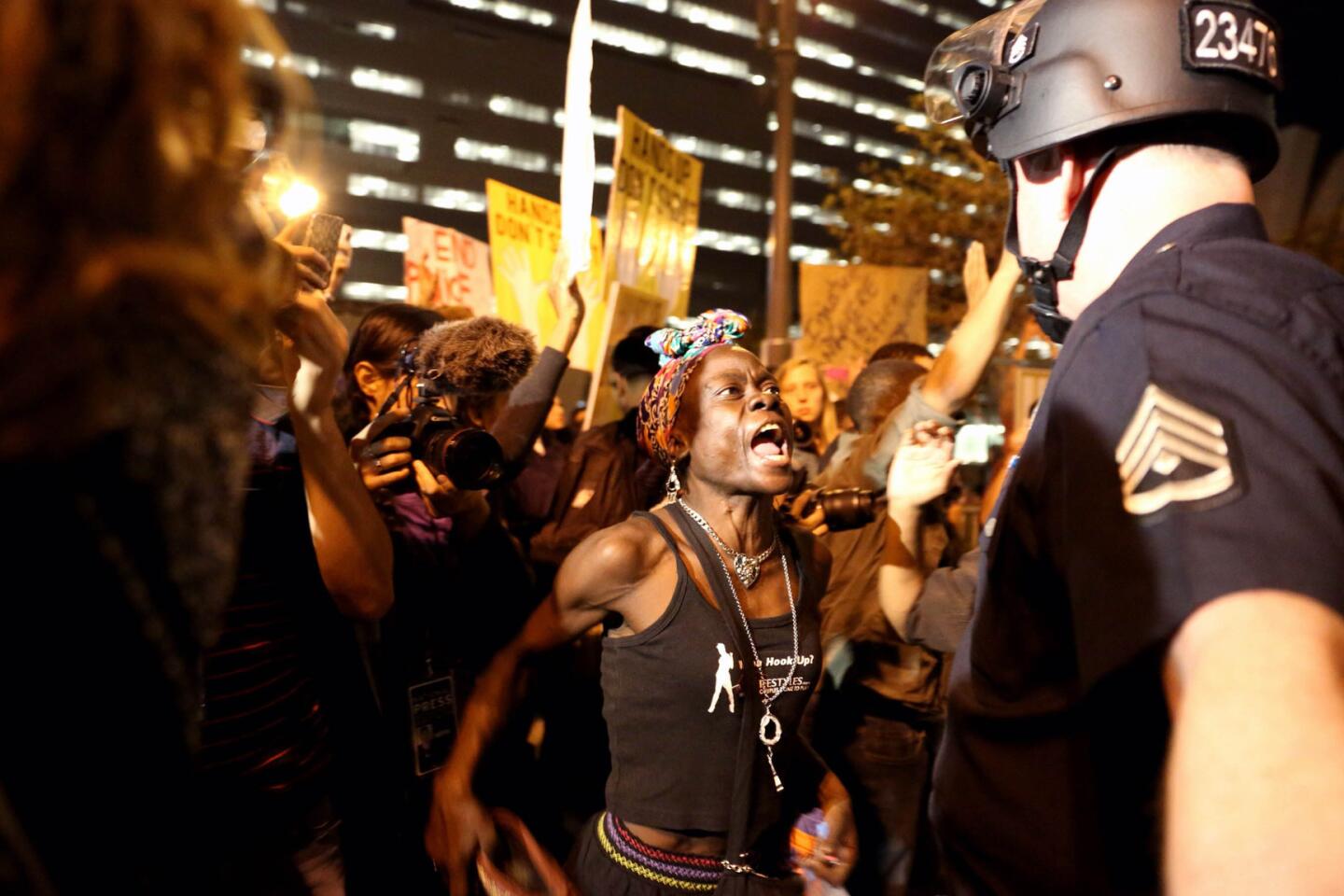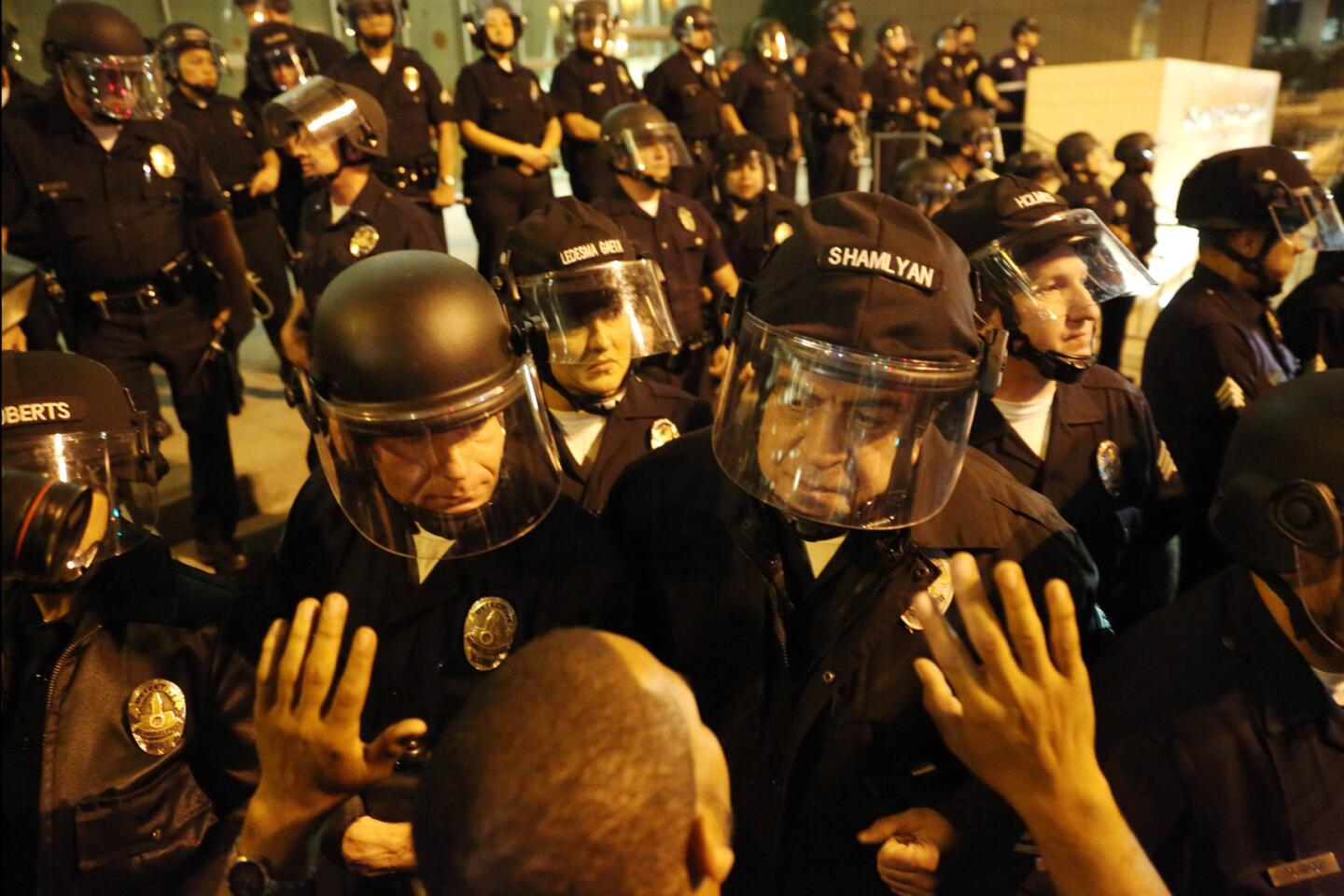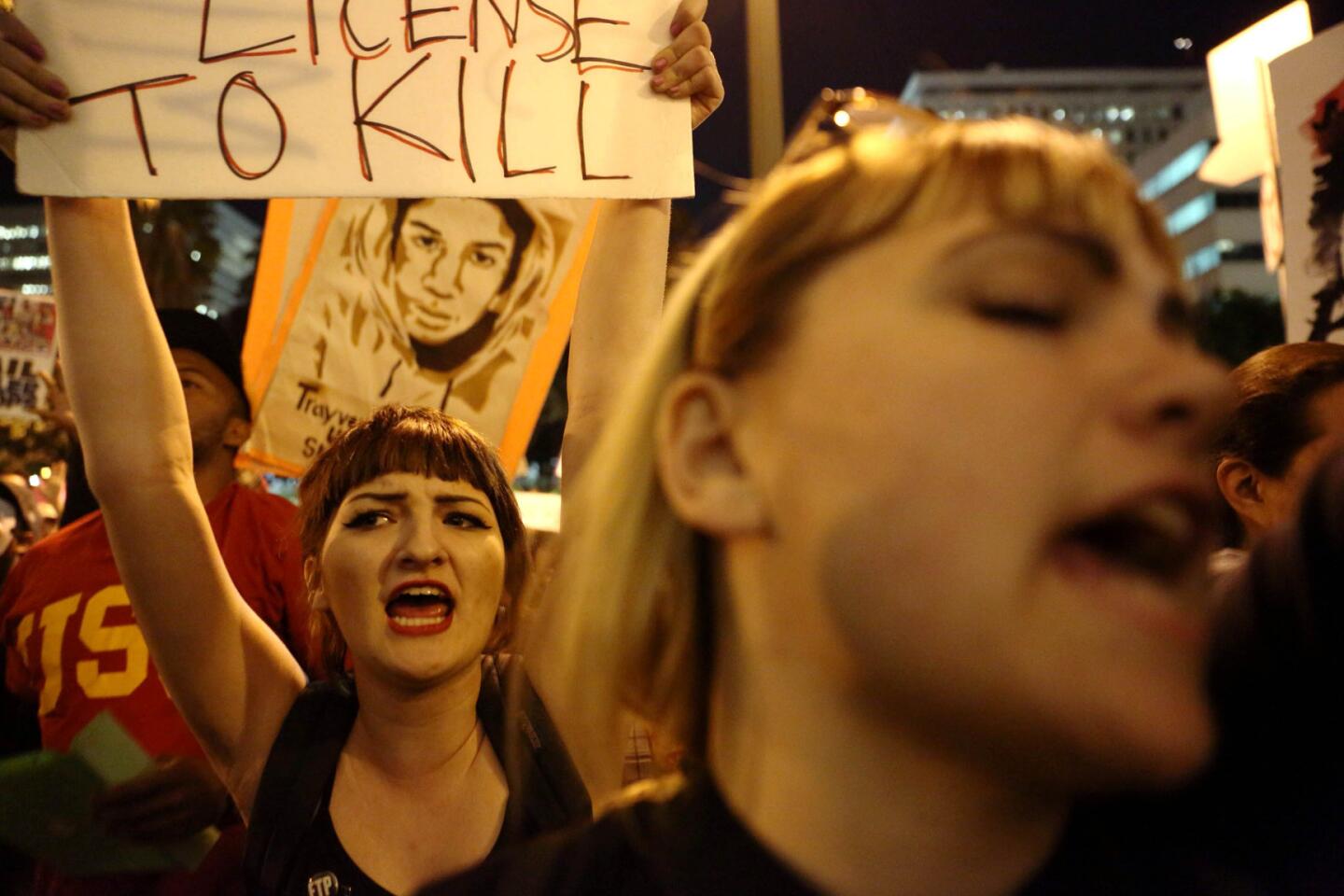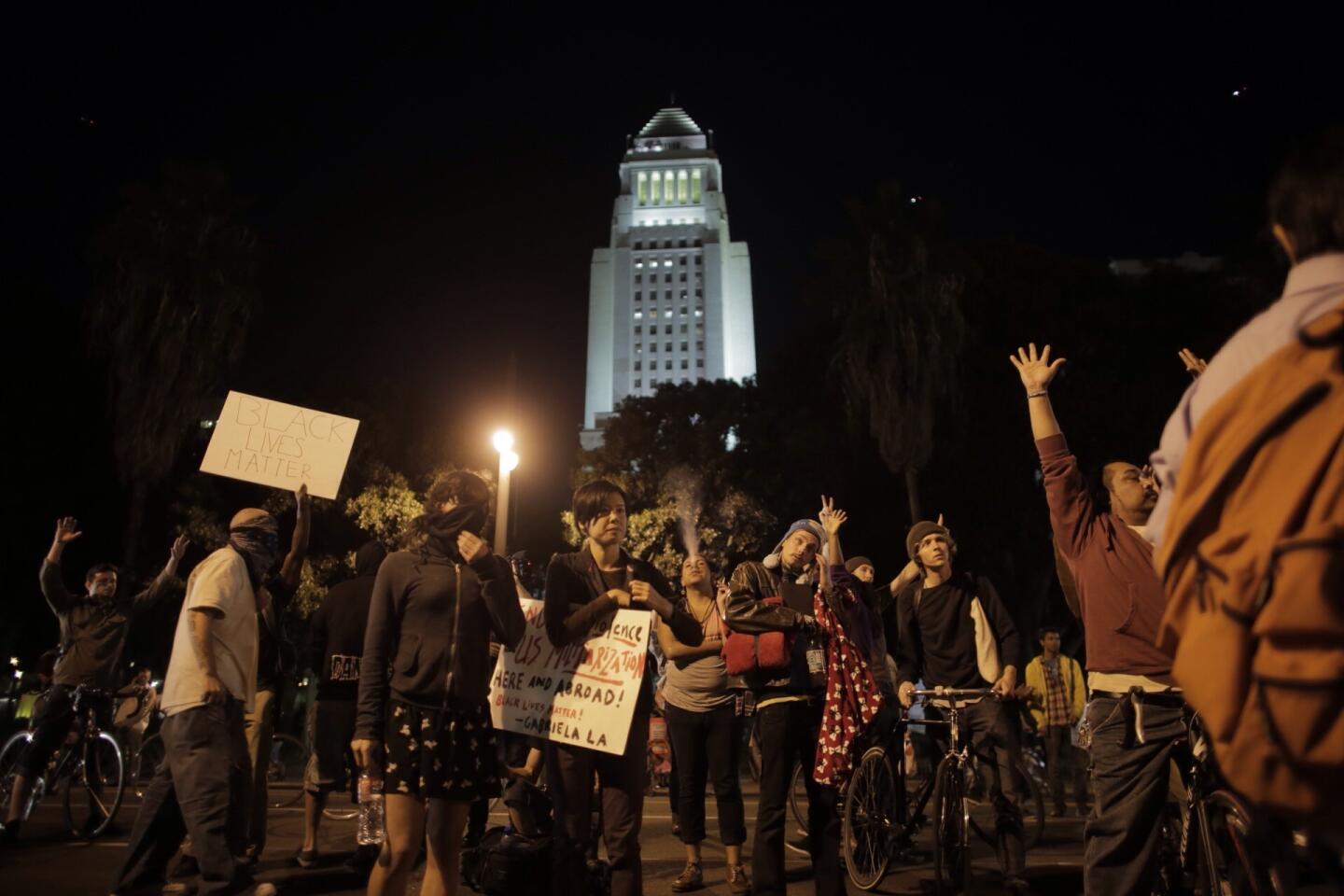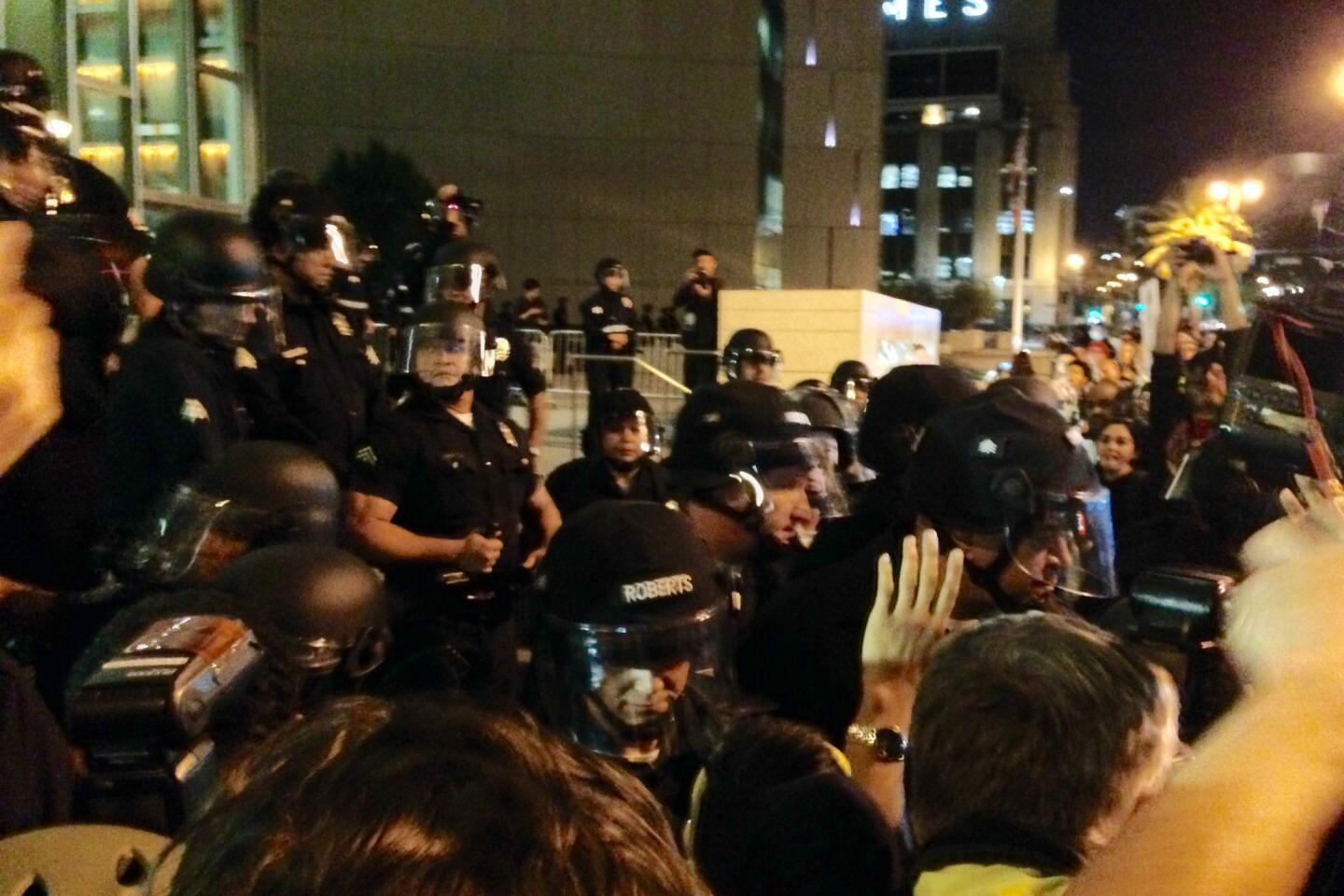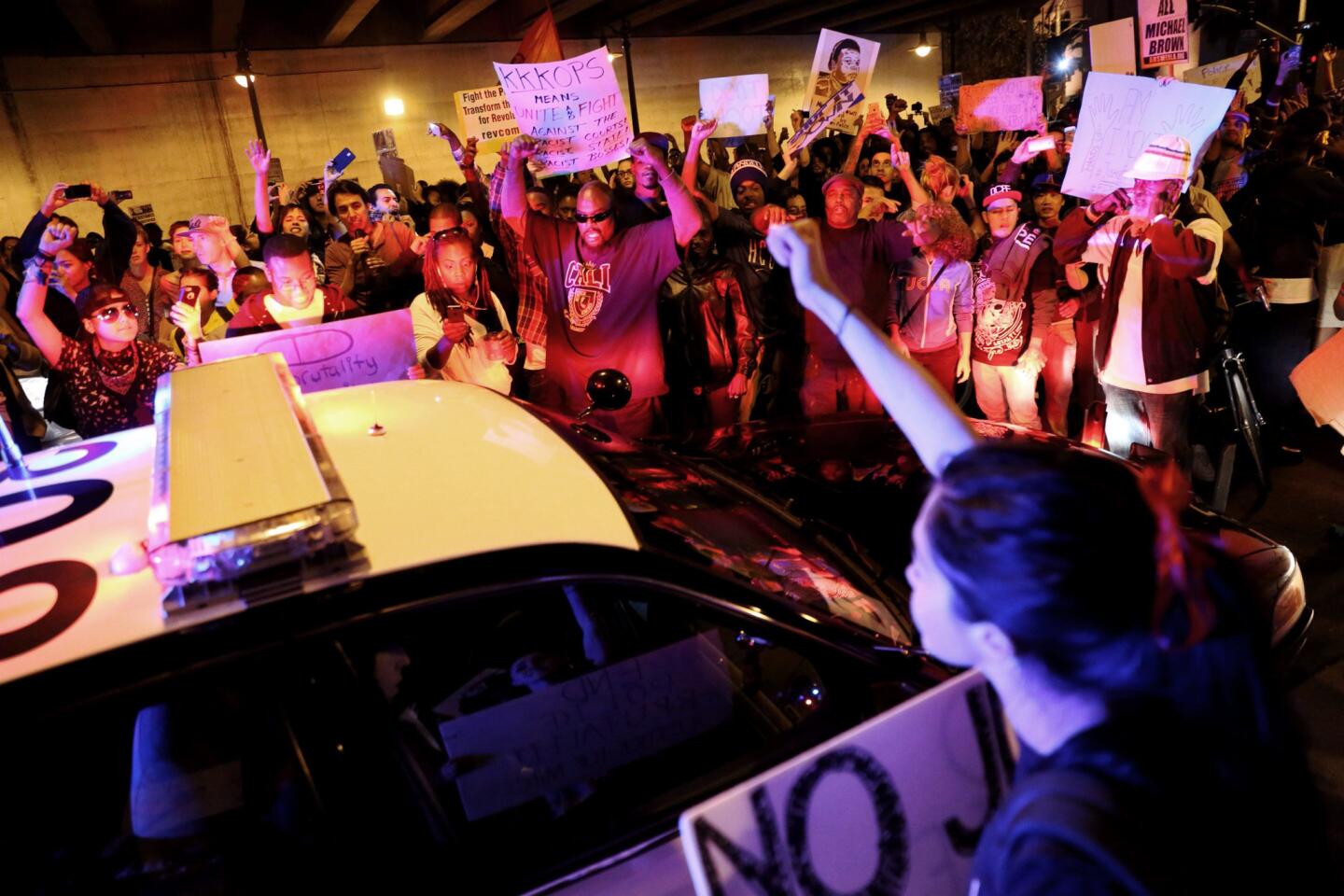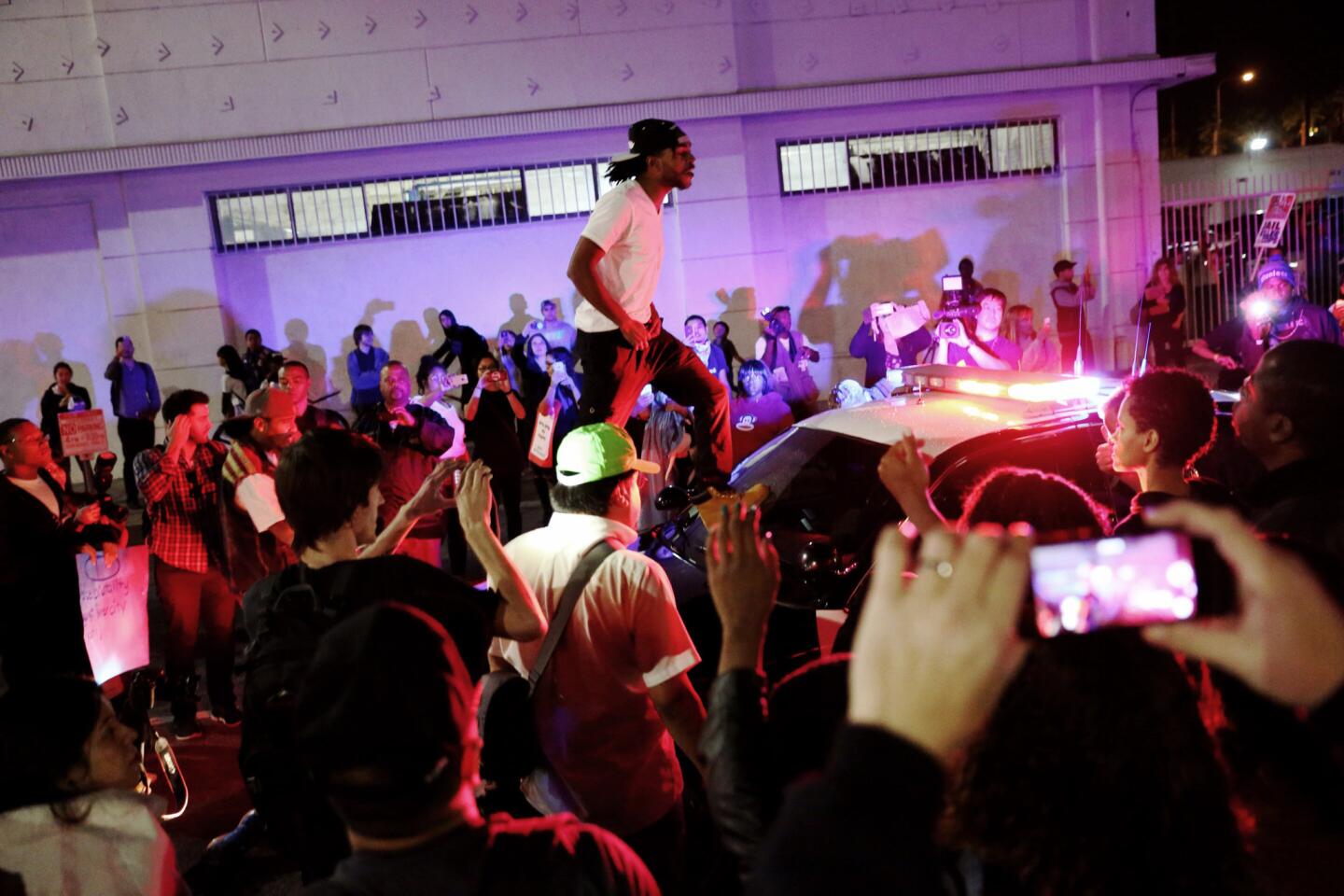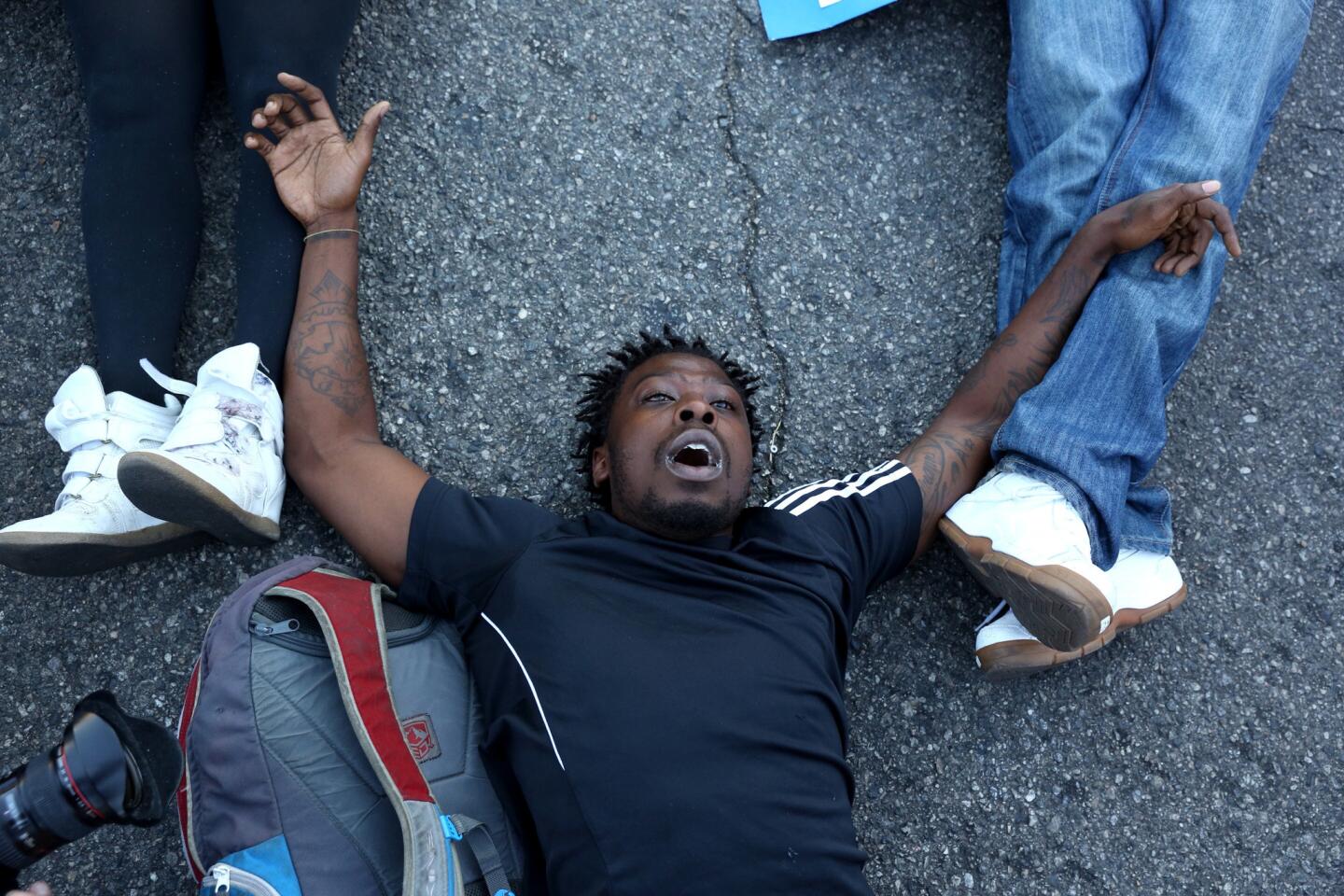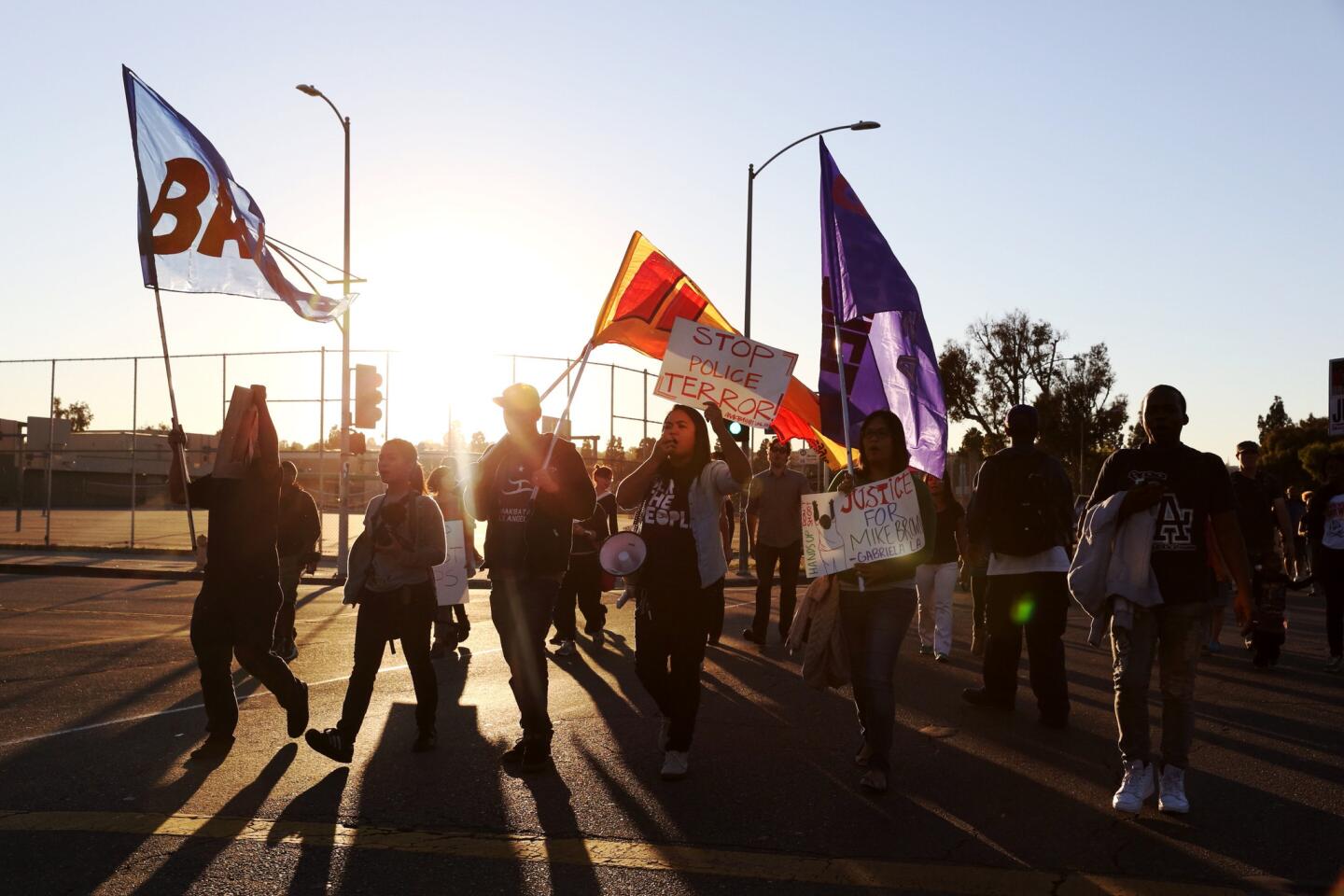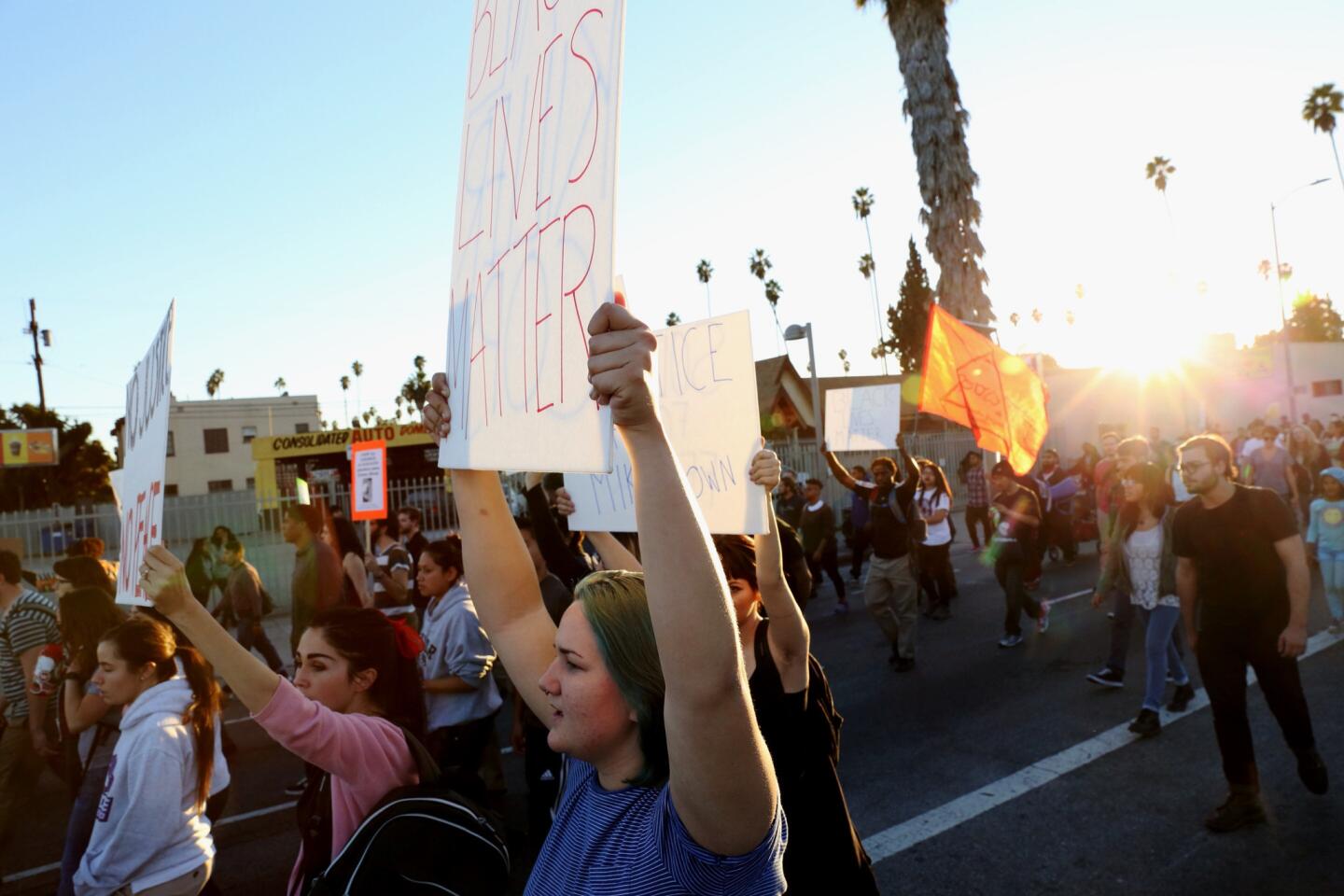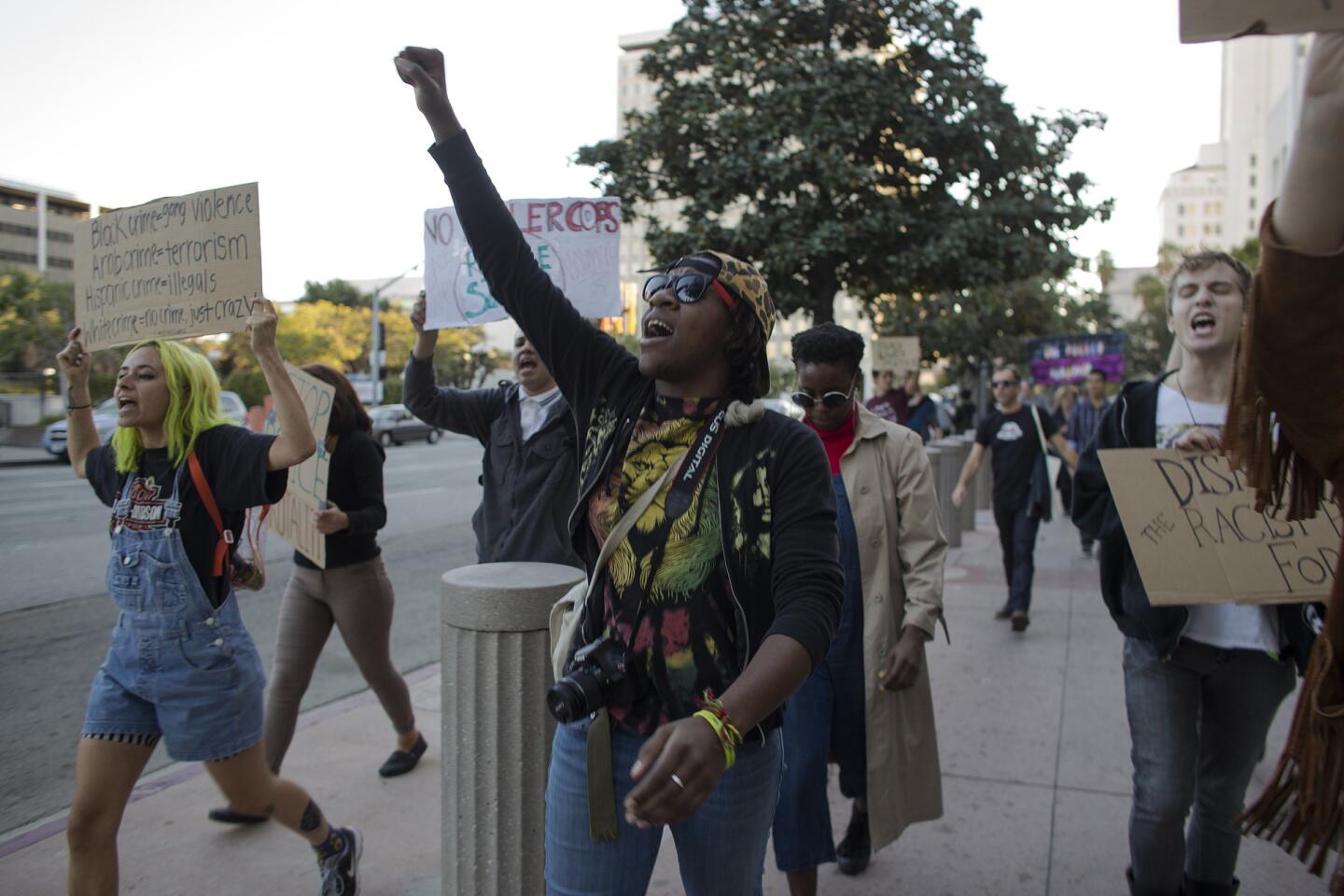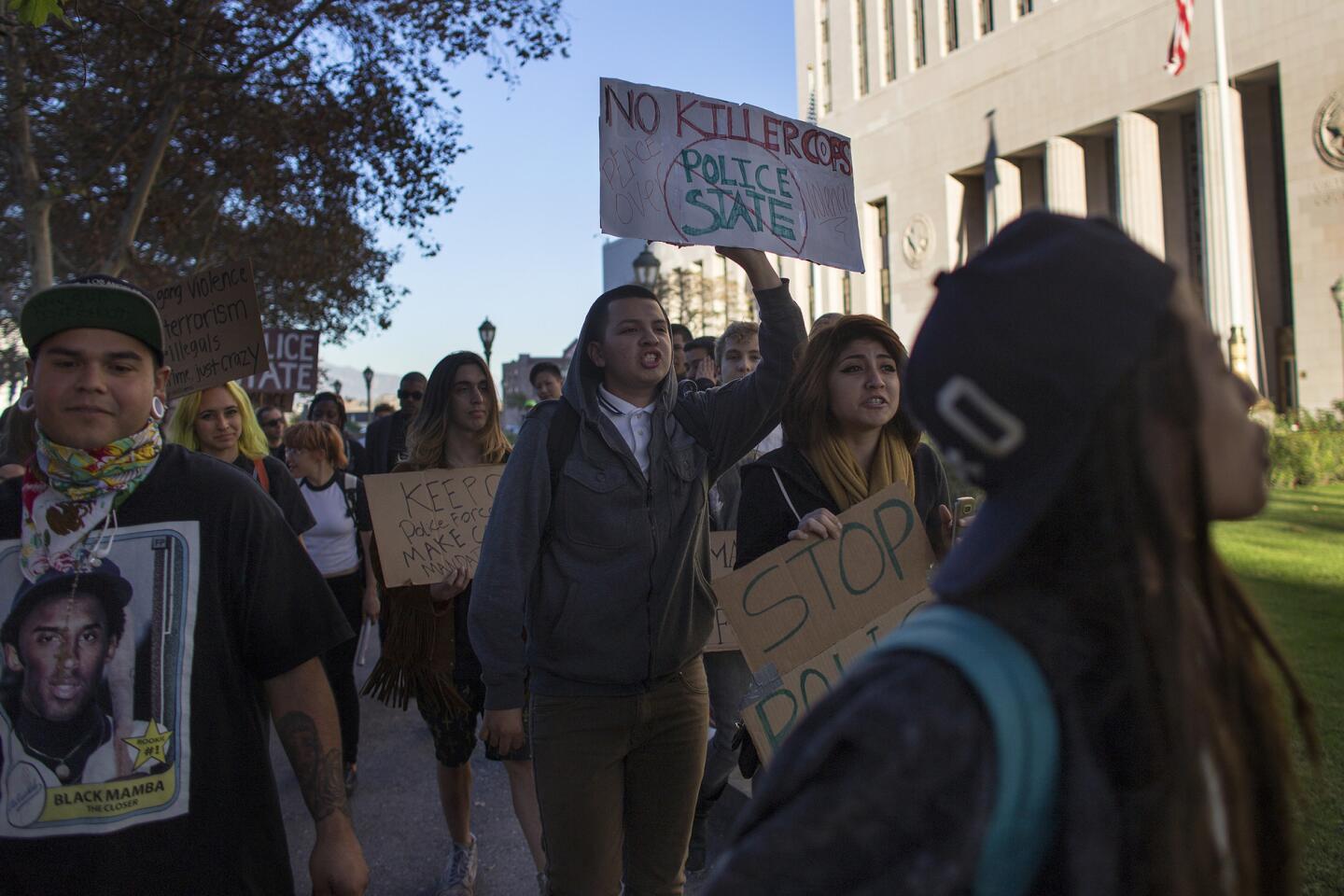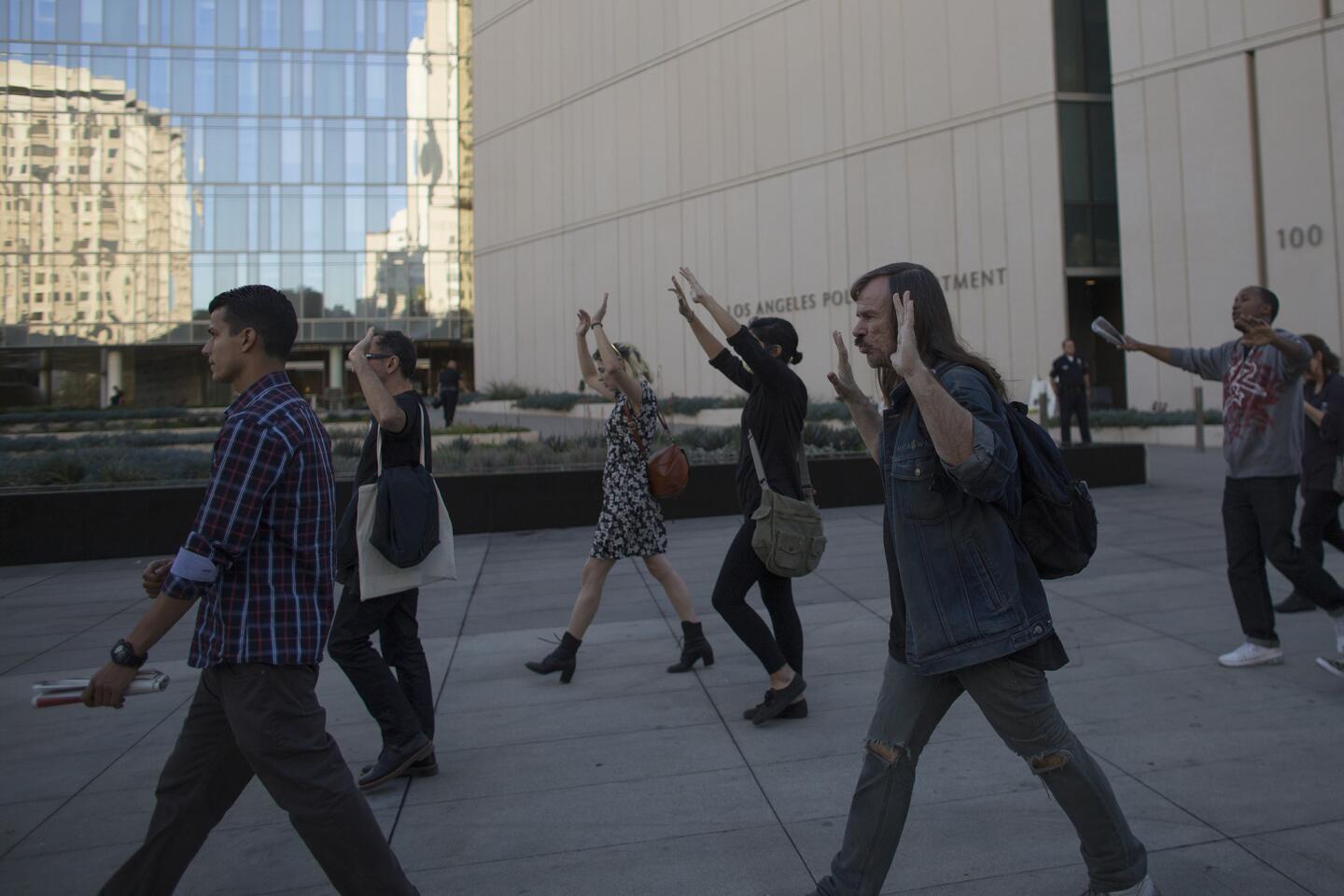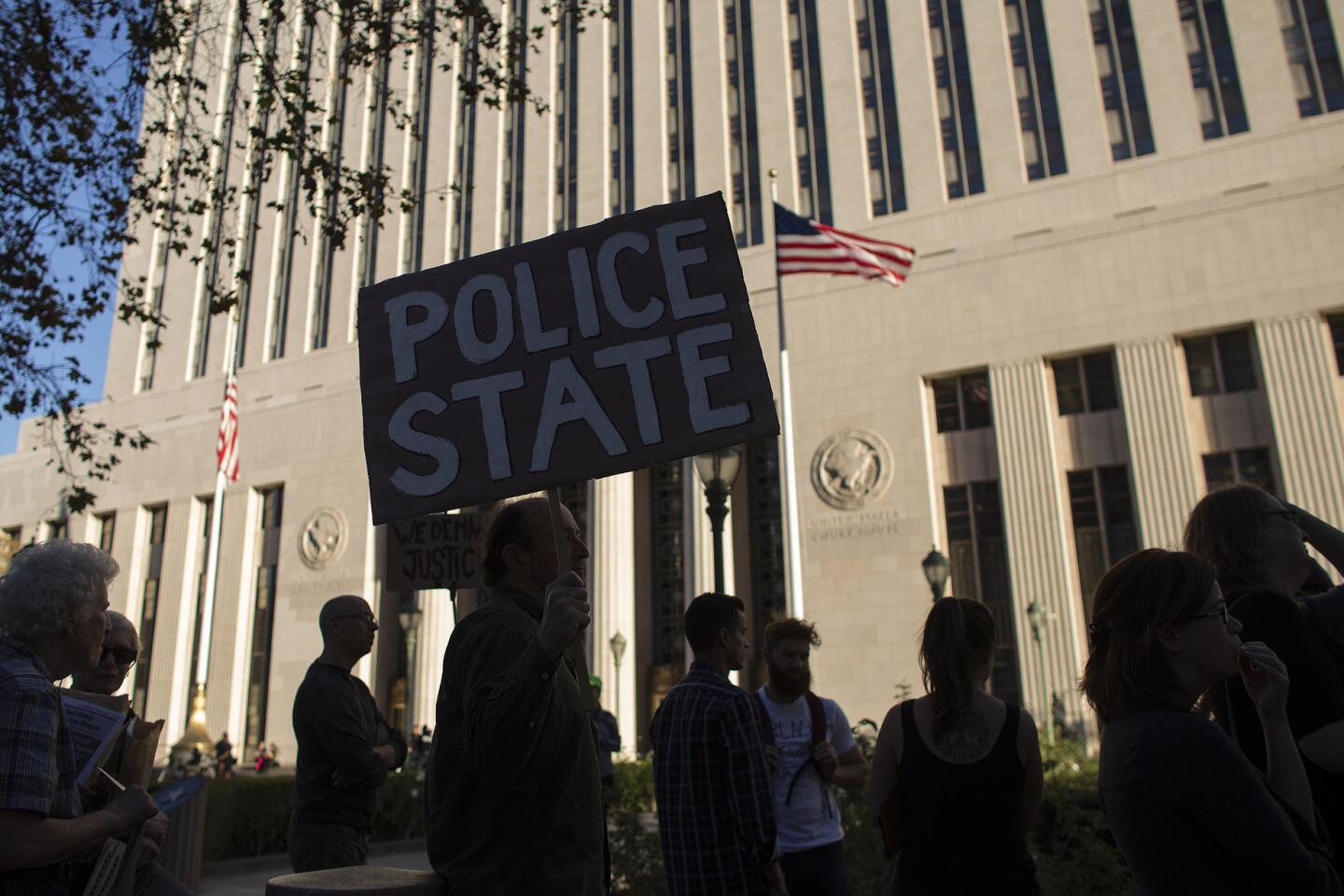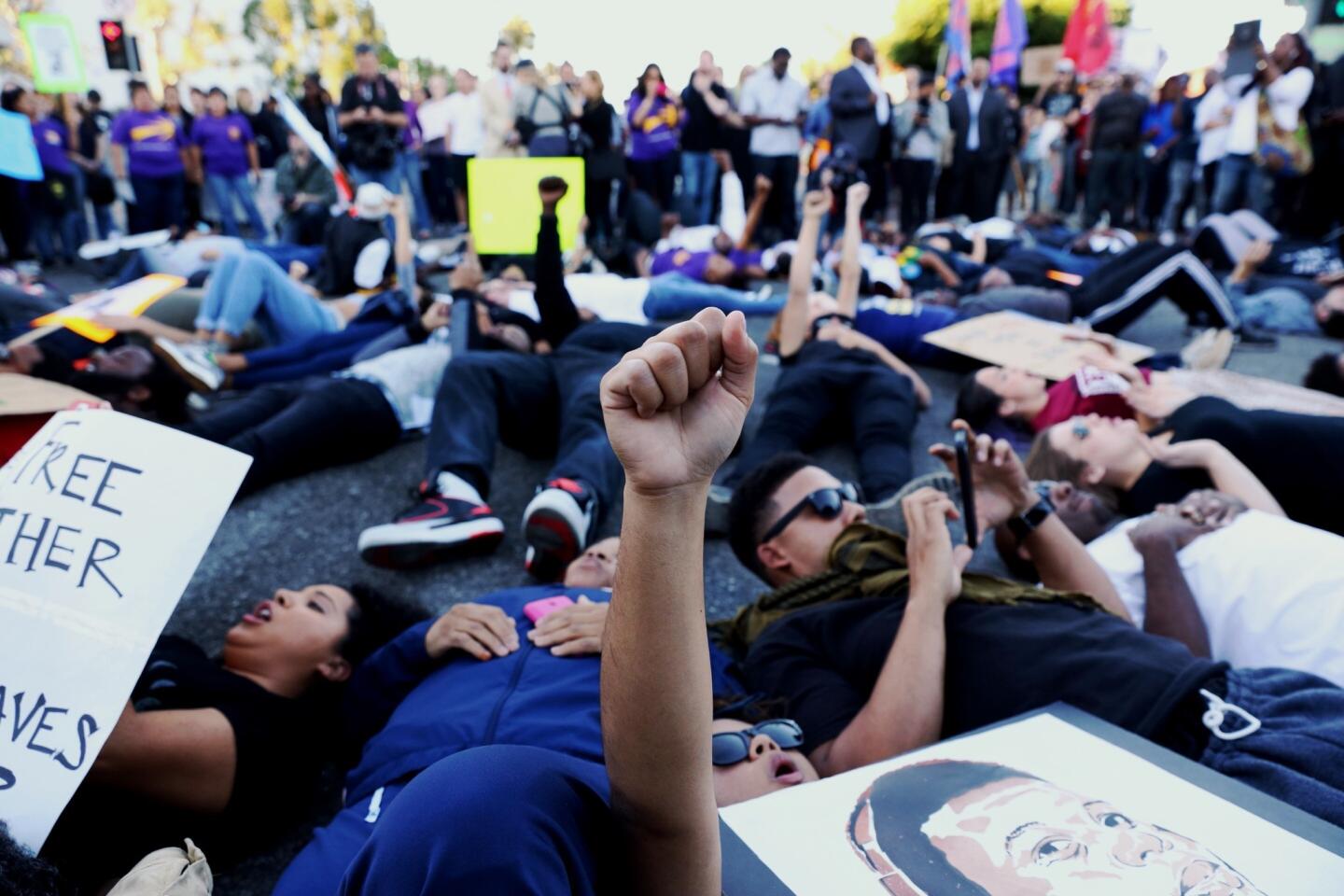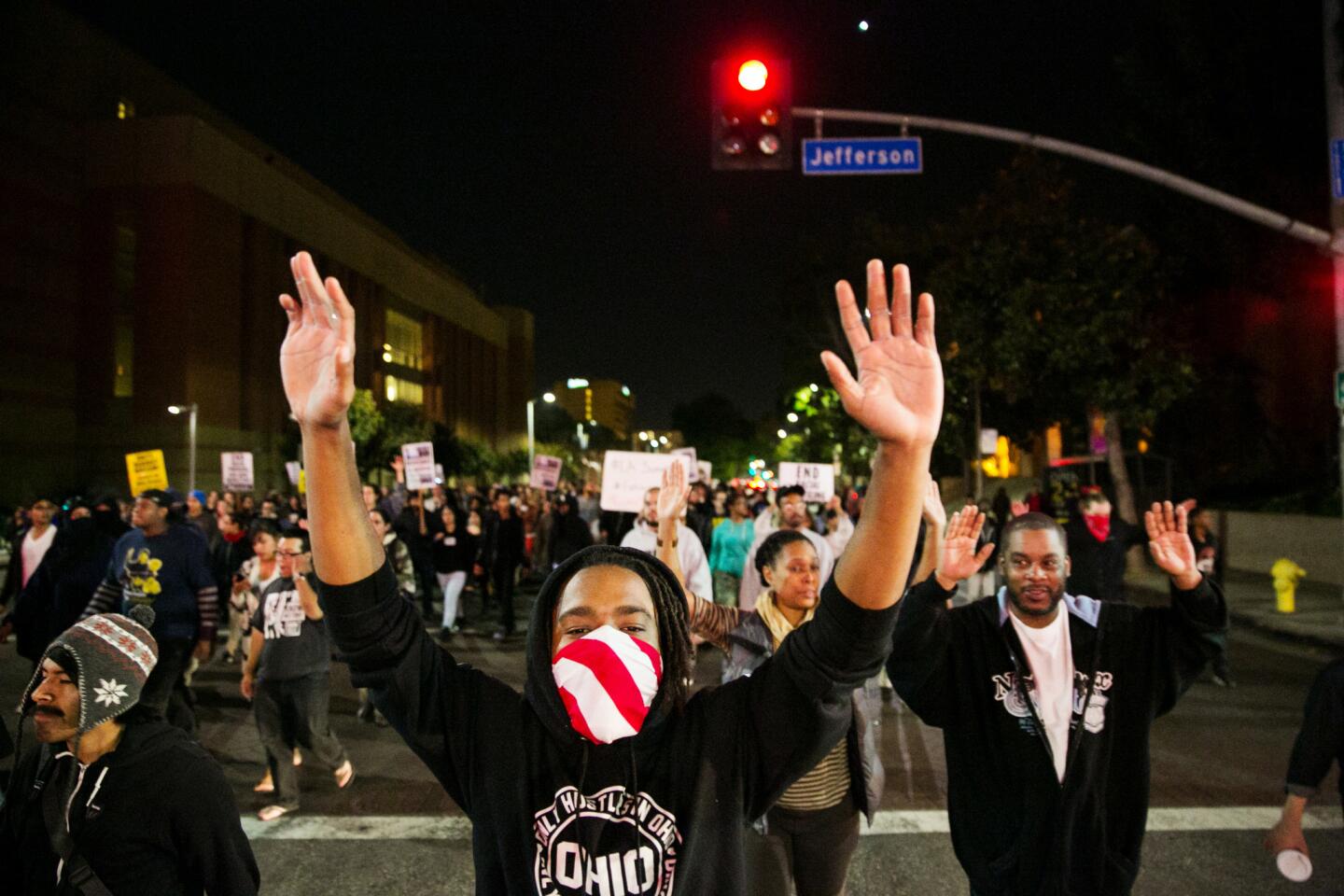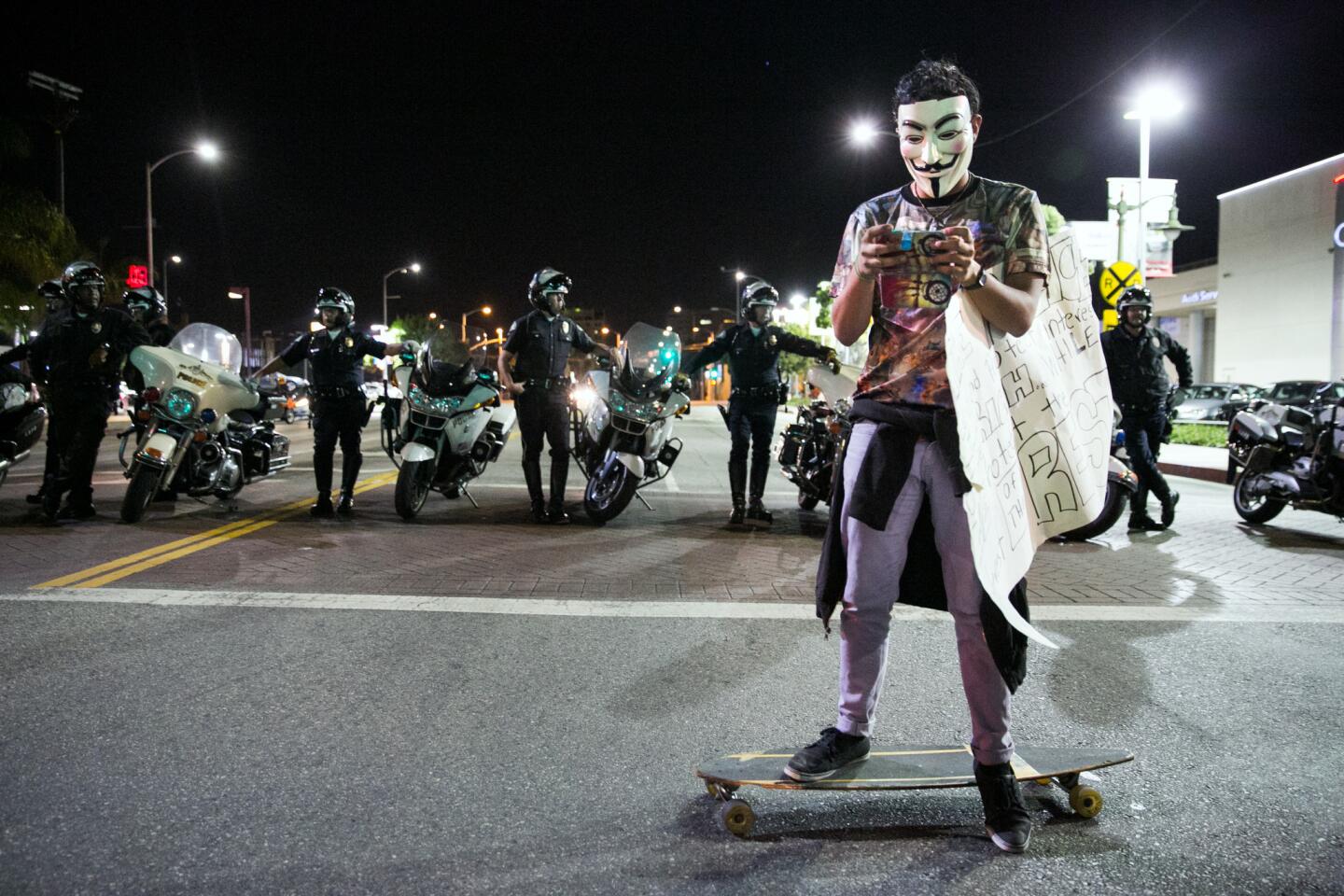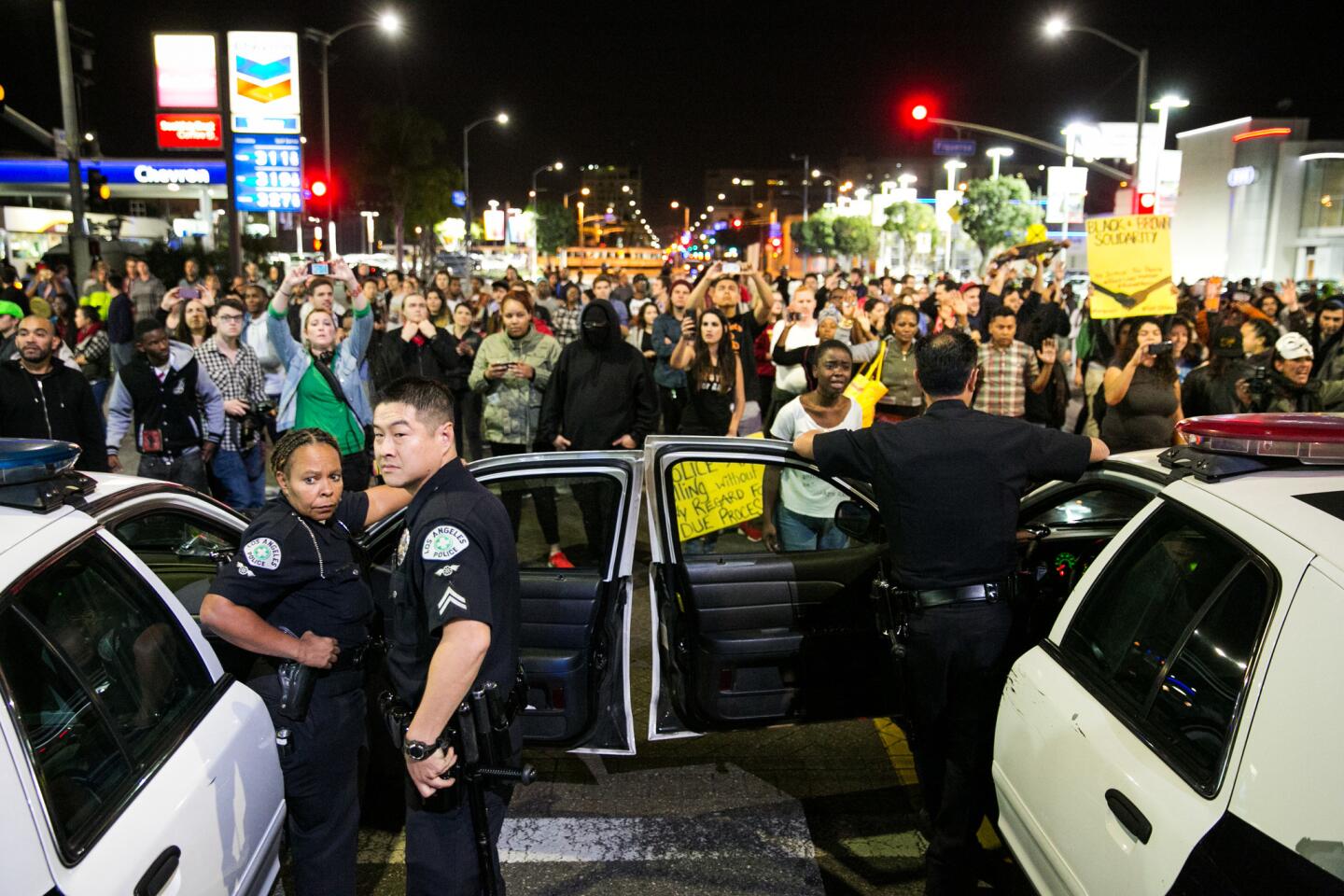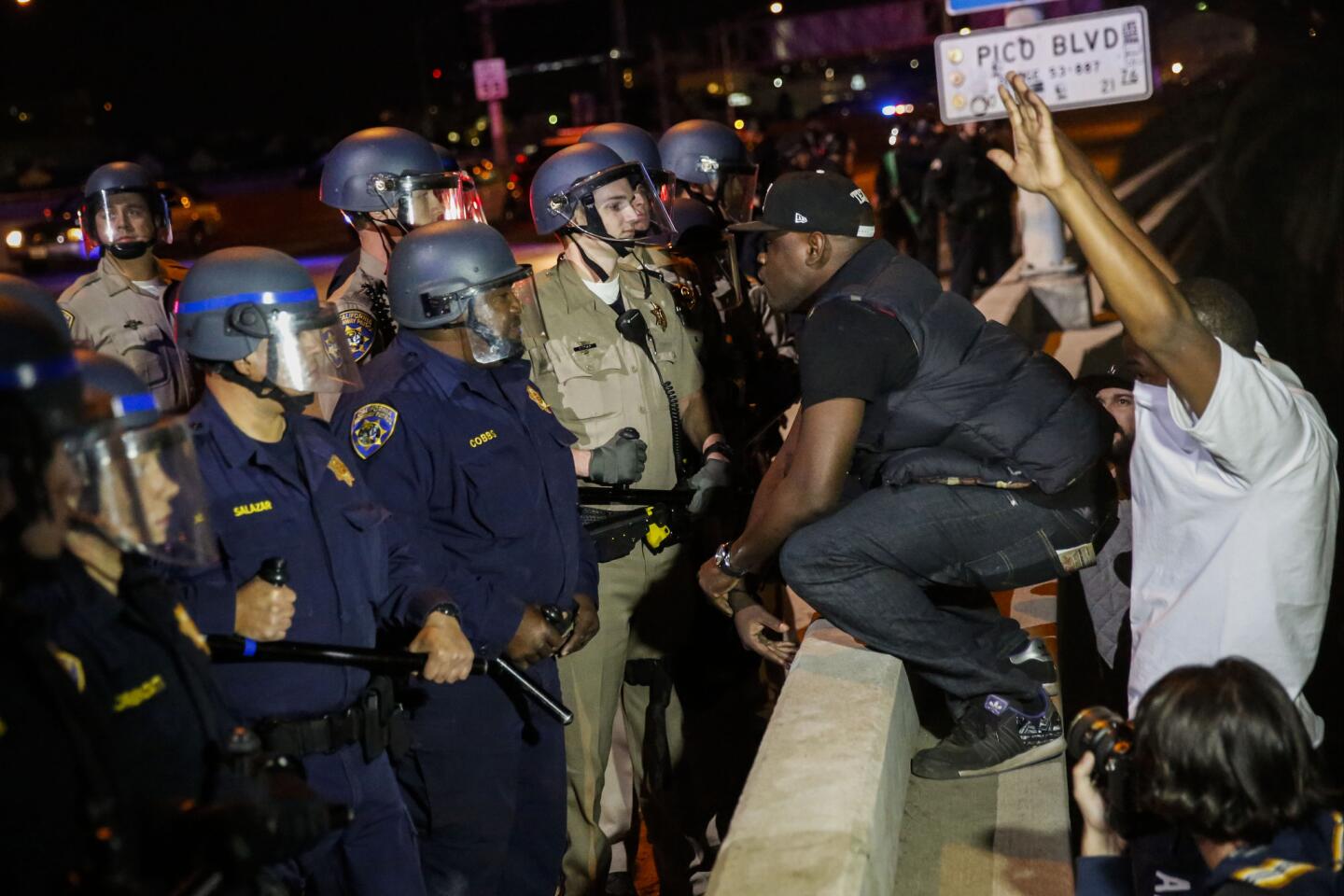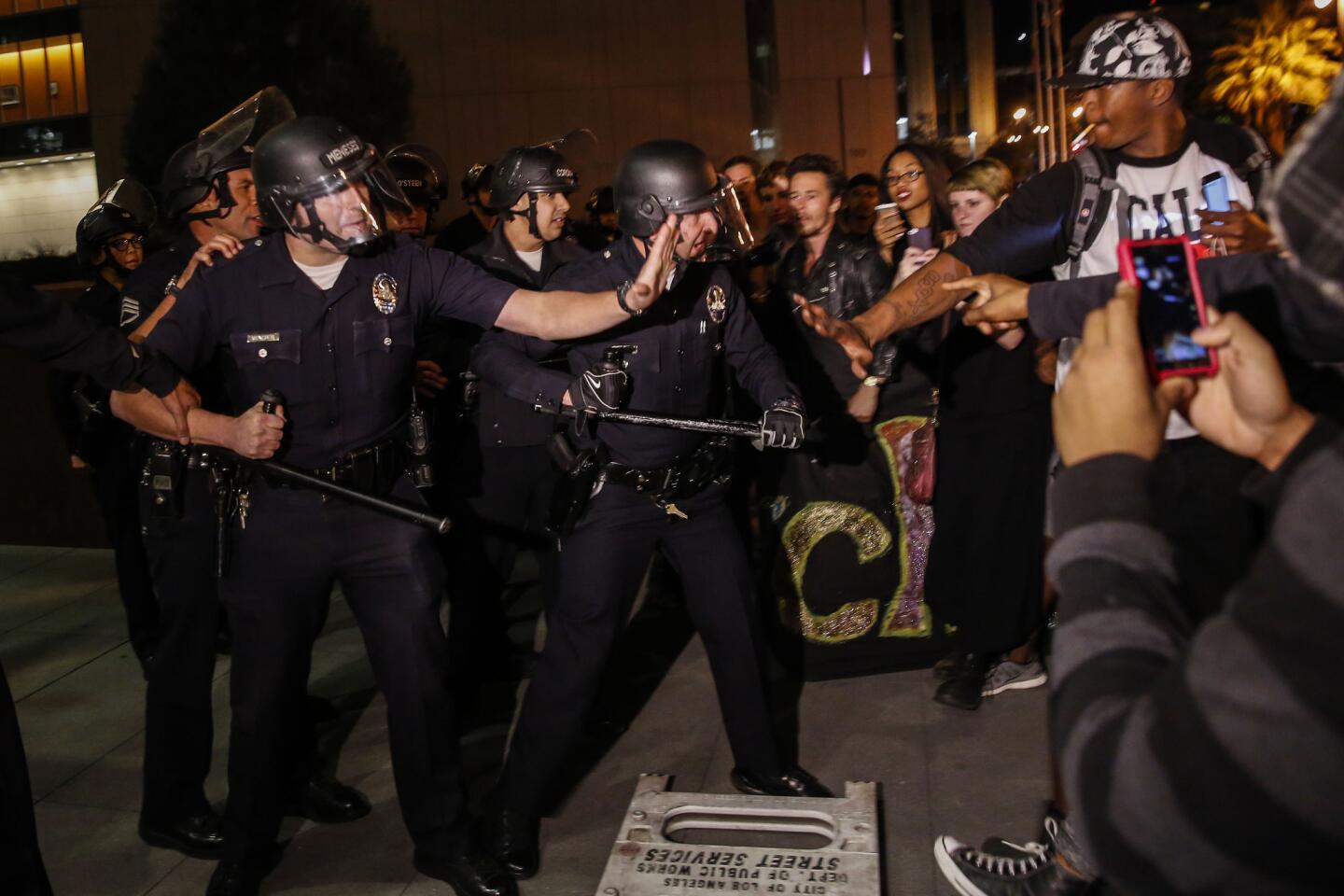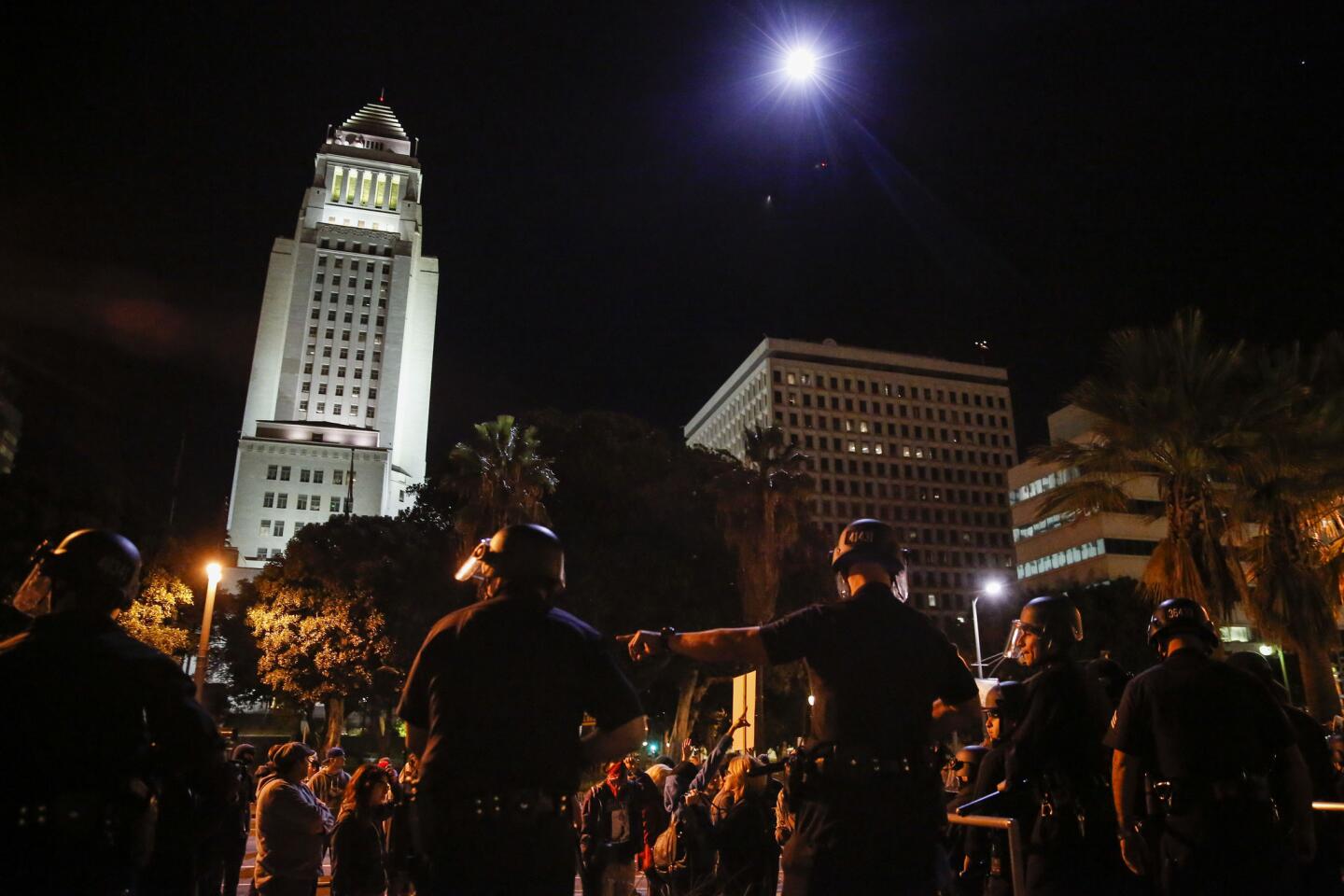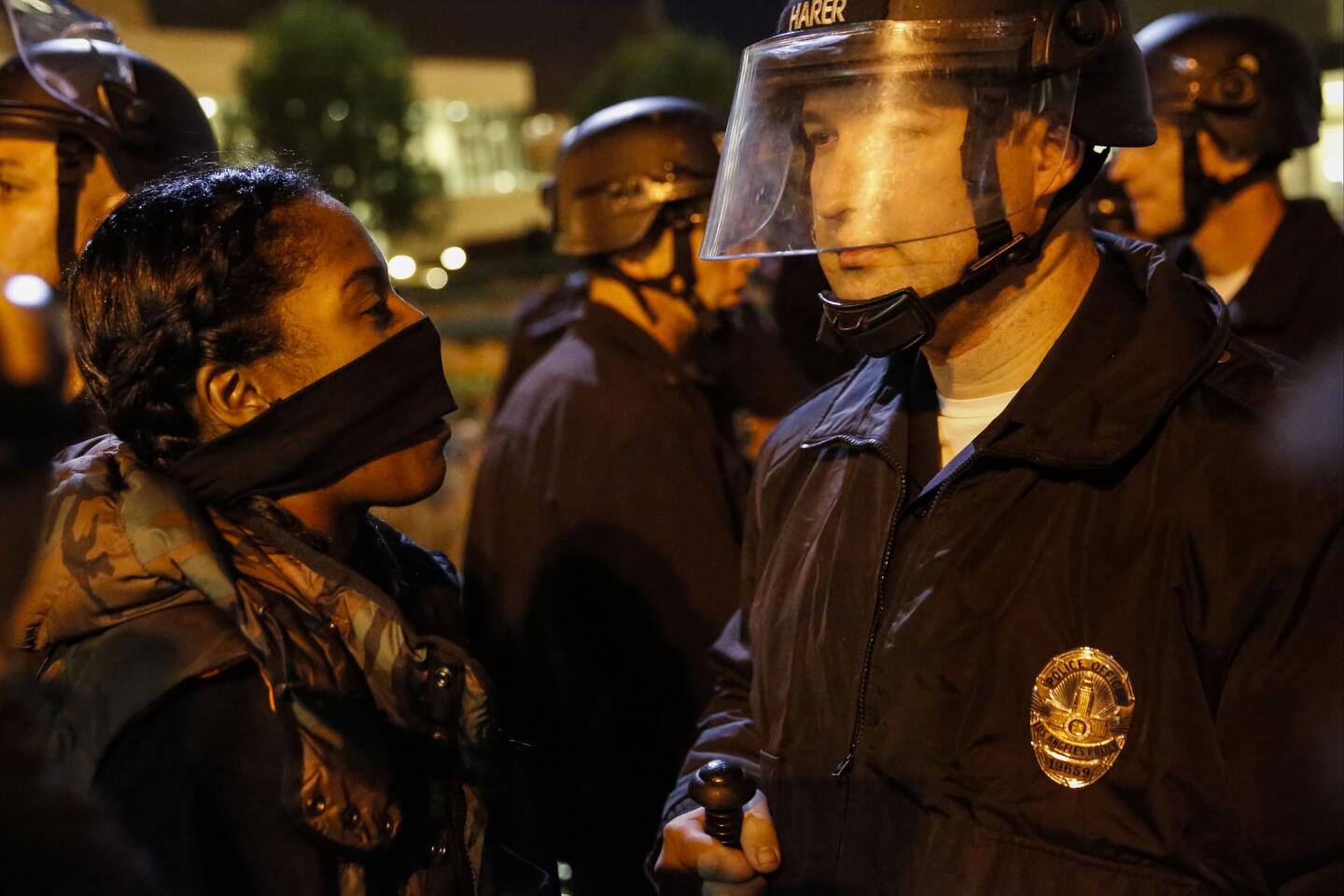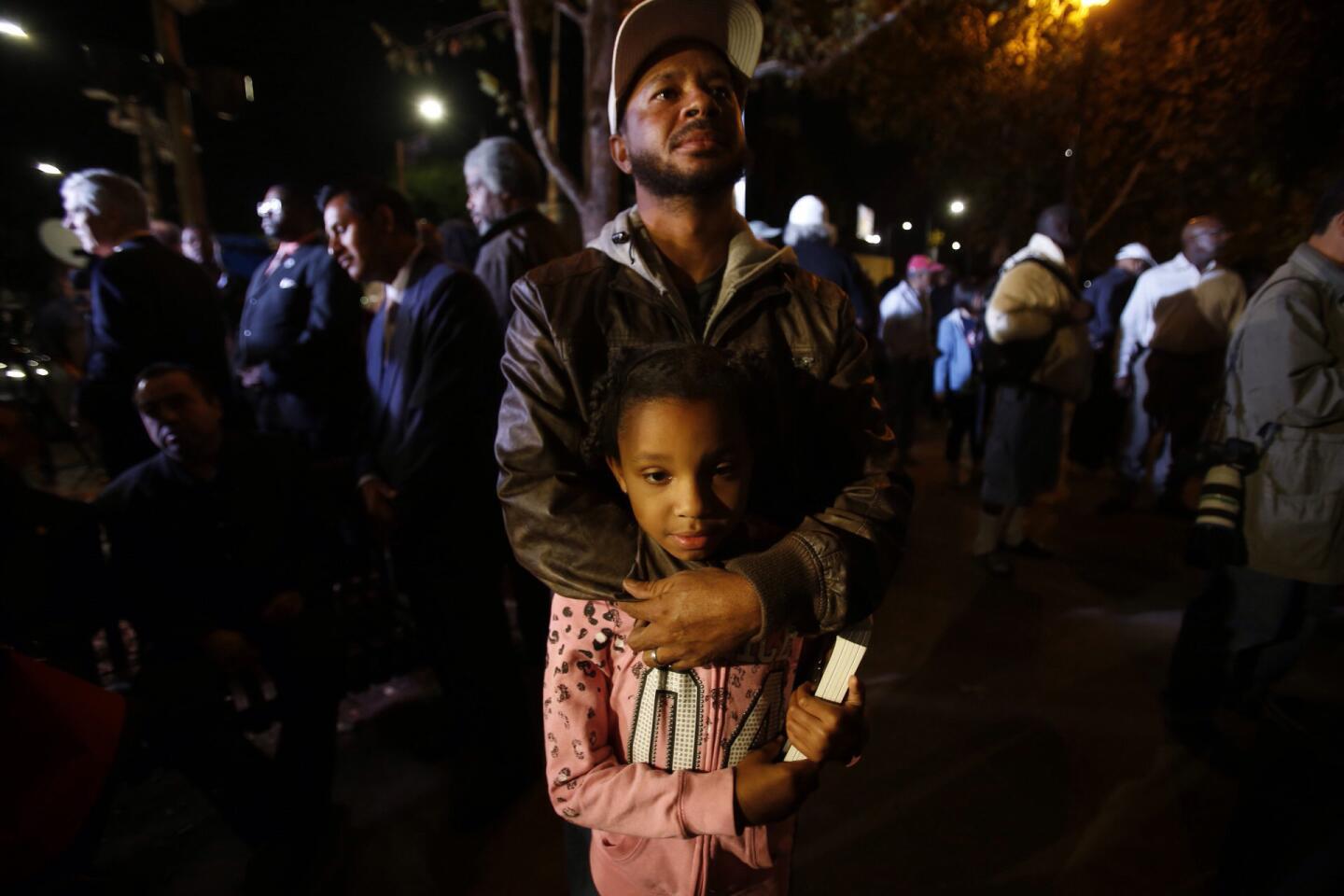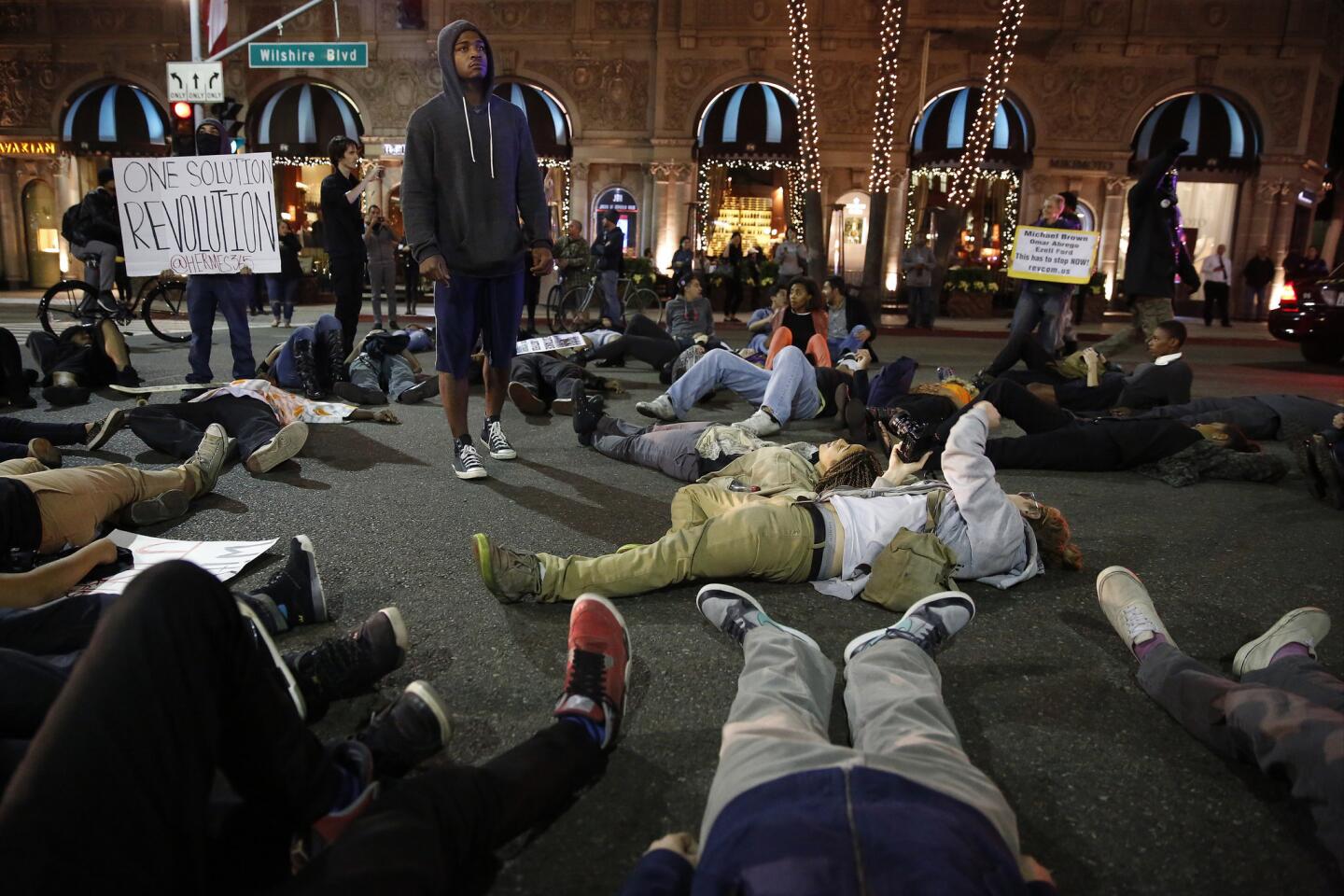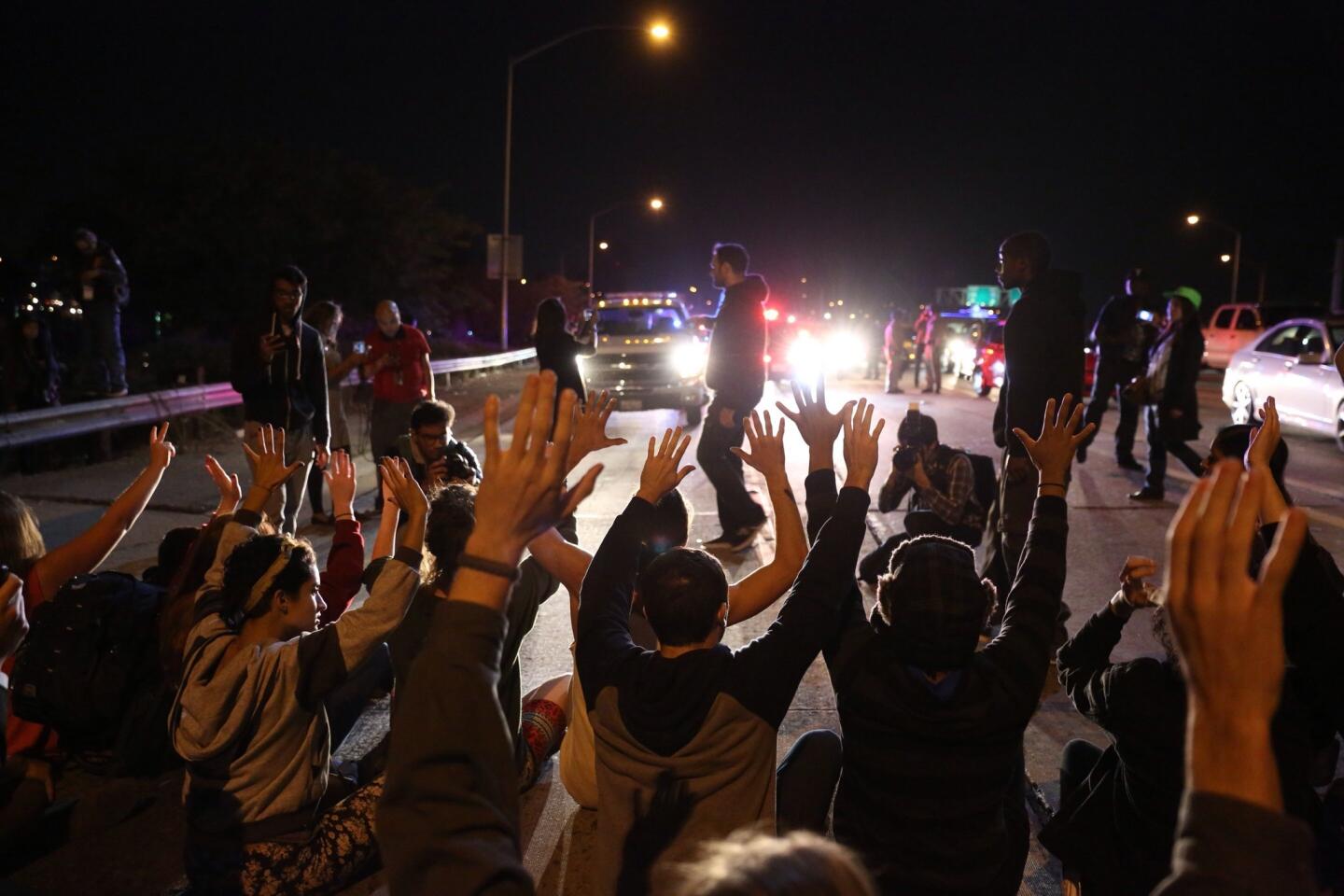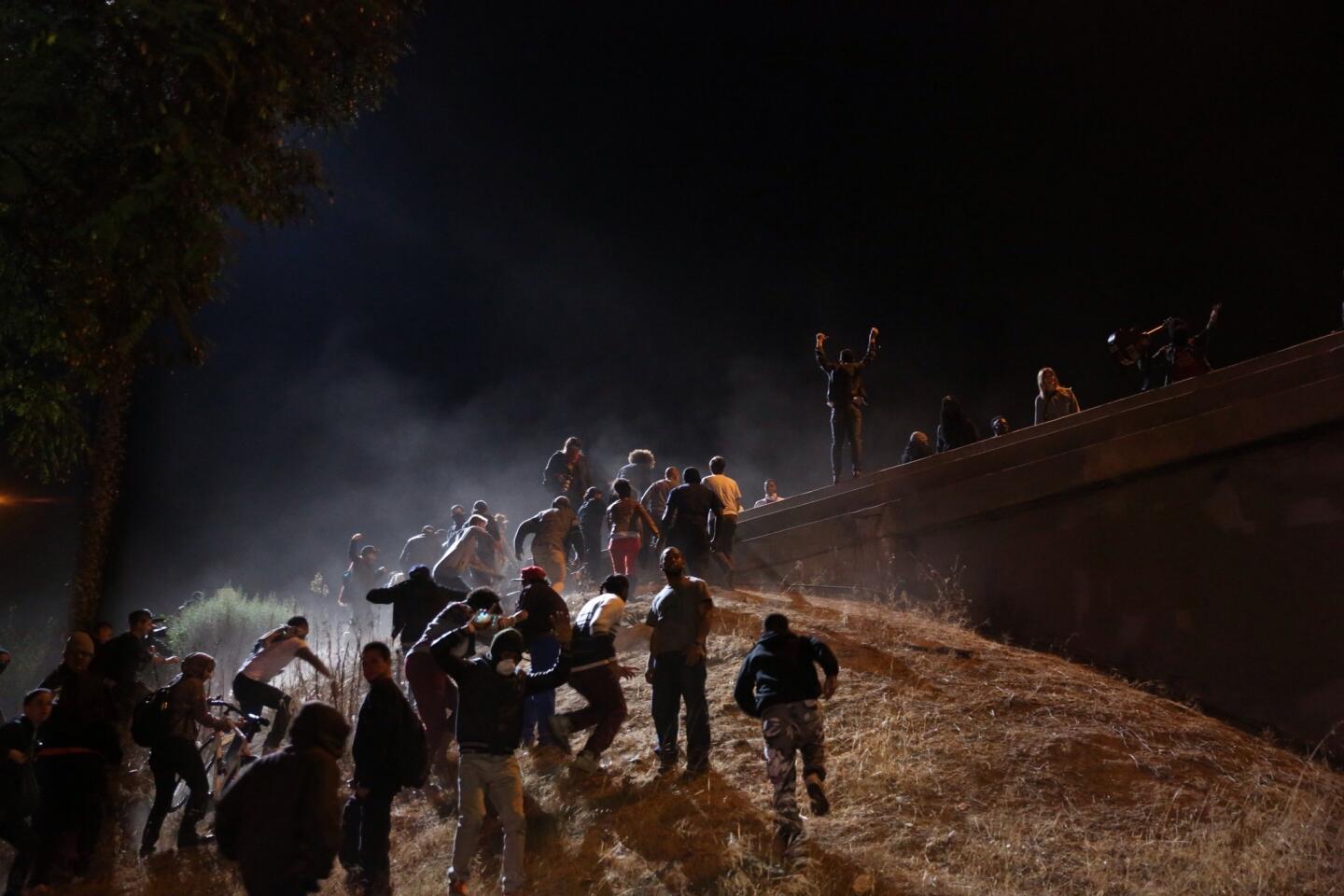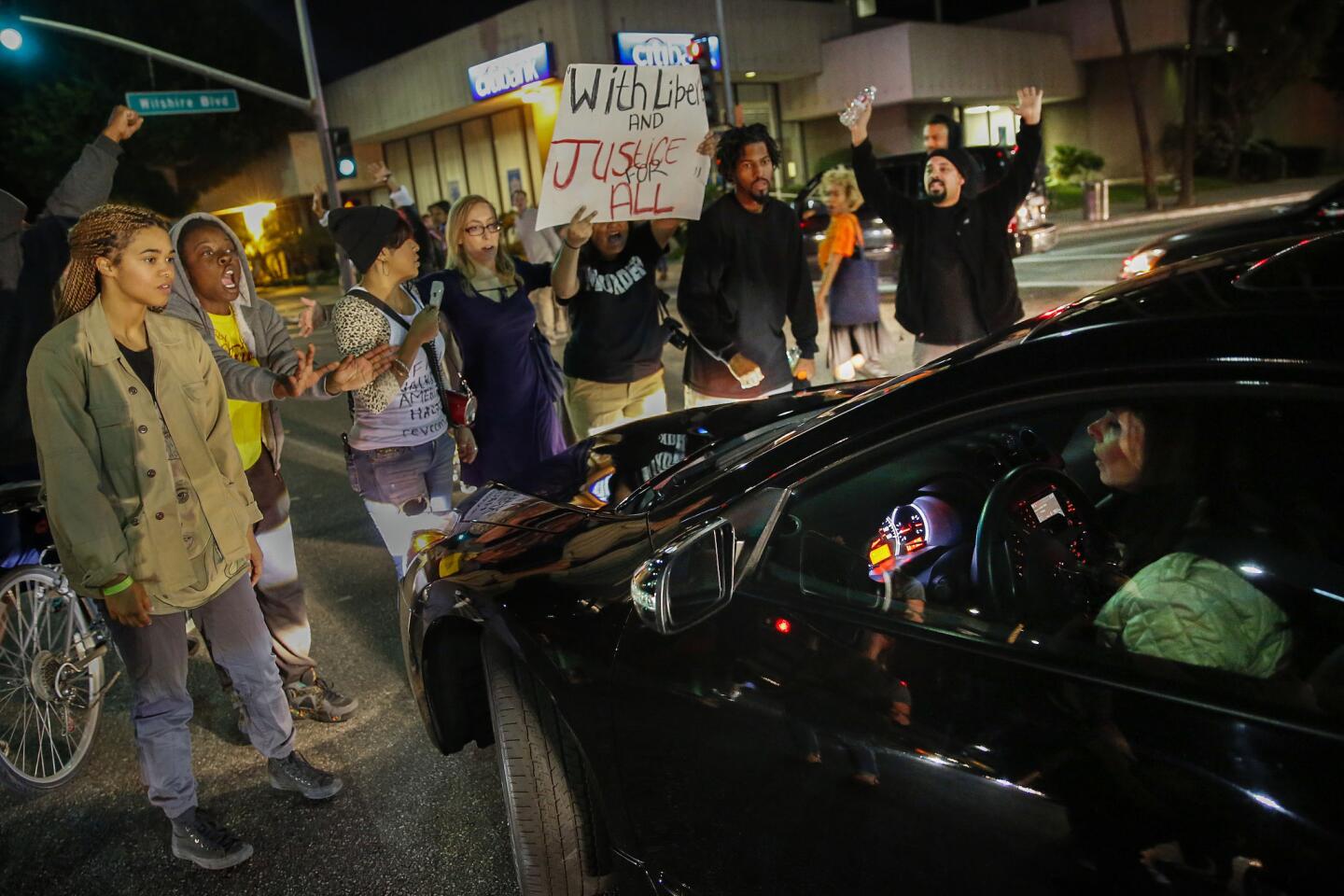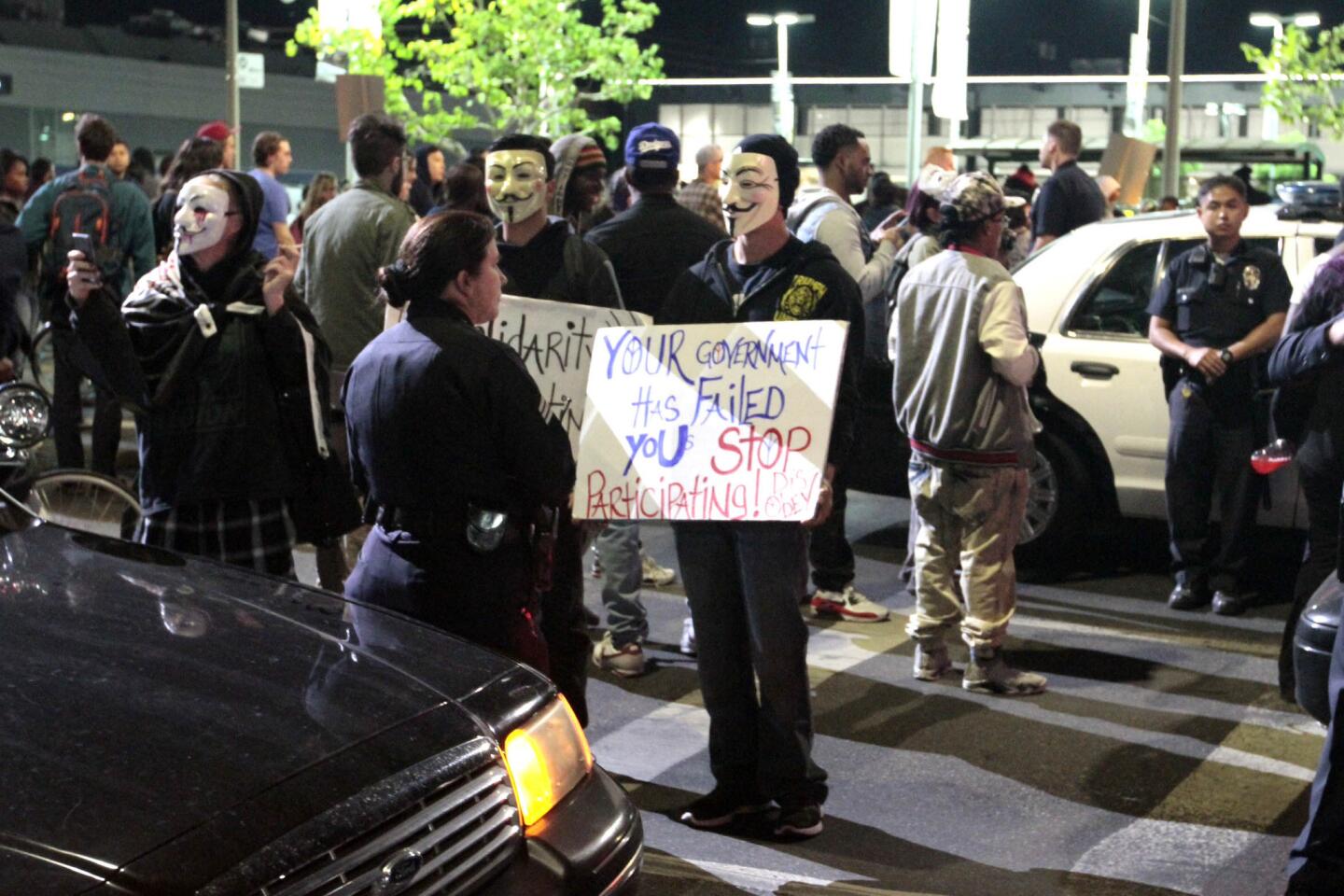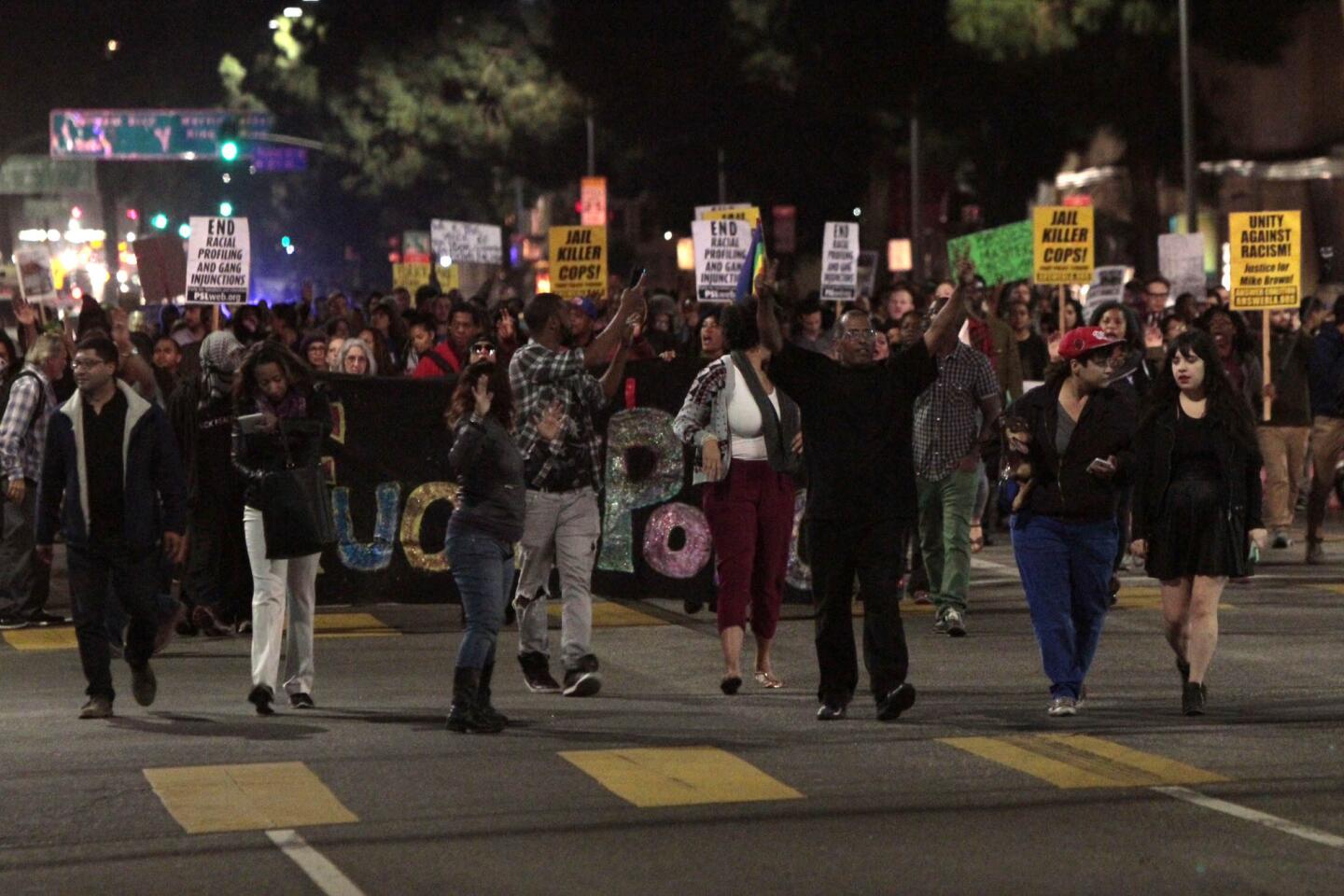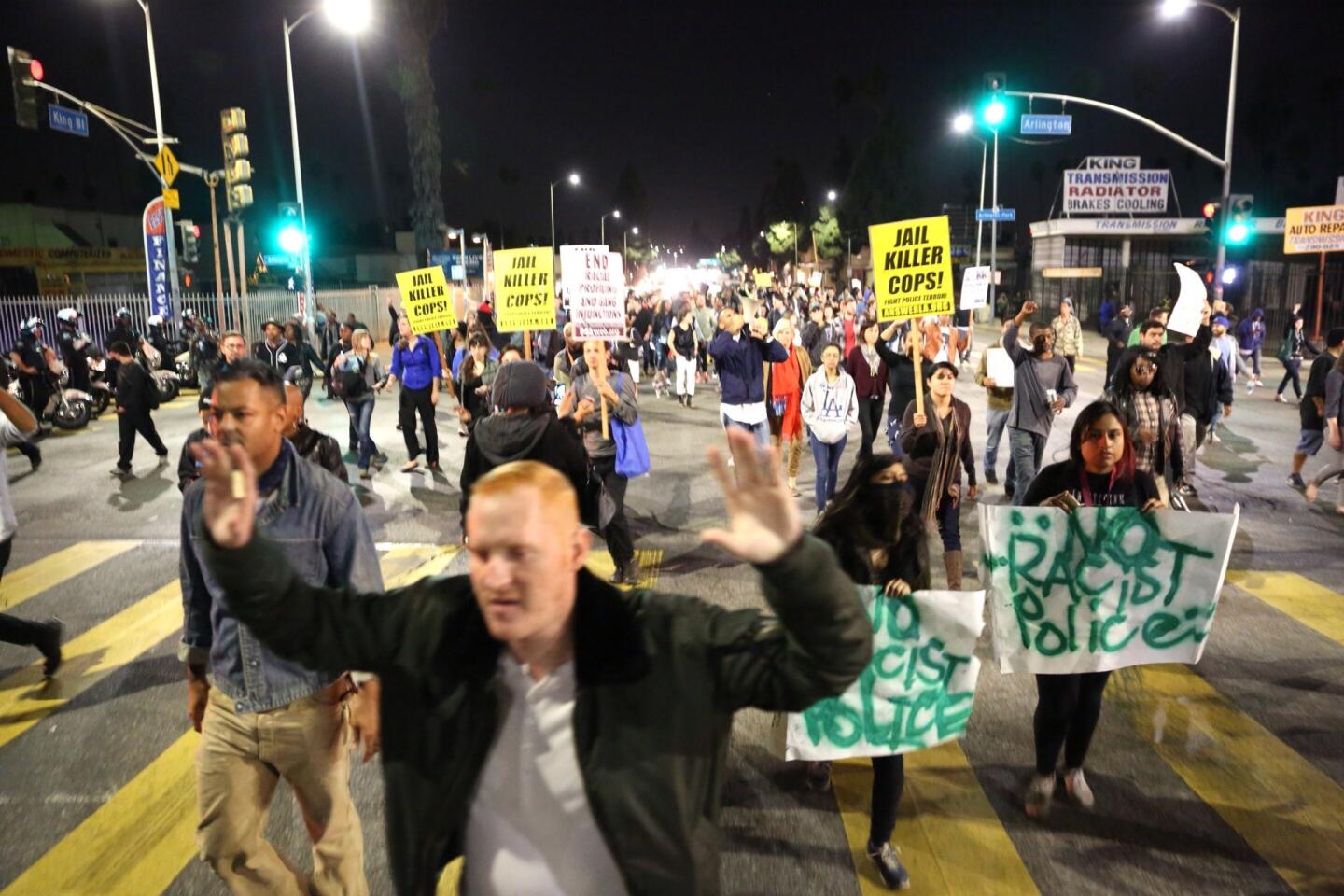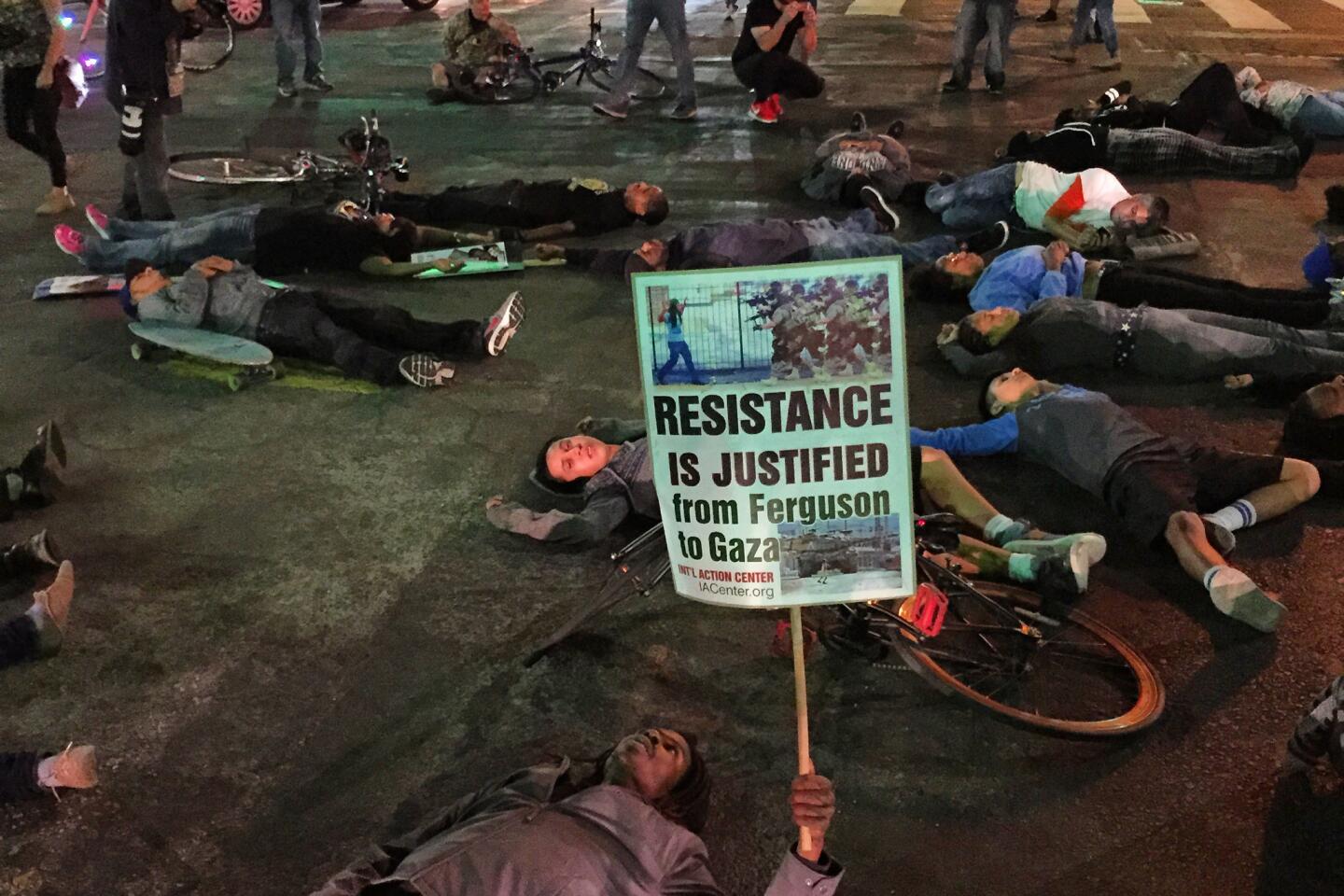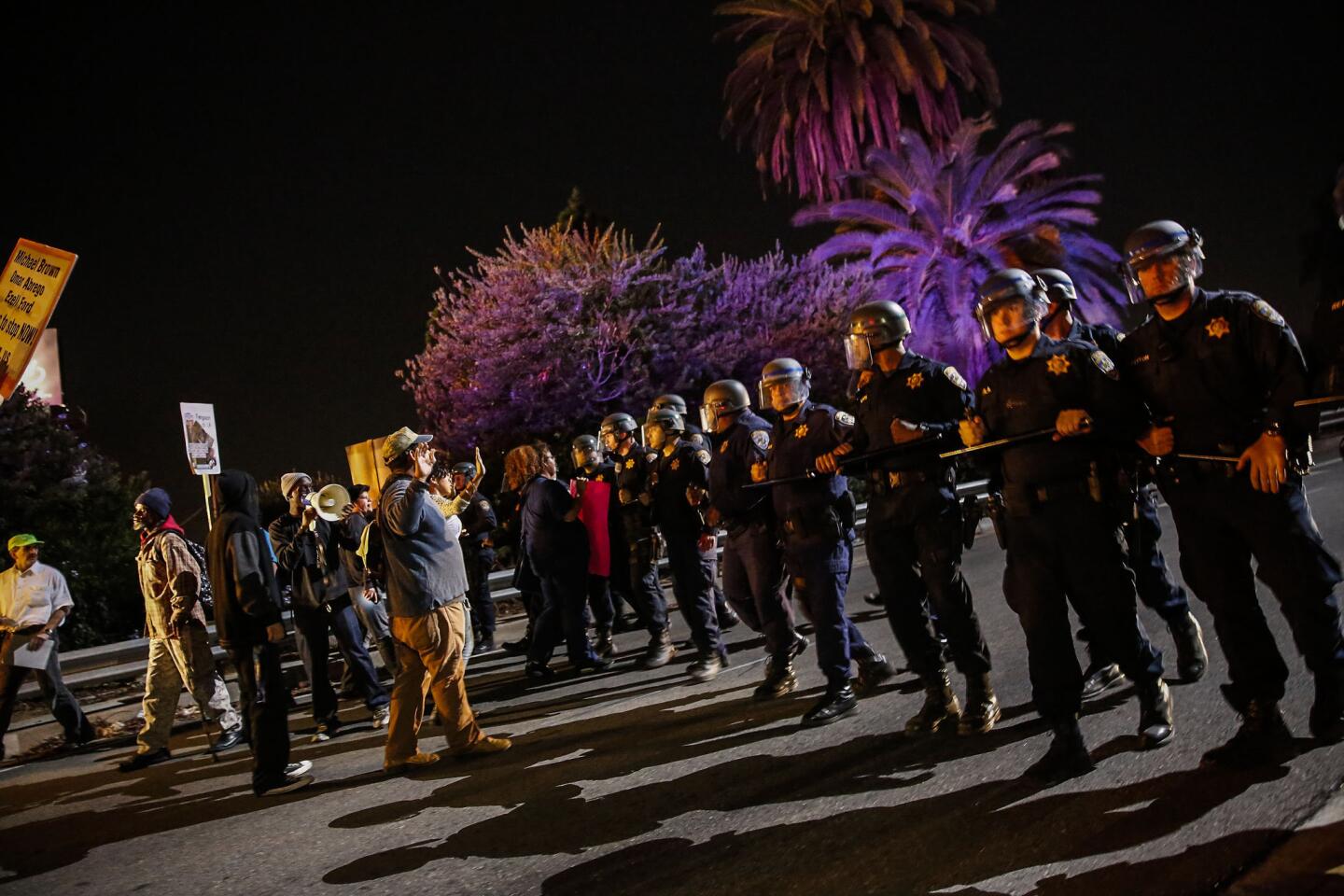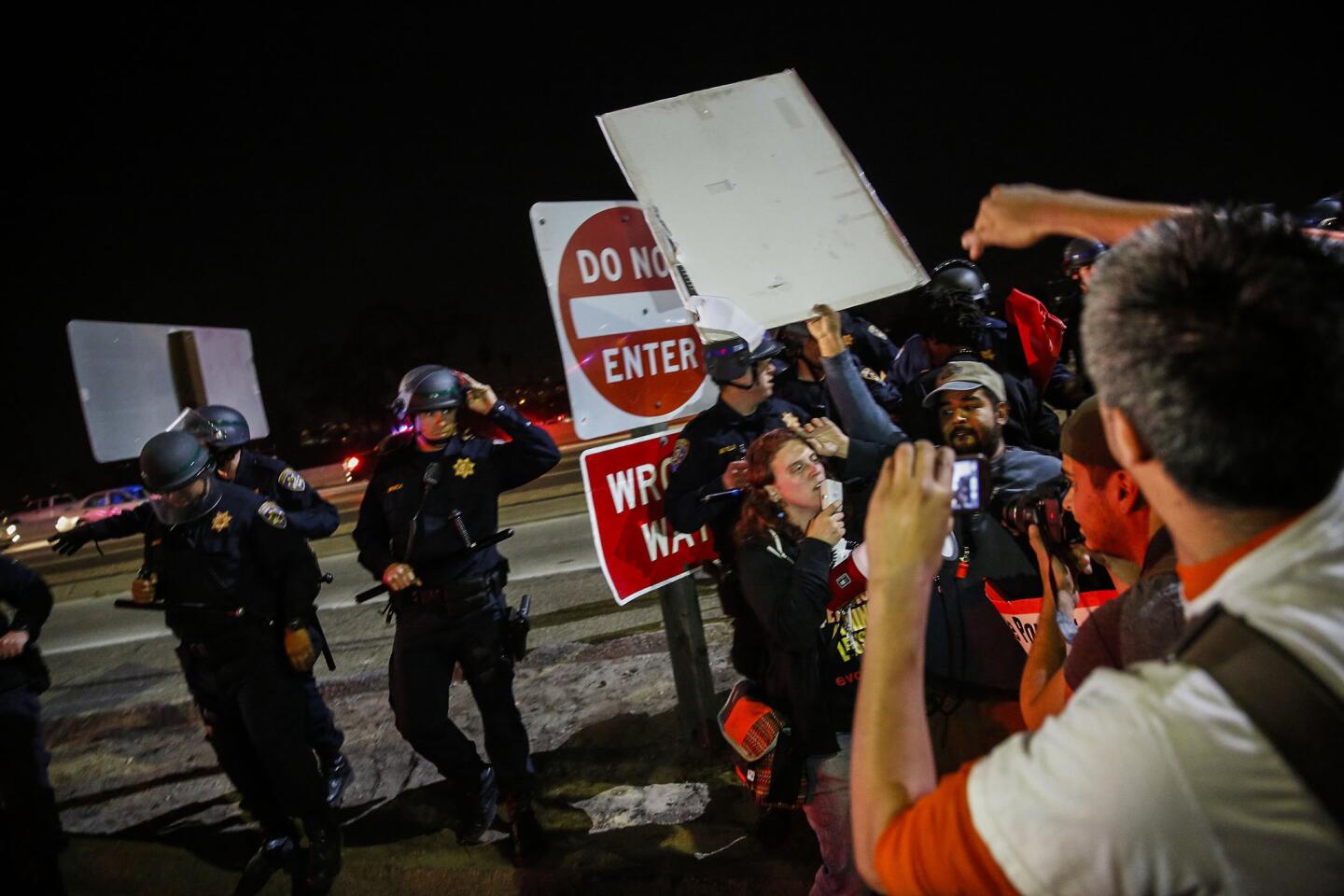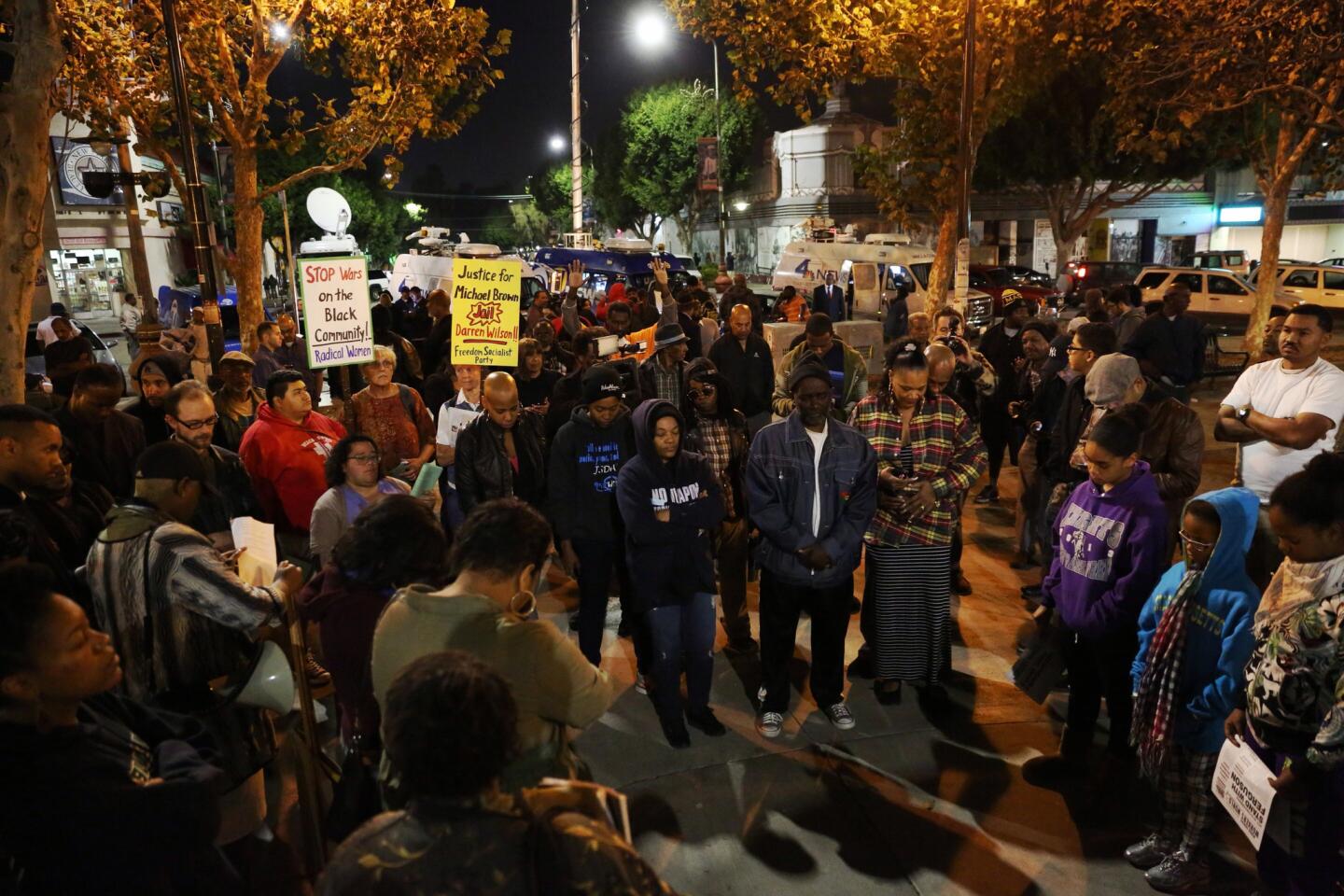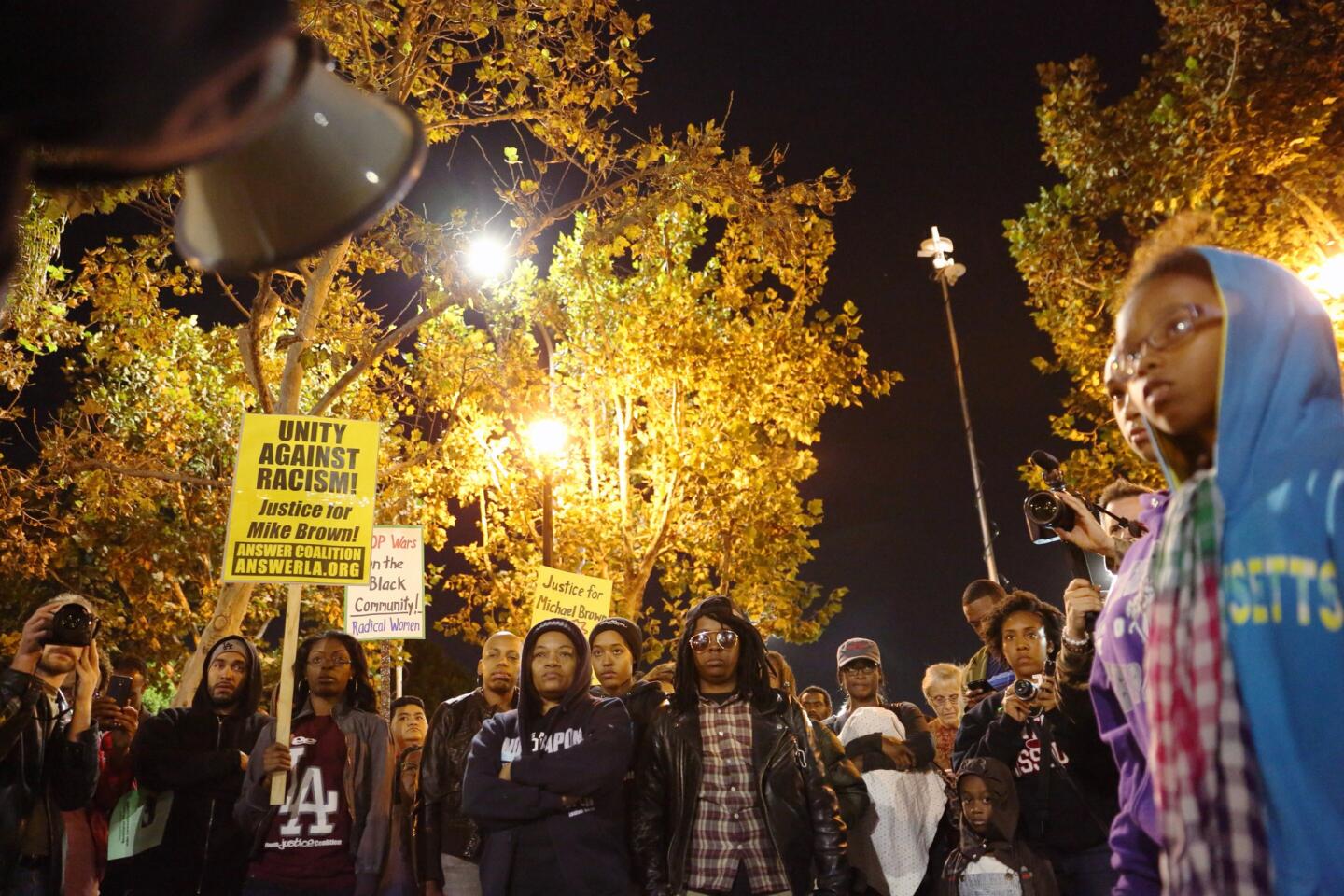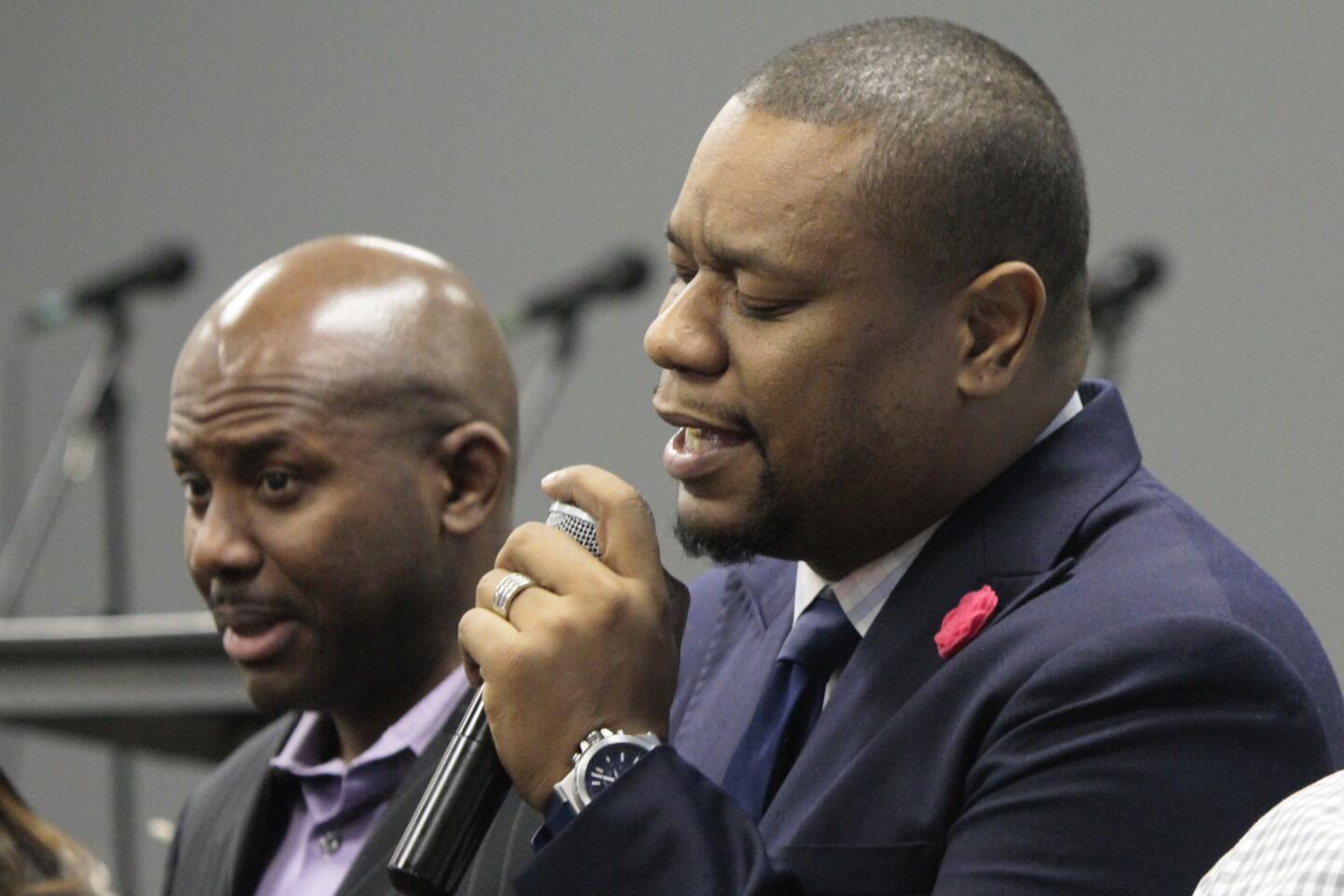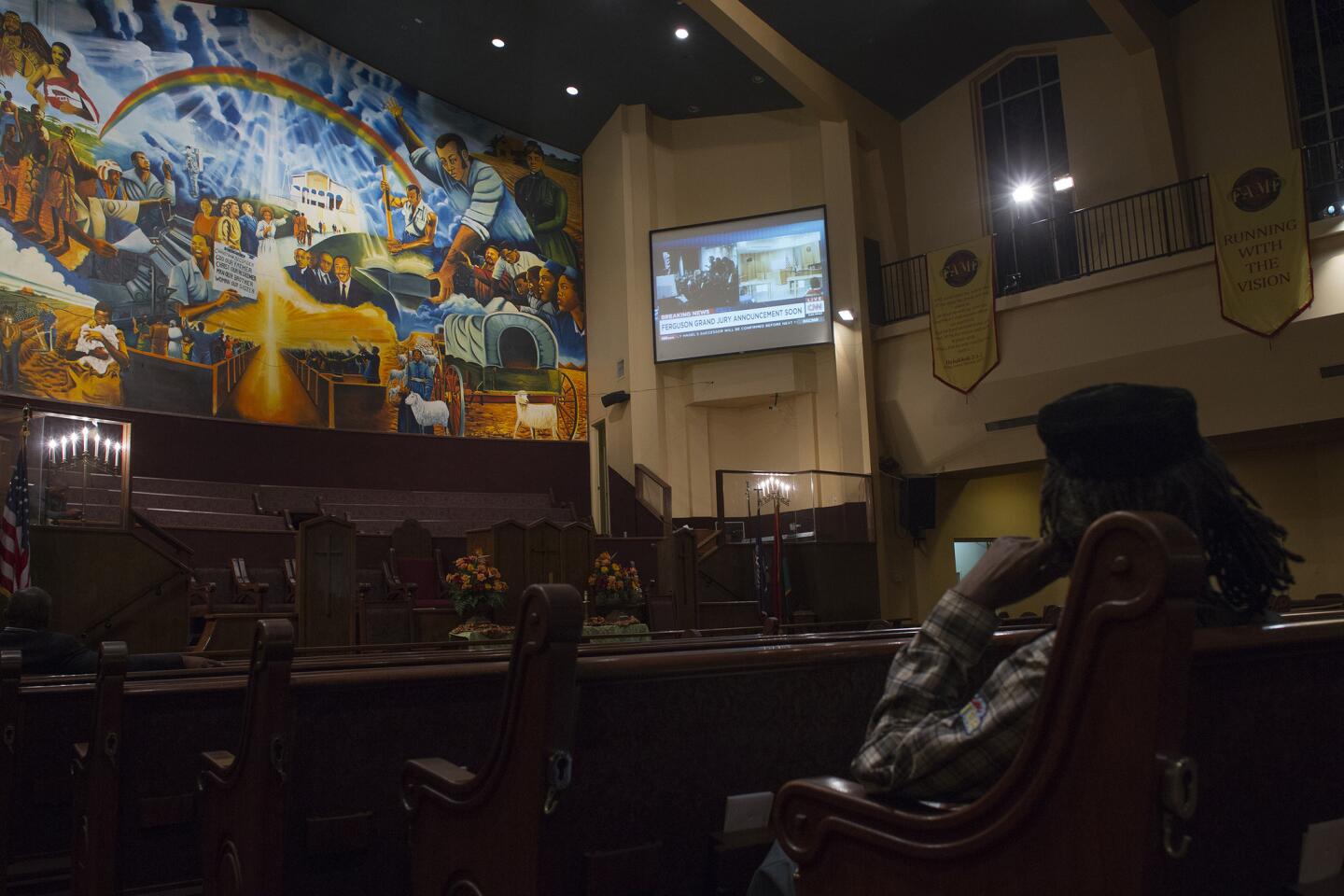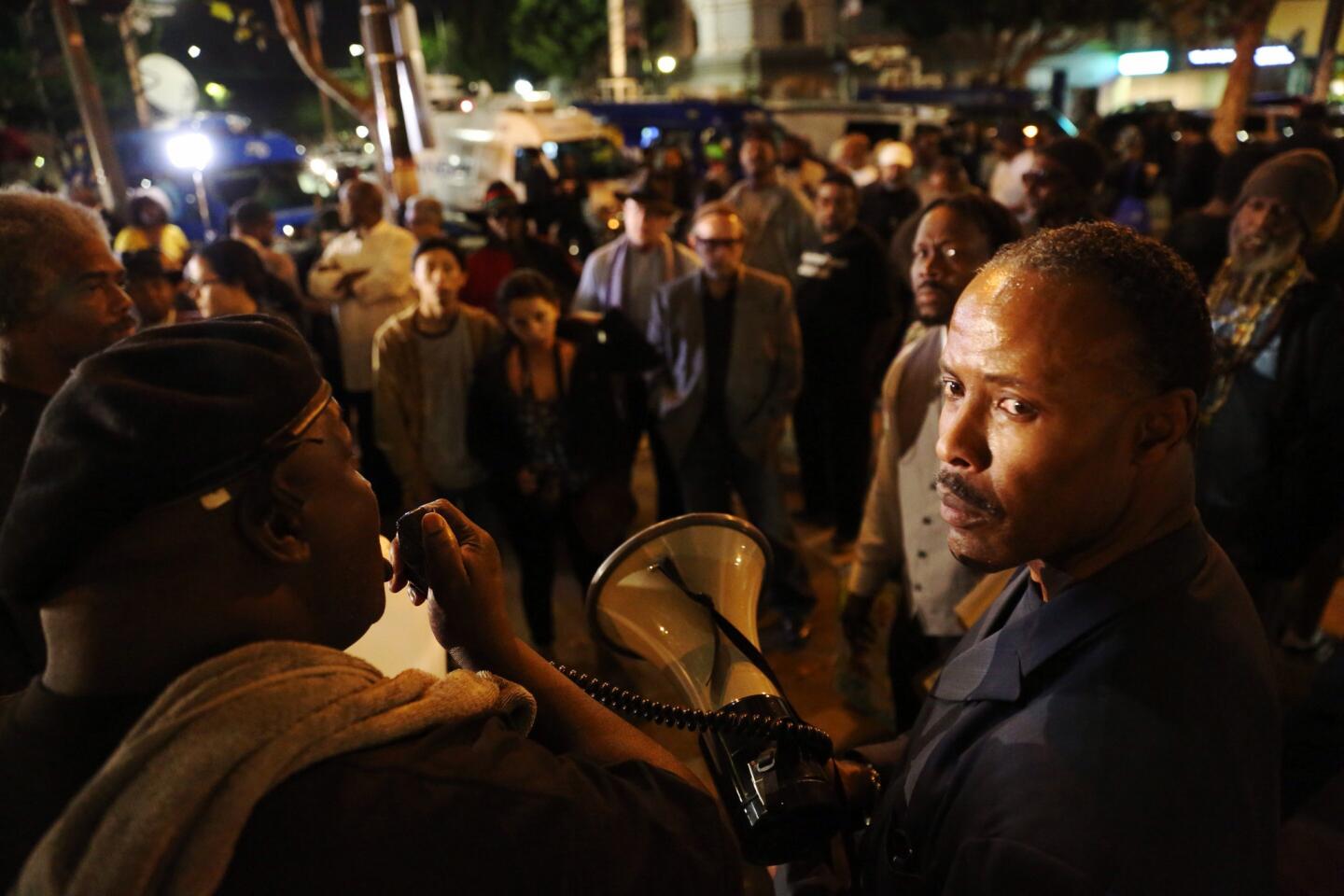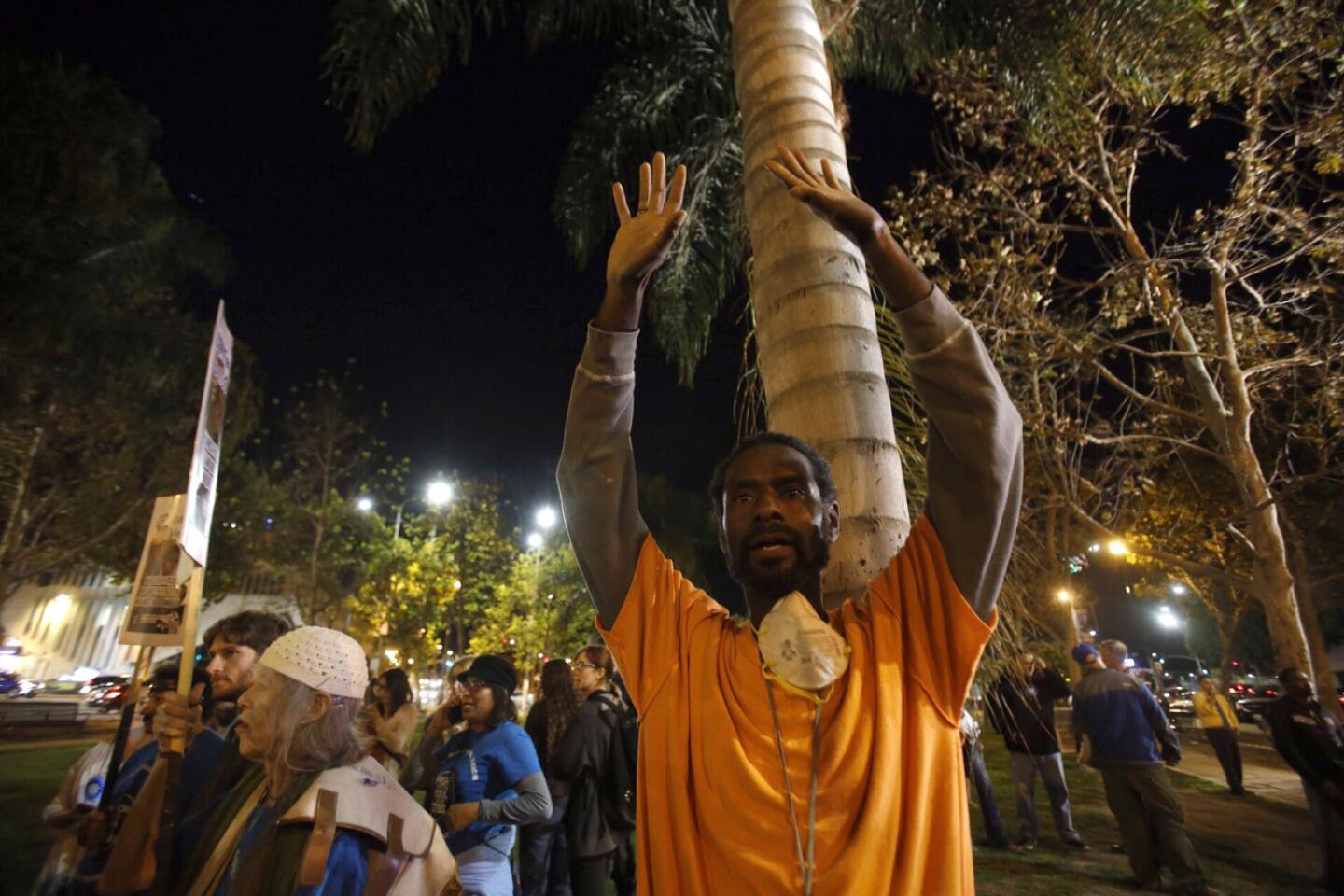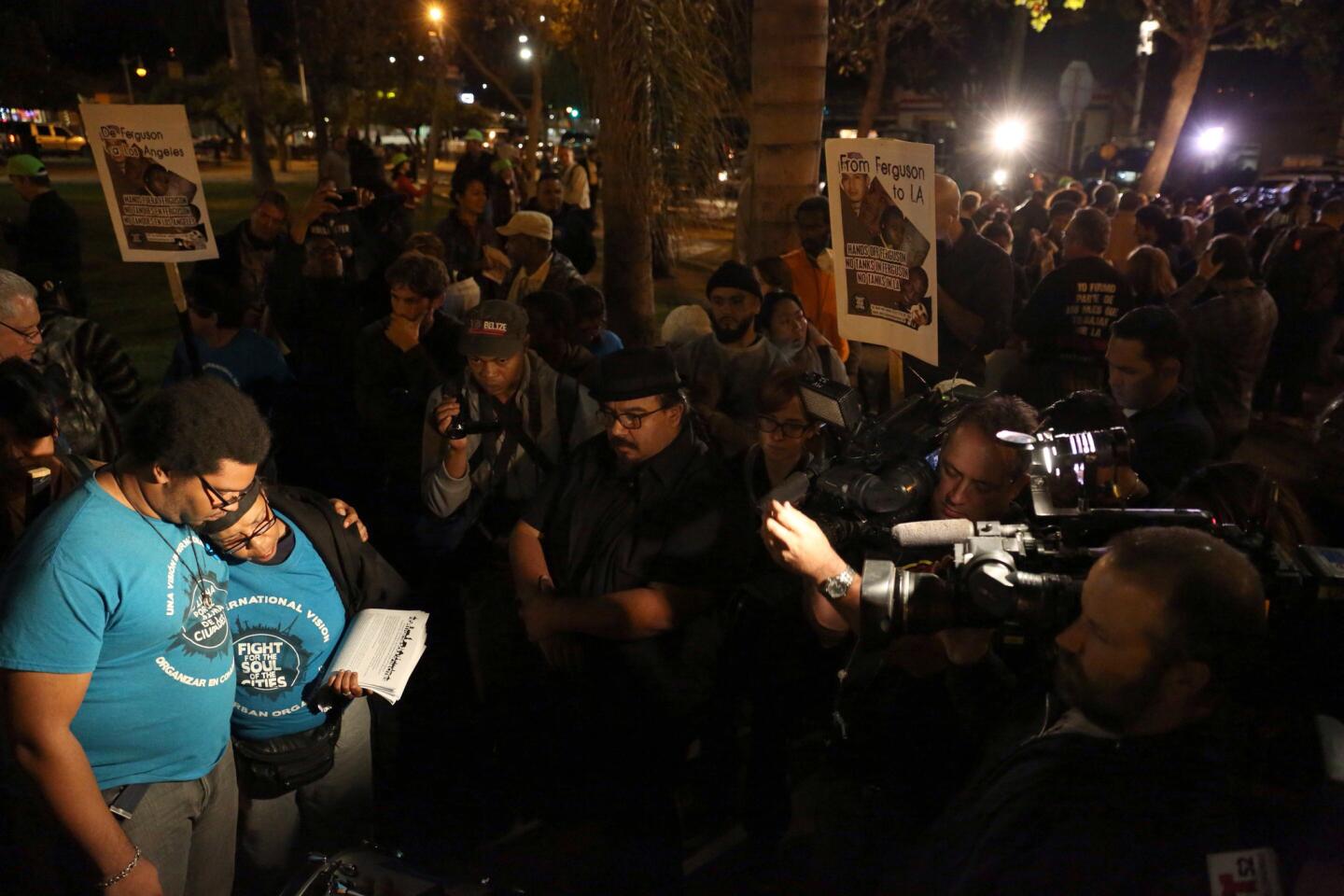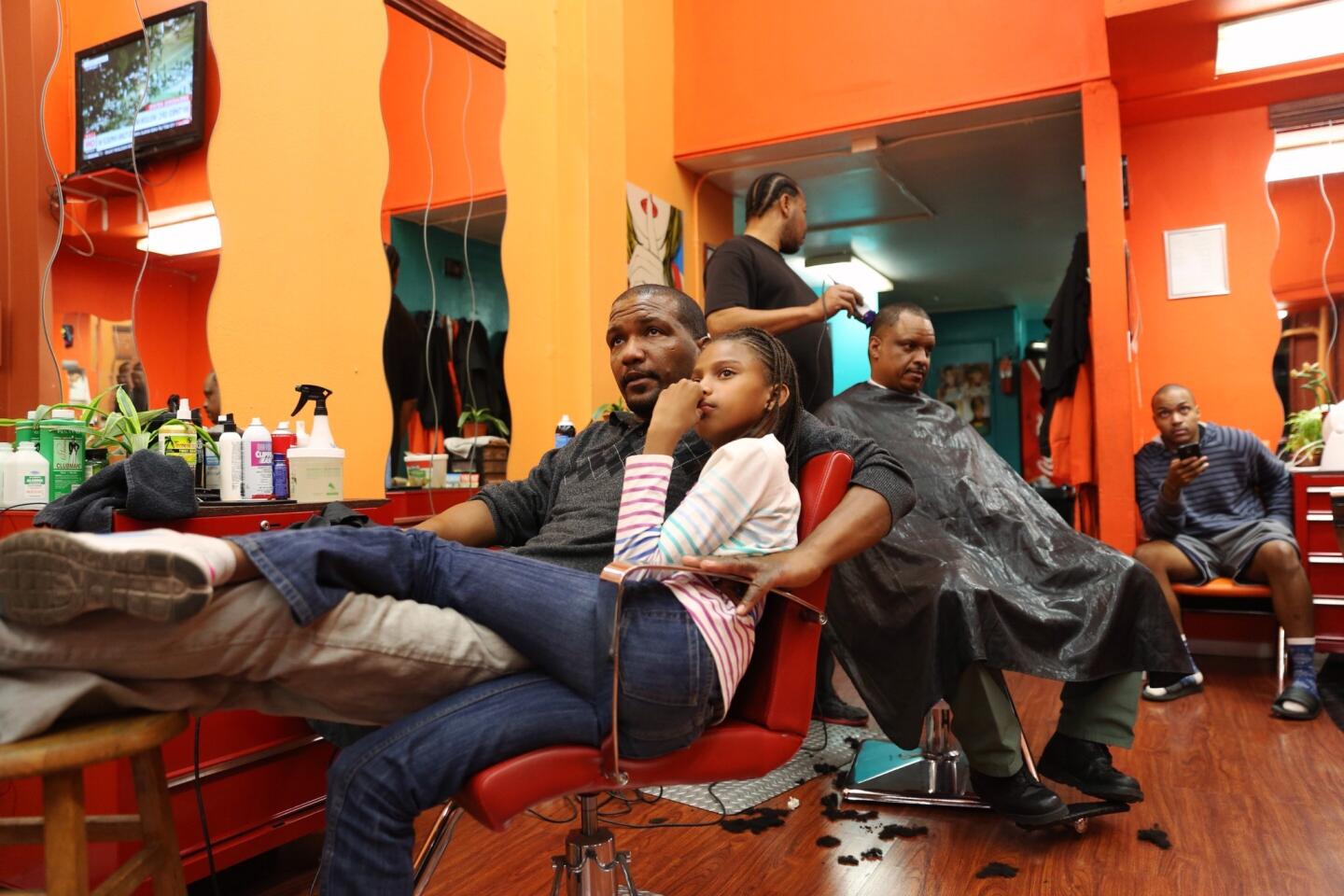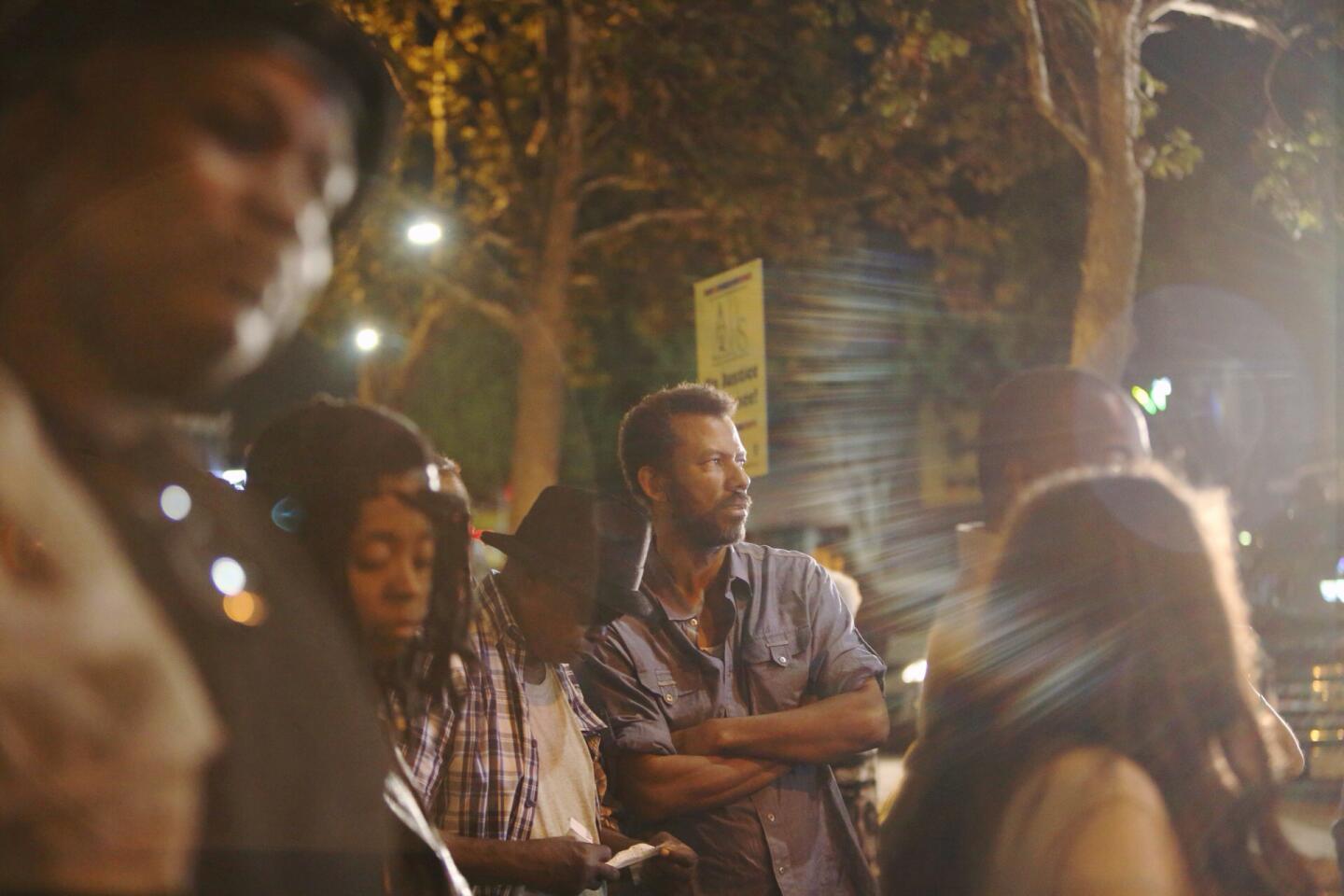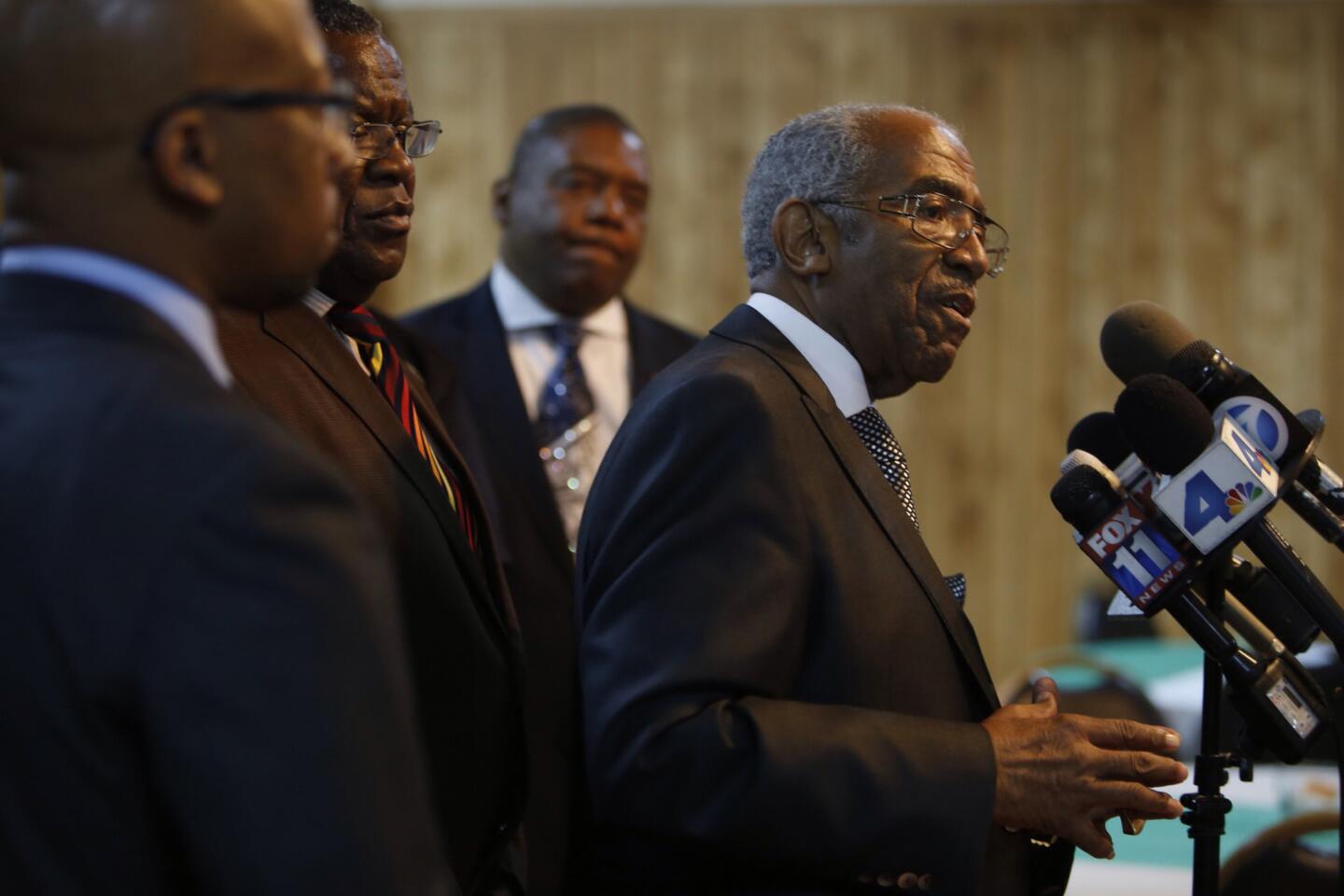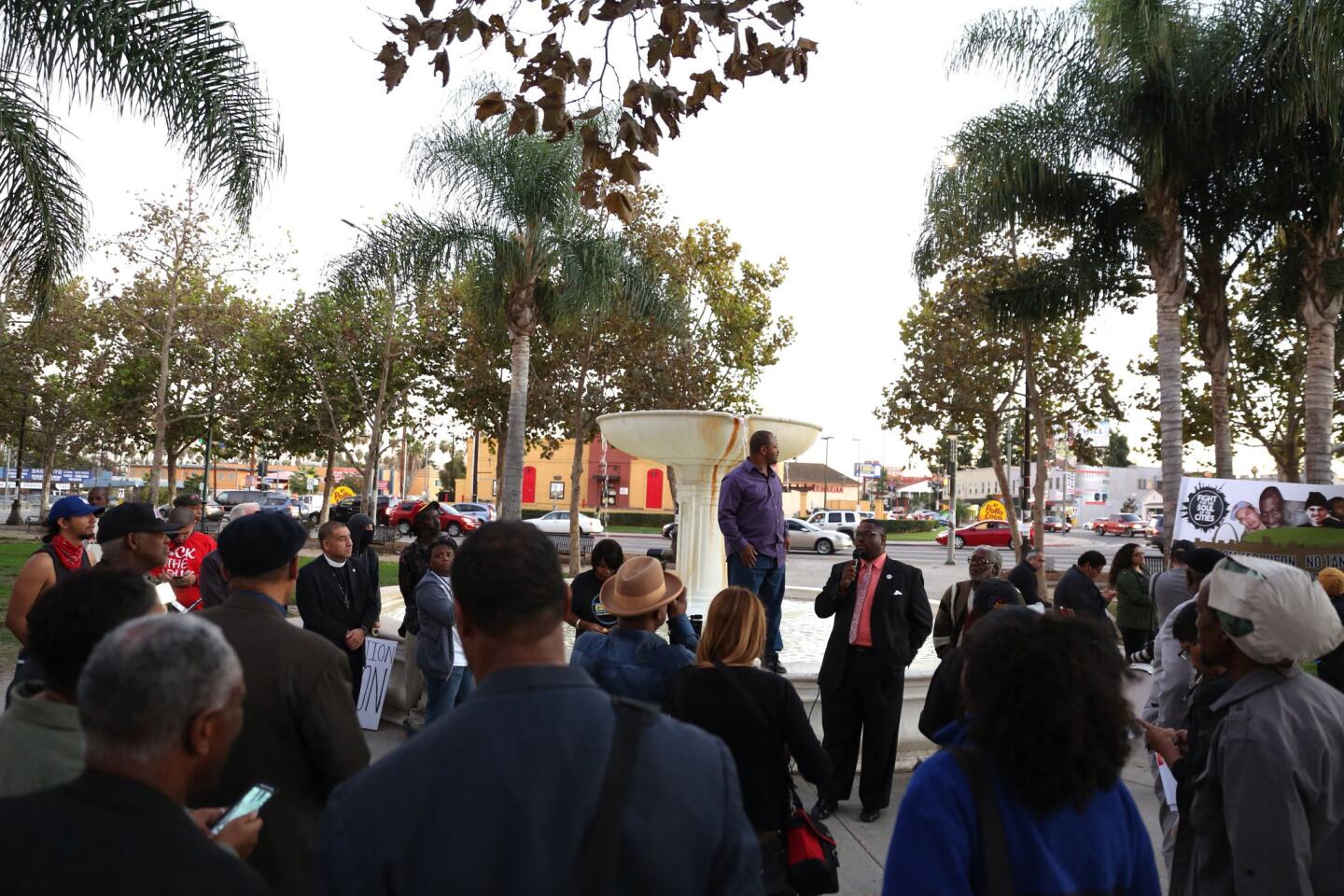Ferguson decision: Sadness and anger in L.A.
As details of the grand jury decision in Ferguson, Mo., trickled out Monday night, many in Los Angeles braced for a painfully familiar outcome.
At the New Millennium Sports barbershop in South Los Angeles, barber Ted Baxter turned the volume up as a television delivered the announcement from thousands of miles away that a white police officer would face no charges in the shooting of a black teenager.
The 53-year-old looked away and shook his head, disgusted. Ferguson Police Officer Darren Wilson would not be indicted for the killing of Michael Brown. It was like Rodney G. King again — and Trayvon Martin and Ezell Ford, he said.
“What an injustice,” Baxter said. “Nothing’s getting done.”
Ferguson’s story is a familiar one to Los Angeles. Since the Watts riots left 34 dead in 1965 and the acquittal of four police officers in Rodney G. King’s beating sparked the L.A. riots in 1992, stories of violence against young black men nationwide have reverberated in Los Angeles. Most recently, tensions flared over the fatal LAPD shooting of Ezell Ford, a 25-year-old mentally ill man who was killed two days after Brown was shot.
The city has a wrenching history when it comes to police action and the African American community, one forged by two deadly riots and decades of distrust.
In recent years, there have been clear signs that the relationship has improved. But many in Los Angeles saw Monday night’s decision through the prism of the past.
After activist Najee Ali delivered the news at a microphone in Leimert Park, chants of “no justice, no peace” fell silent. Many whipped out their phones to verify the news and others shook their heads and walked away, overcome with disbelief. Tears welled as the news sank in.
One woman called her mother immediately after hearing the announcement, crying as she spoke. Leisette Rodriguez, a Long Beach resident, later said her first thoughts were of Brown’s family: “My heart is hurting so much for them.... It seems like it is never going to come around where communities of color even matter.”
Unlike scenes in Missouri on Monday night, protests in Los Angeles remained largely peaceful. More than 200 people gathered in Leimert Park. Tiara Marshall, 24, a USC grad student, carried a hand-painted sign that said “LA supports Ferguson.” She said the lack of an indictment sends a message that police can kill with impunity.
“This is ridiculous,” she said. “This gives police officers the permission to kill young black and brown boys without consequence. They are going to keep doing it.”
A small group of protesters tried to get on the 10 Freeway at the La Brea Avenue exit, but police kept them back. In Oakland, marchers managed to close the 580 Freeway for a time.
In South Los Angeles, groups of protesters marched down Crenshaw and Martin Luther King Jr. boulevards, slowing traffic and shouting for people to get out of their cars.
“Hands up, don’t shoot!” they chanted. “Whose streets? Our streets.”
As LAPD motorcycle officers watched, protesters yelled, “You’re all Darren Wilsons!”
While those who took the streets expressed outrage, others expressed more moderated views.
At a Highland Park bar, Brian Macias, who is African American, said people of color need to “swallow all pride” and listen to orders when dealing with police, or the situation could become dangerous. He said he was beaten by officers during a 1999 protest against police brutality in downtown Los Angeles.
But the 44-year-old head hunter for an entertainment company said it was impossible to know what really happened in Ferguson.
Local civil rights leaders expressed disappointment, but not surprise.
John Mack, who once headed the Los Angeles Urban League and was president of the city’s Police Commission, said the decision came as no surprise.
“It is unfortunate that the grand jury did not deliver justice here. But grand juries and juries tend to give police officers the benefit of the doubt,” he said.
Even before Monday evening’s announcement, Brown’s death reverberated far beyond the Missouri town. His name became a rallying cry for police reform, sparking nationwide conversations about officers’ tactics and relationships with their communities.
Community leaders and LAPD officials spent days preparing for the potential reactions to the grand jury’s decision. Los Angeles police declared a citywide tactical alert Monday afternoon, freeing up more officers and resources in anticipation of demonstrations.
Mayor Eric Garcetti also called for calm.
“Tonight’s decision is one that will be heatedly debated — but we should do so through dialogue and peaceful action,” he said in a statement.
One shop owner in South L.A. took extra precautions, recalling the violence that followed the King acquittal. Standing in his beauty salon near 83rd Street and Normandie Avenue, Reynaldo Castillo watched the television anxiously.
“We remember what happened in 1992,” he said in Spanish.
Times staff writers Tre’vell Anderson, Soumya Karlamangla , Victoria Kim, Samantha Masunaga, Kate Mather, Brittny Mejia, Frank Shyong and Richard Winton contributed to this report.
More to Read
Sign up for Essential California
The most important California stories and recommendations in your inbox every morning.
You may occasionally receive promotional content from the Los Angeles Times.
